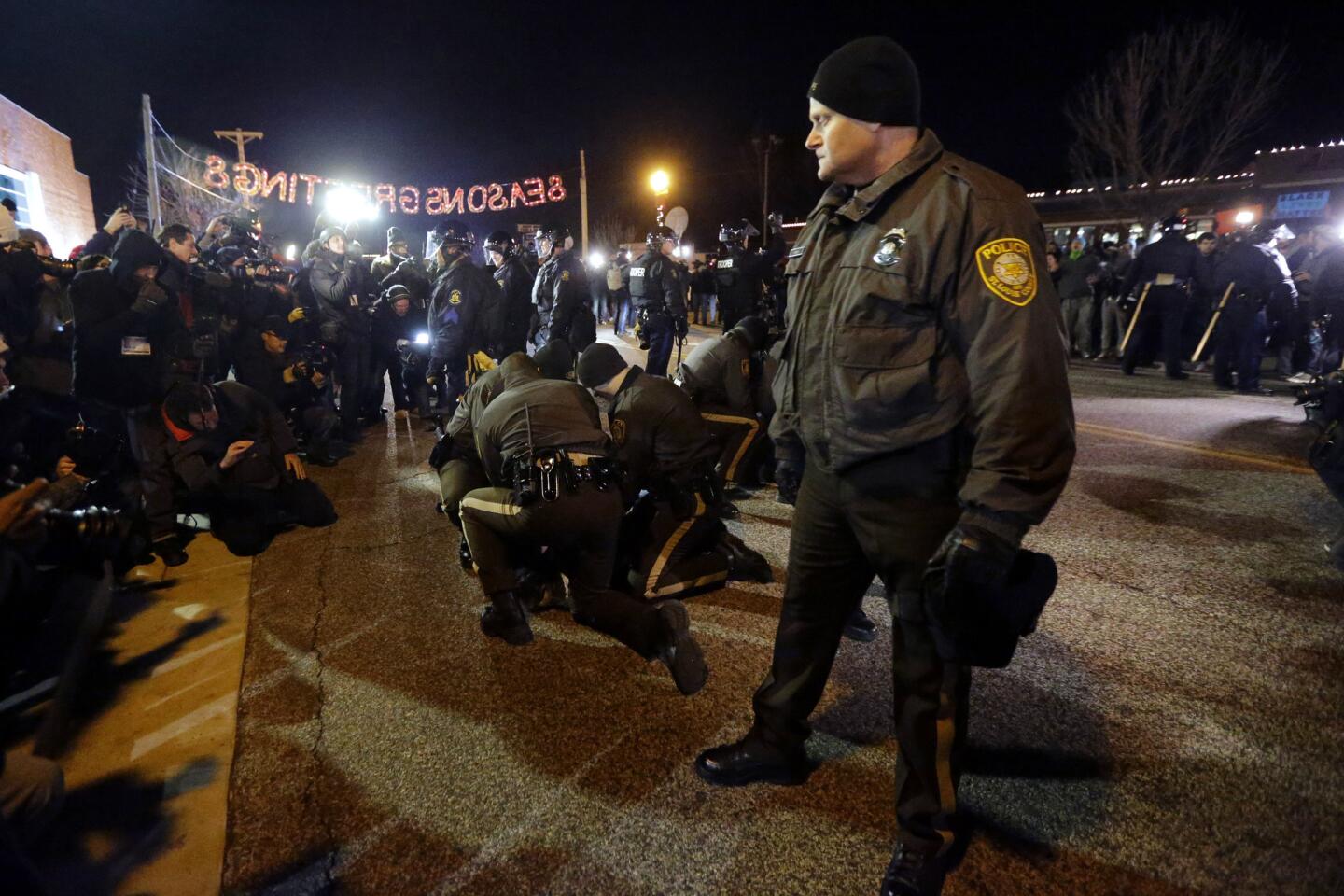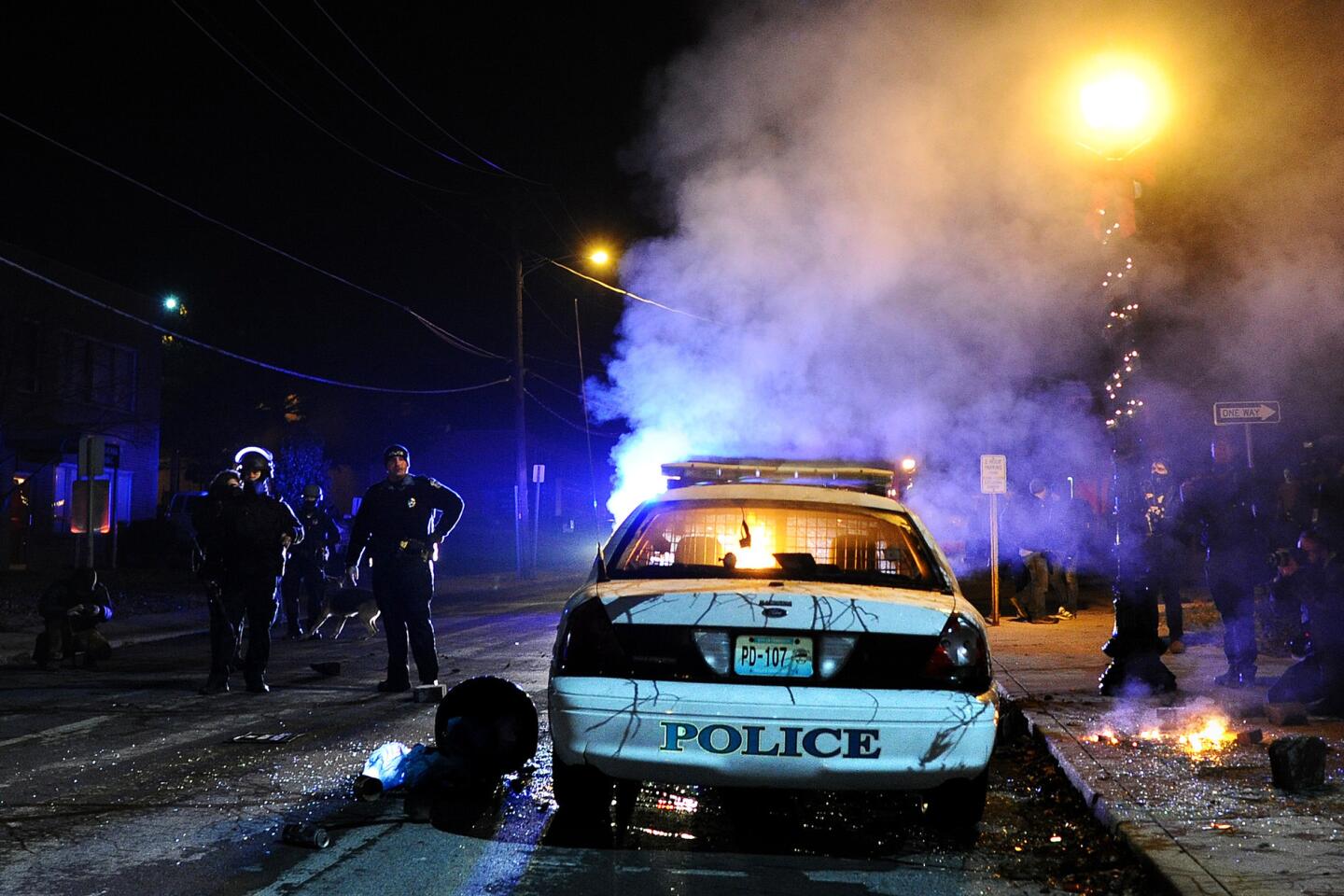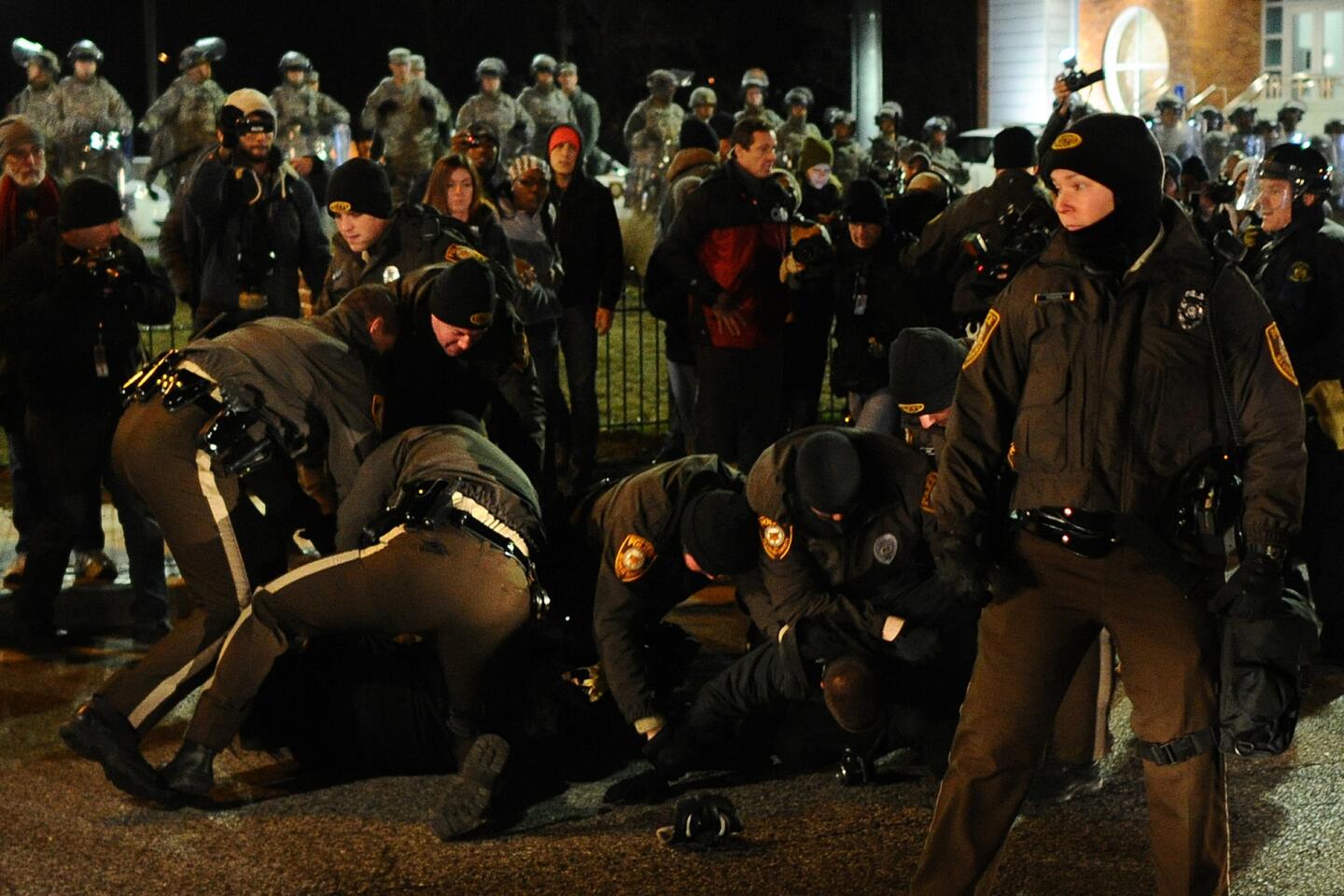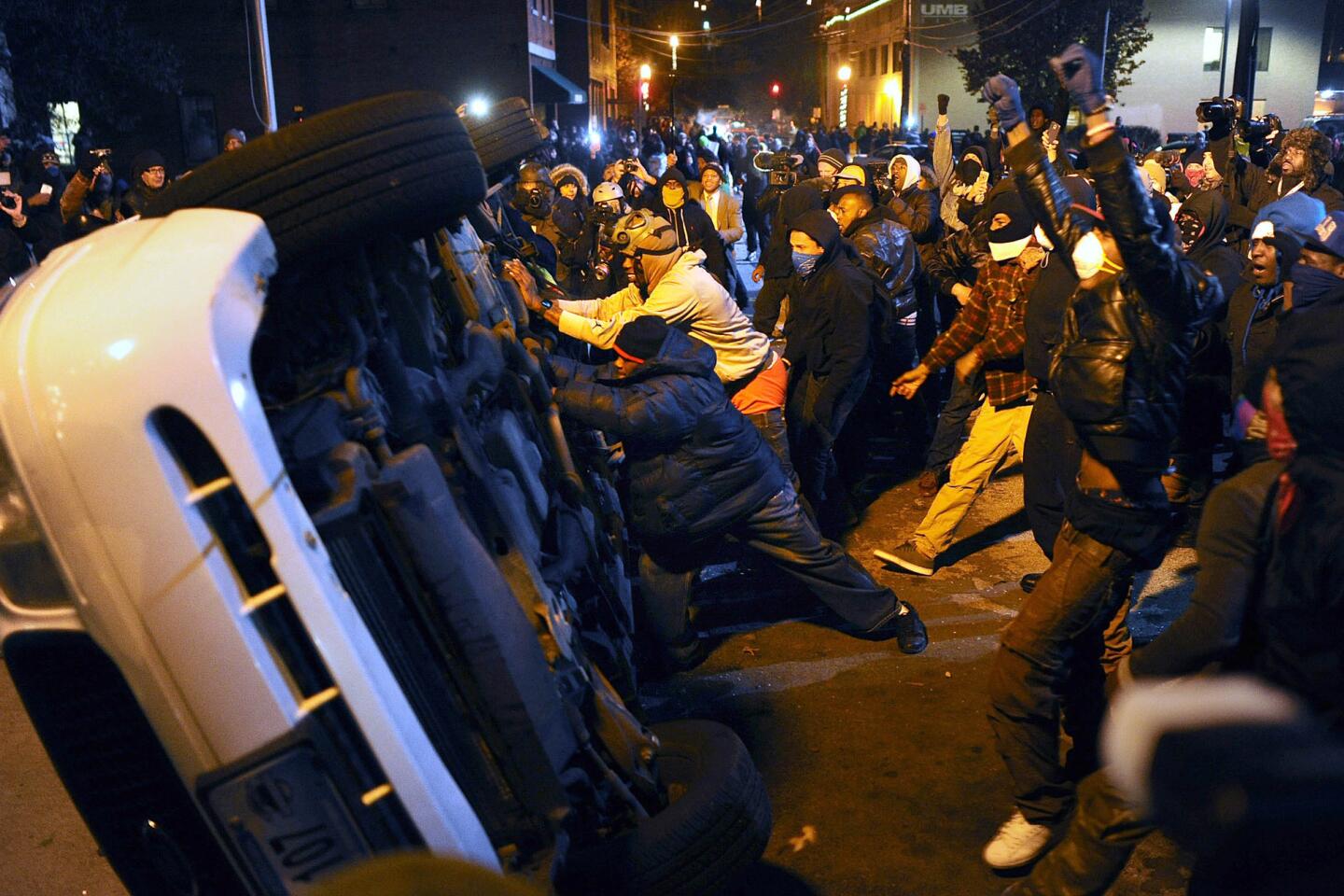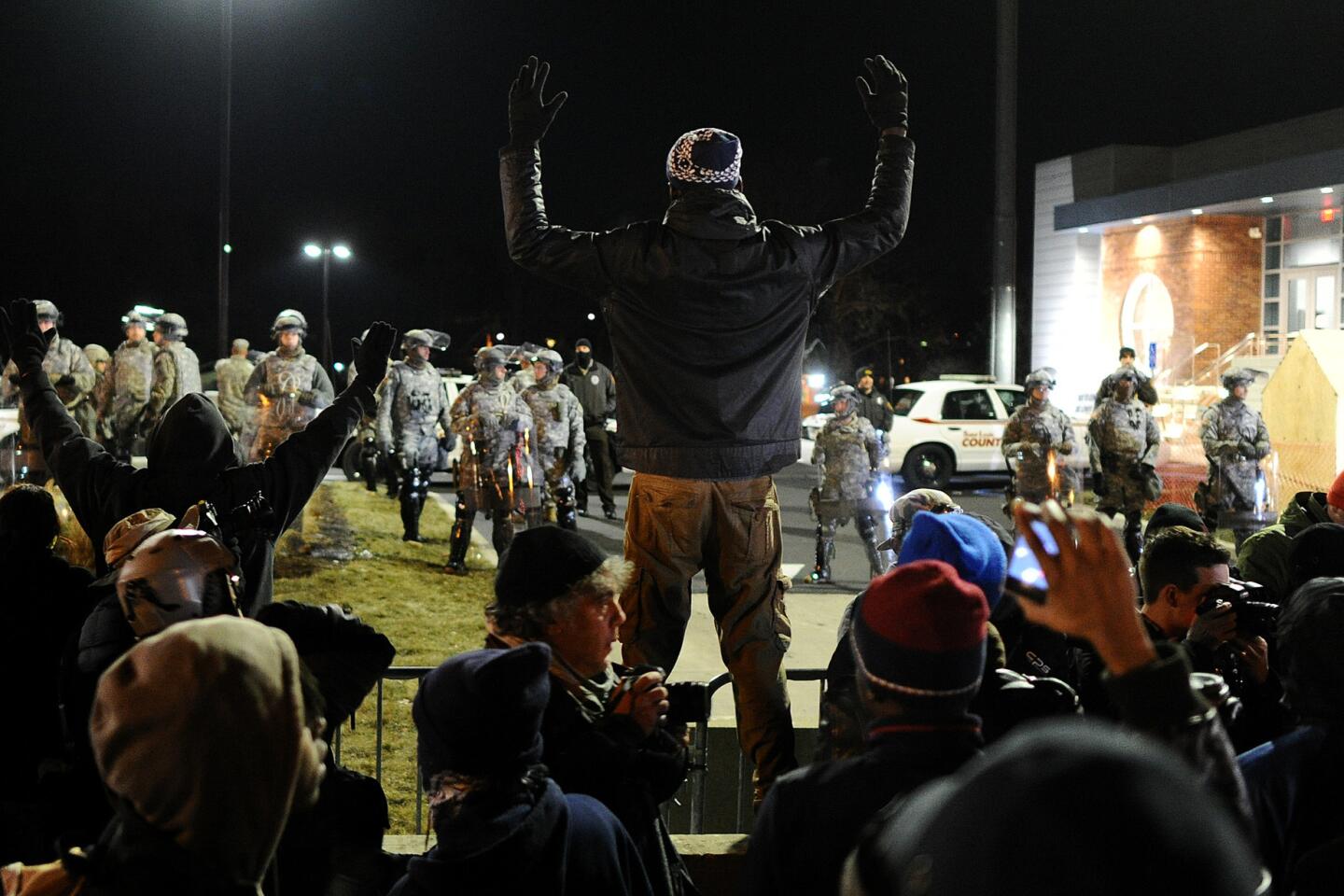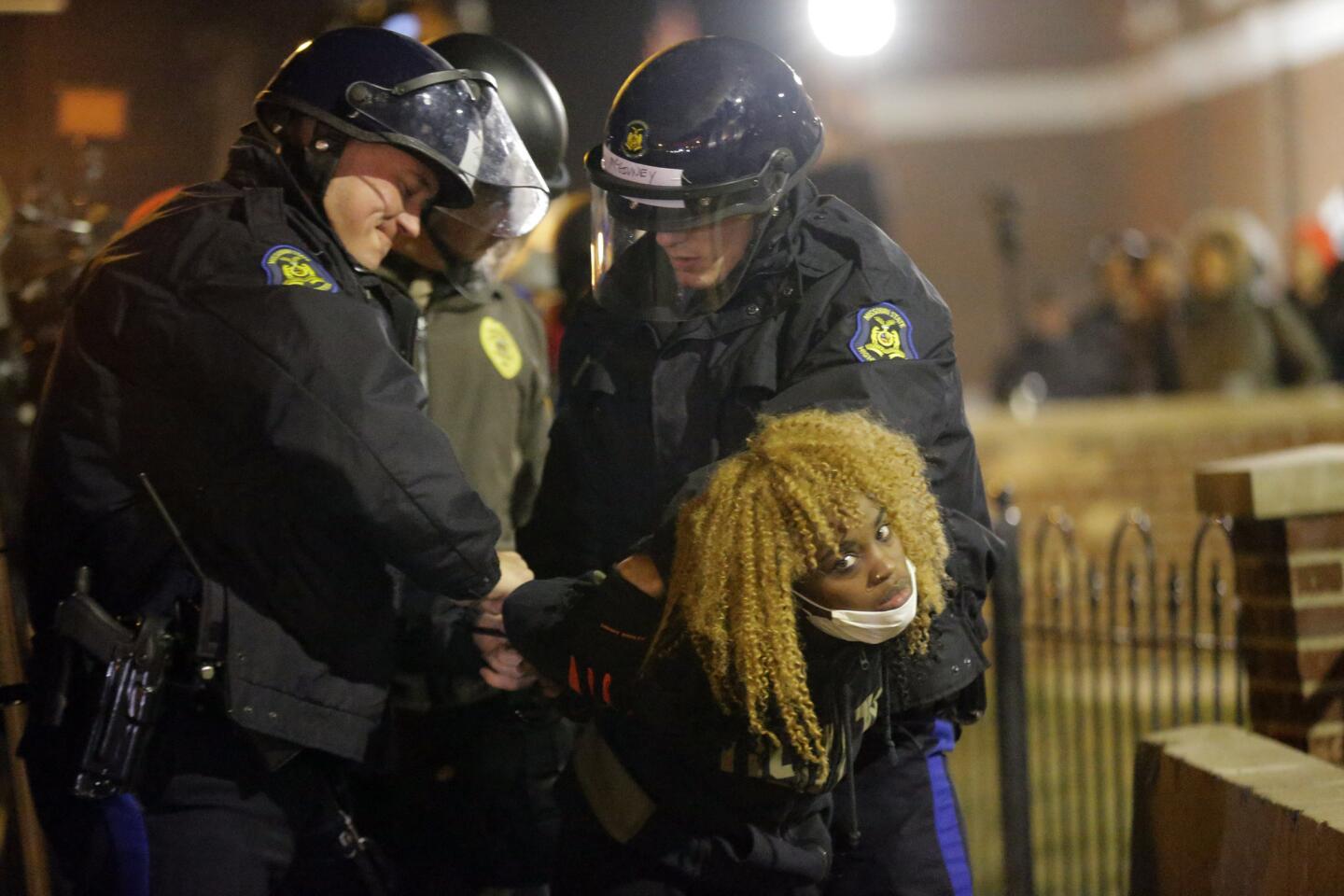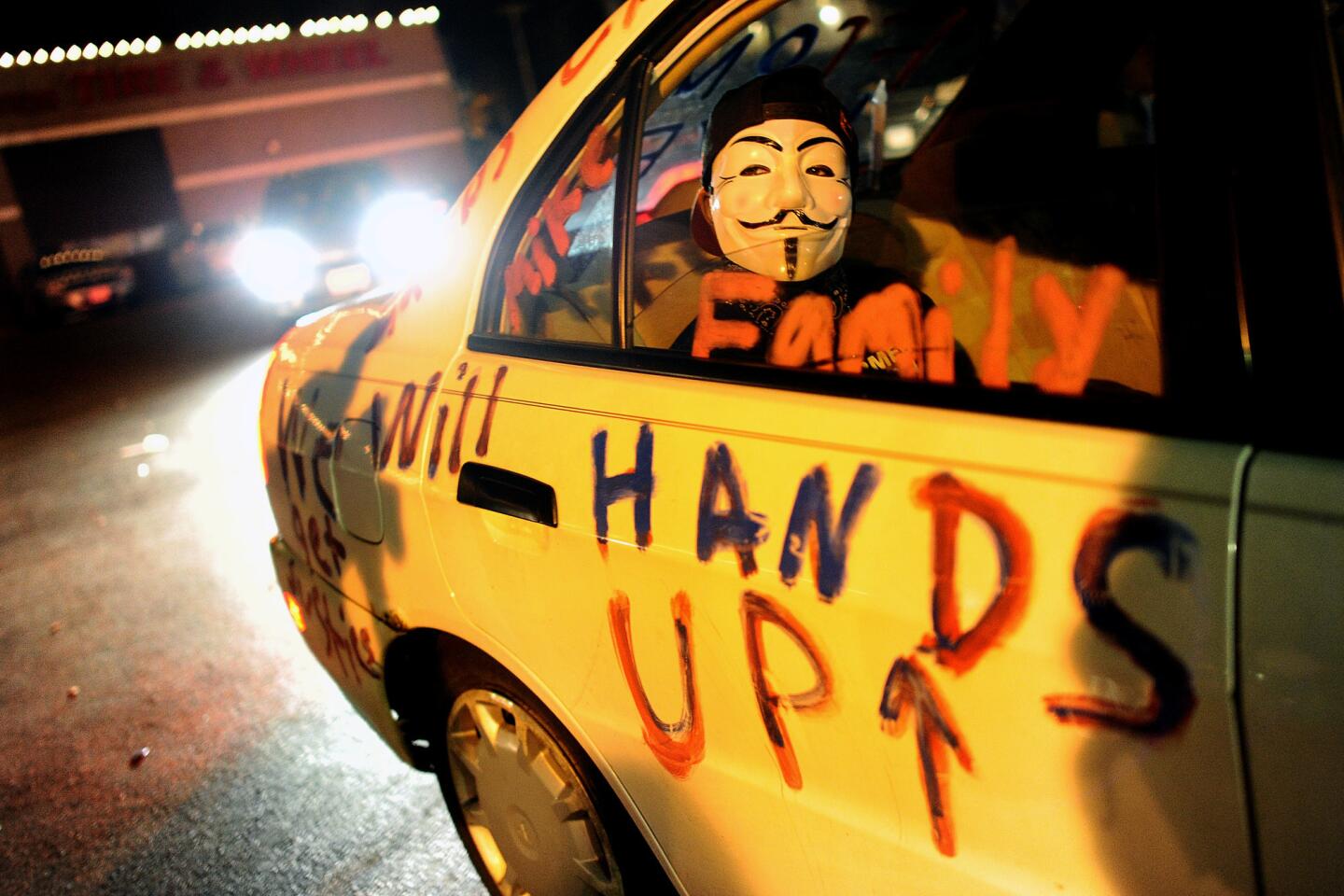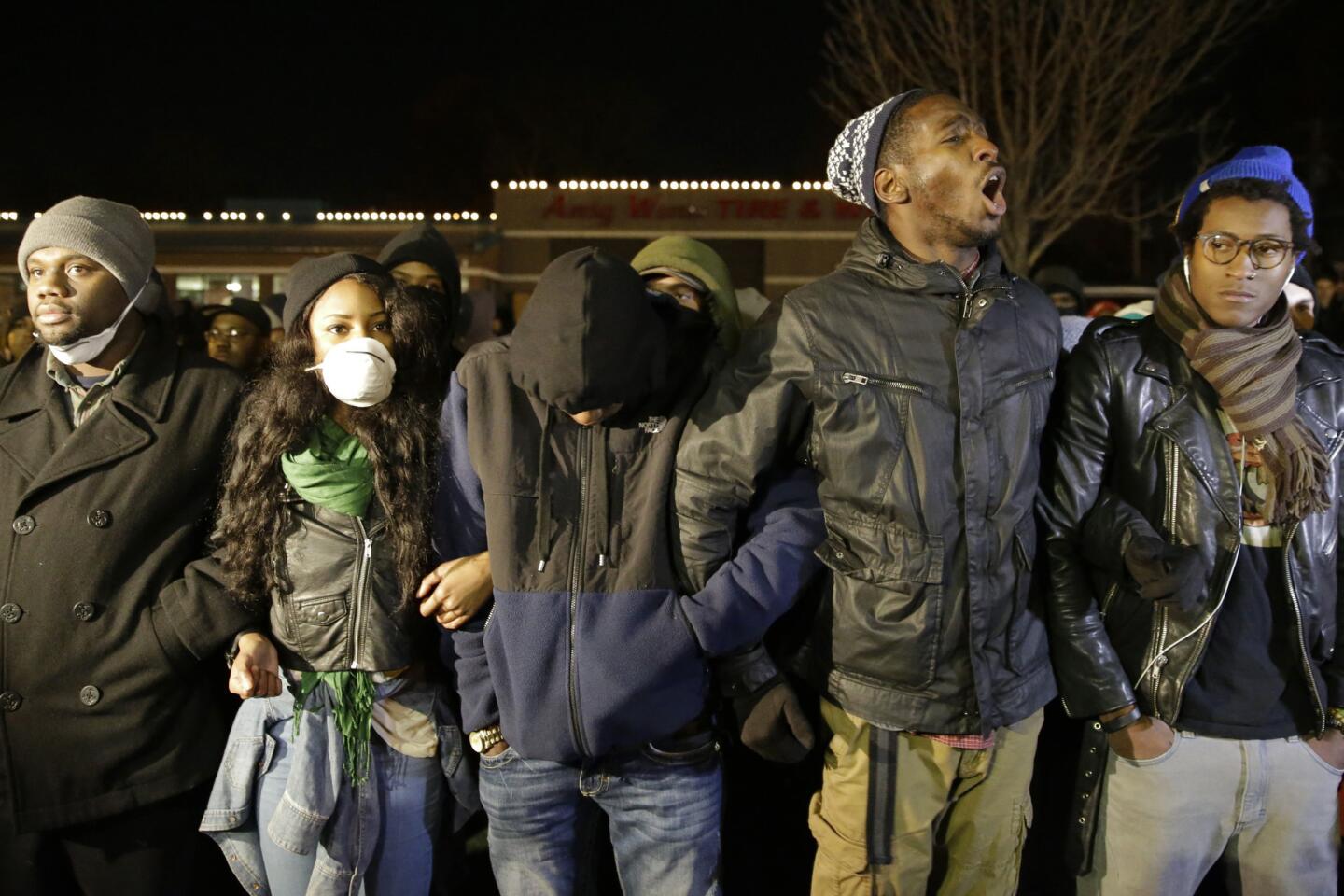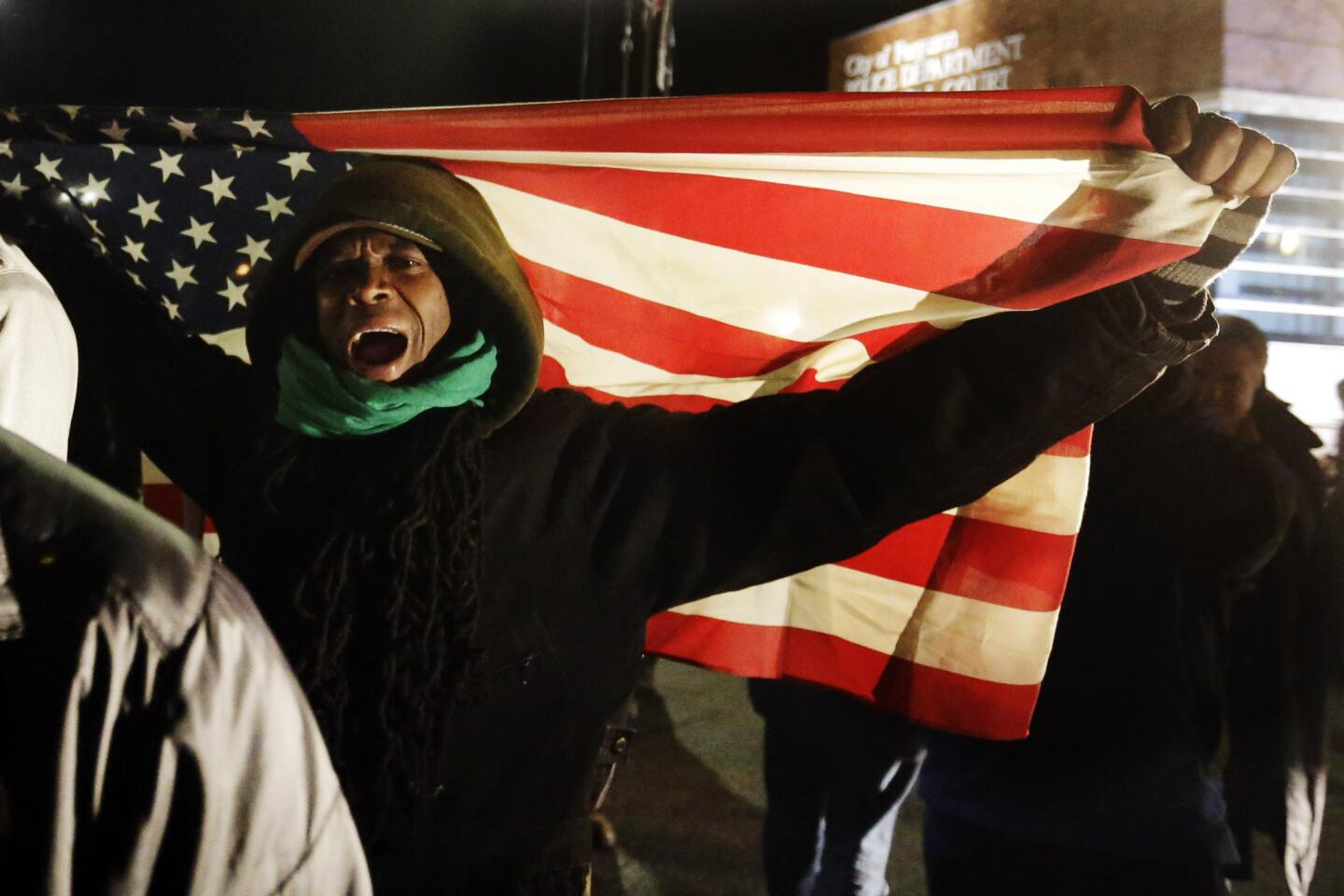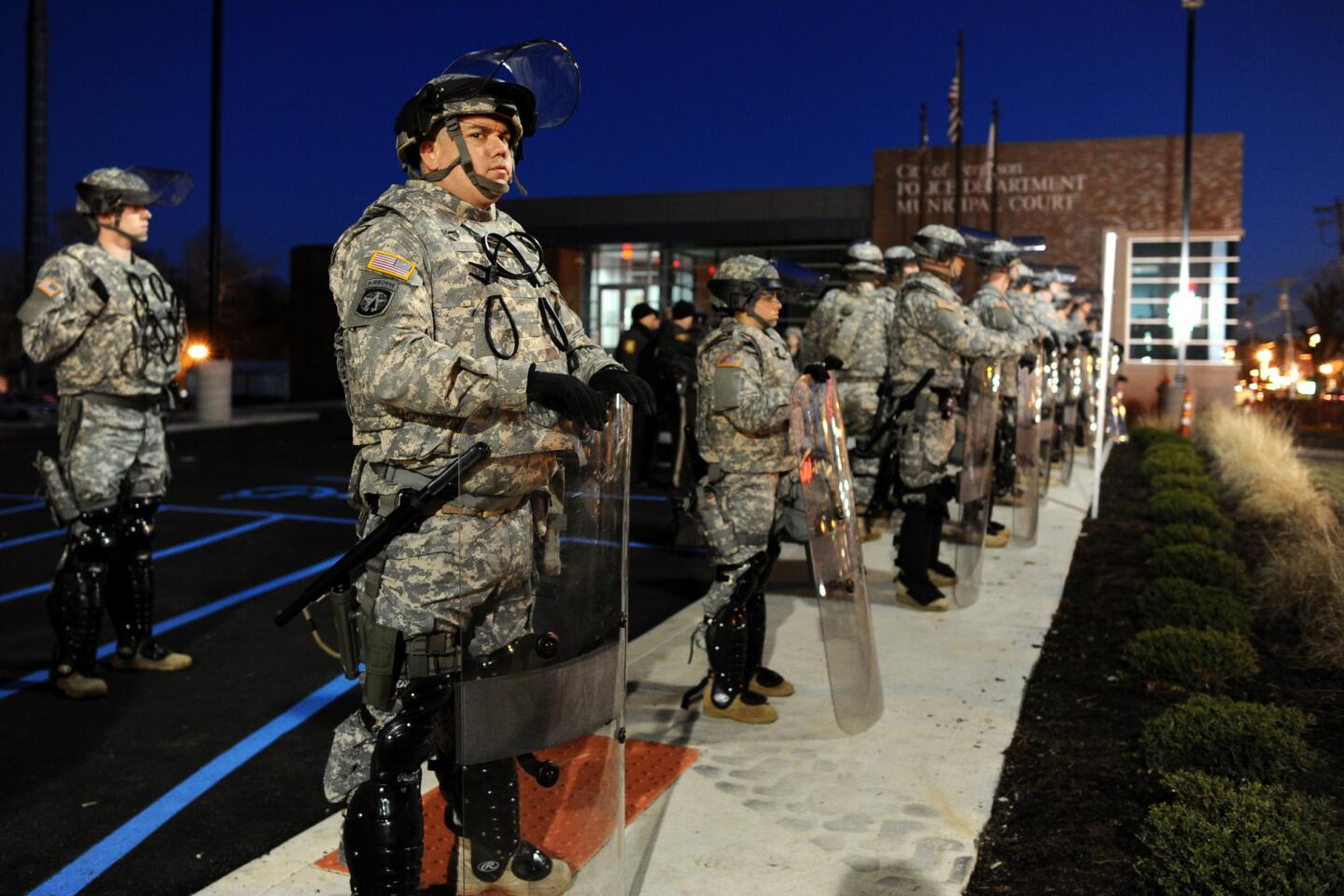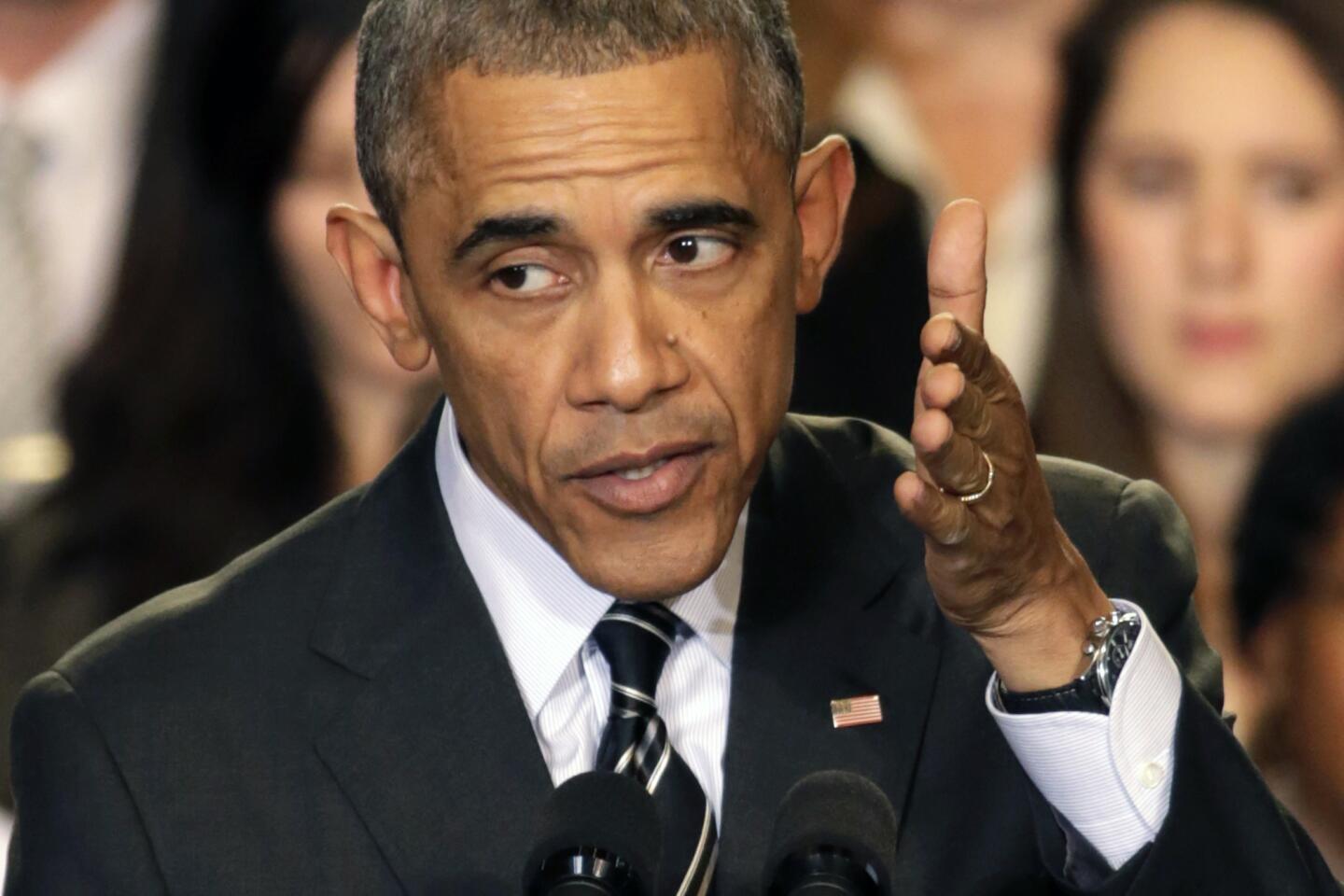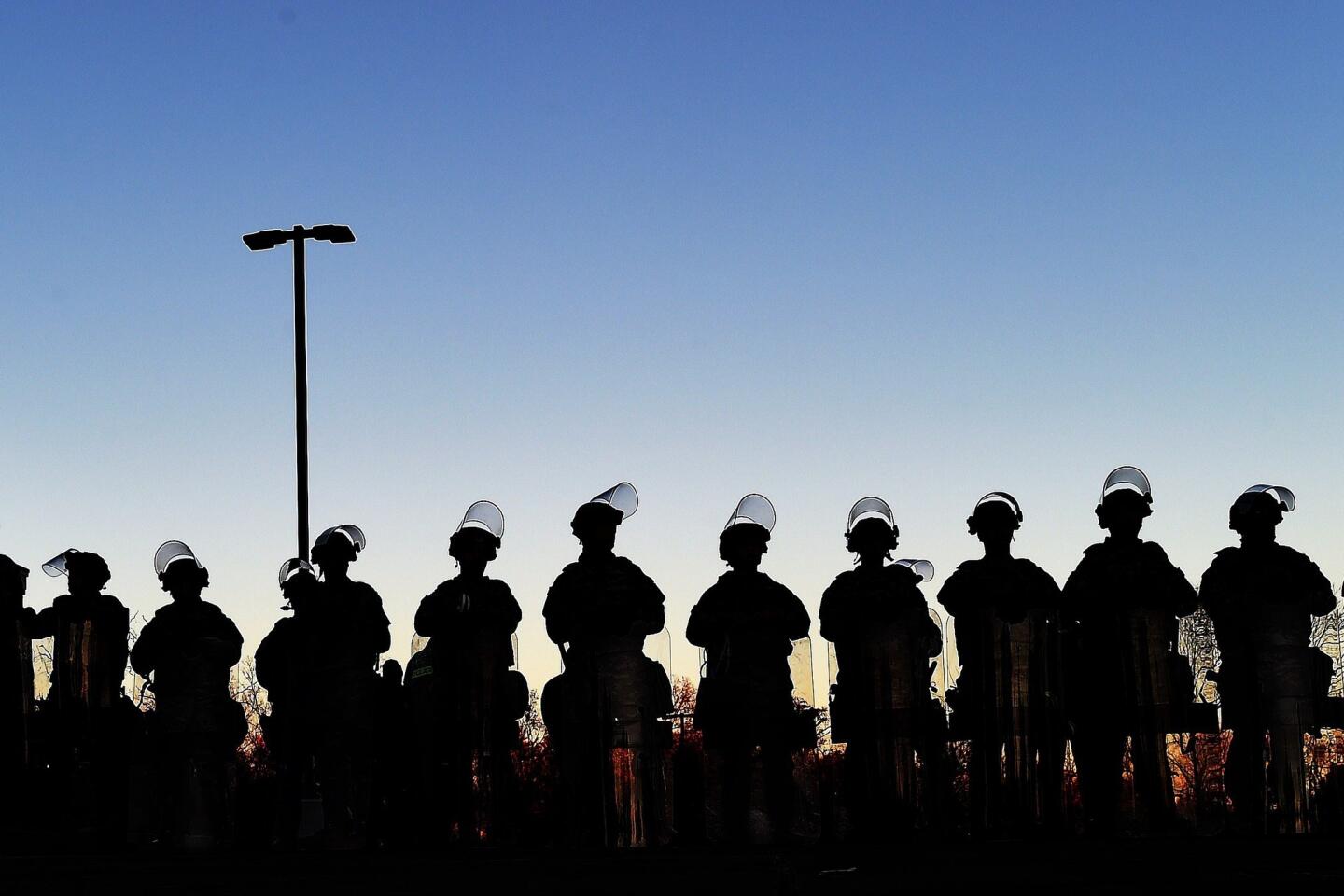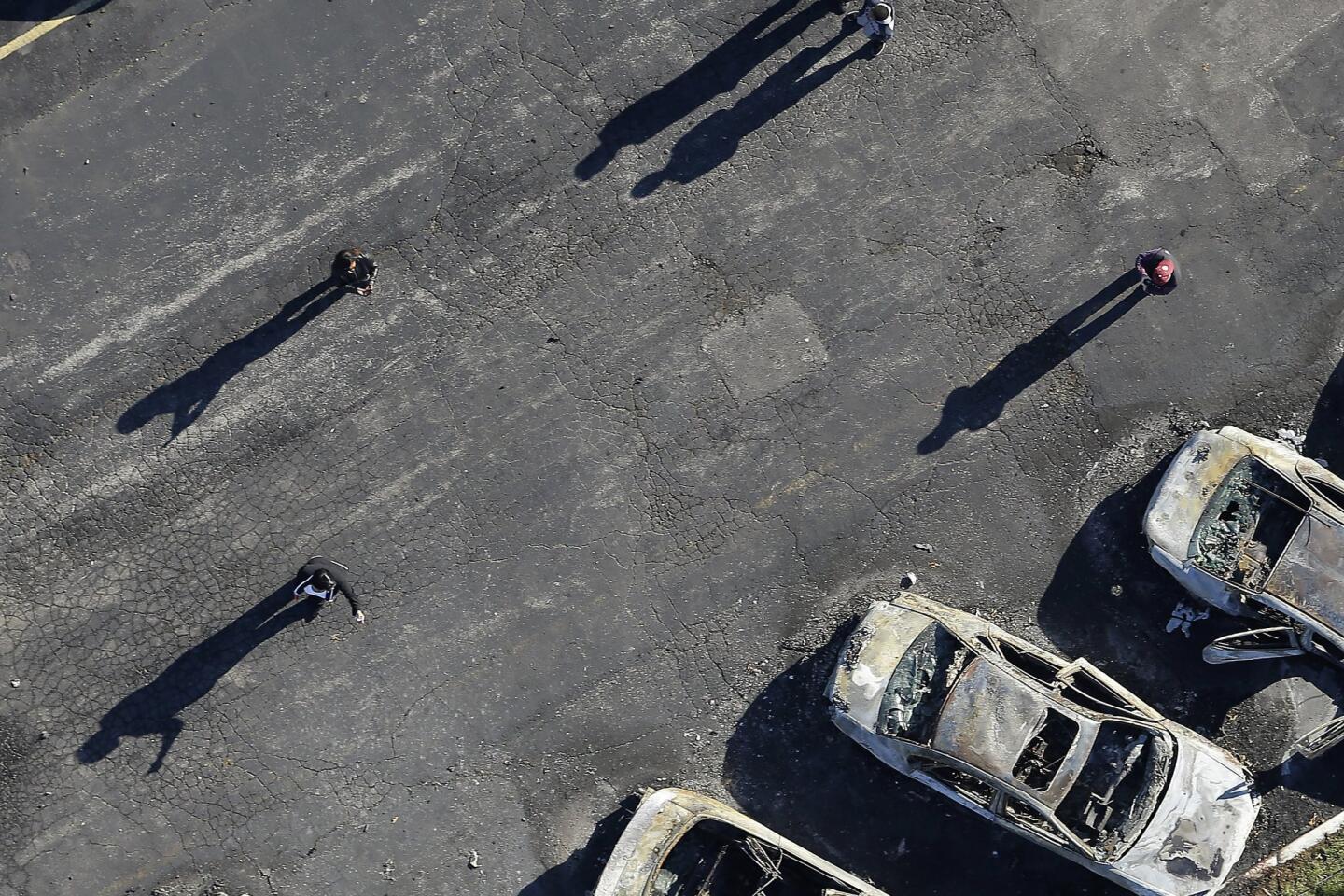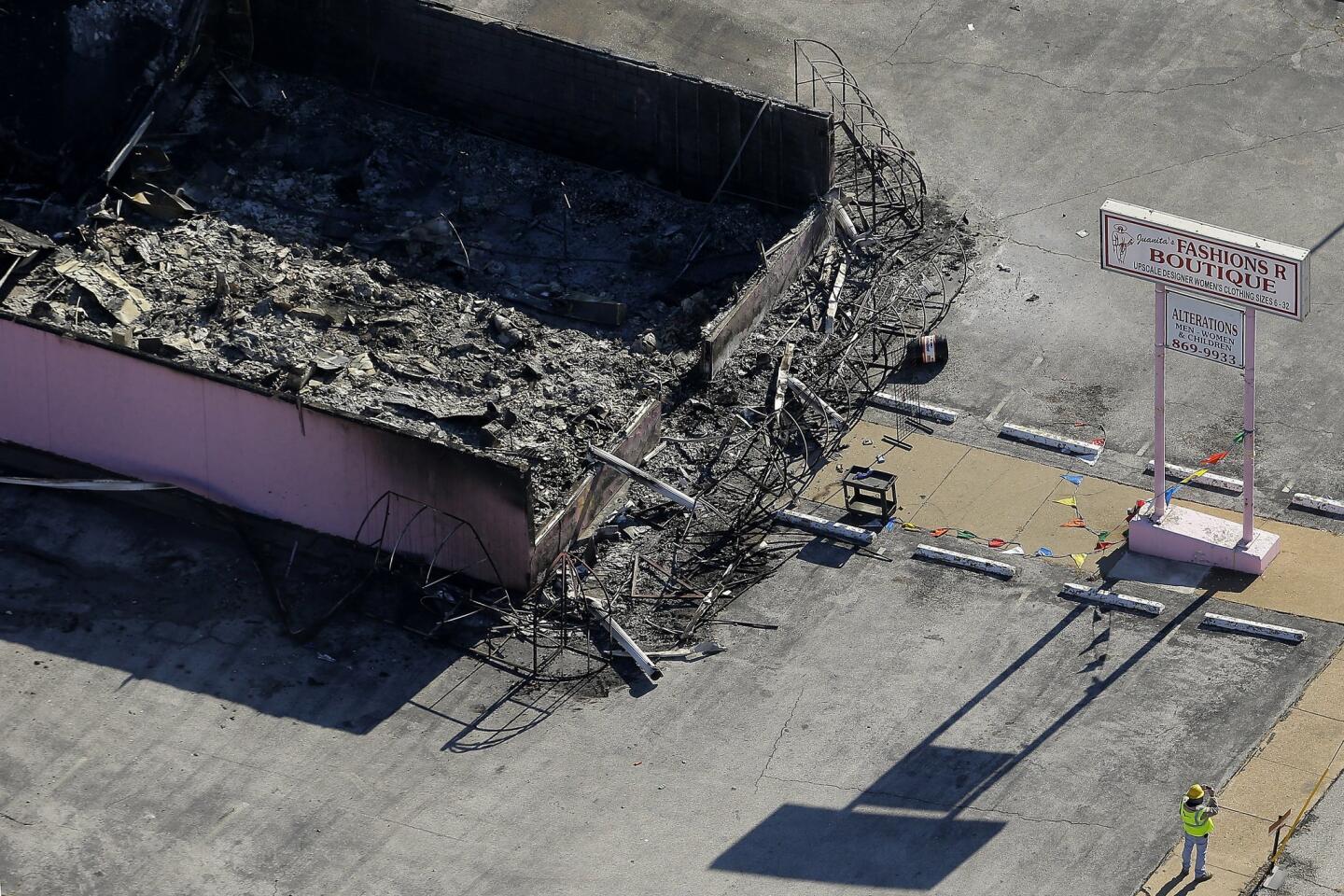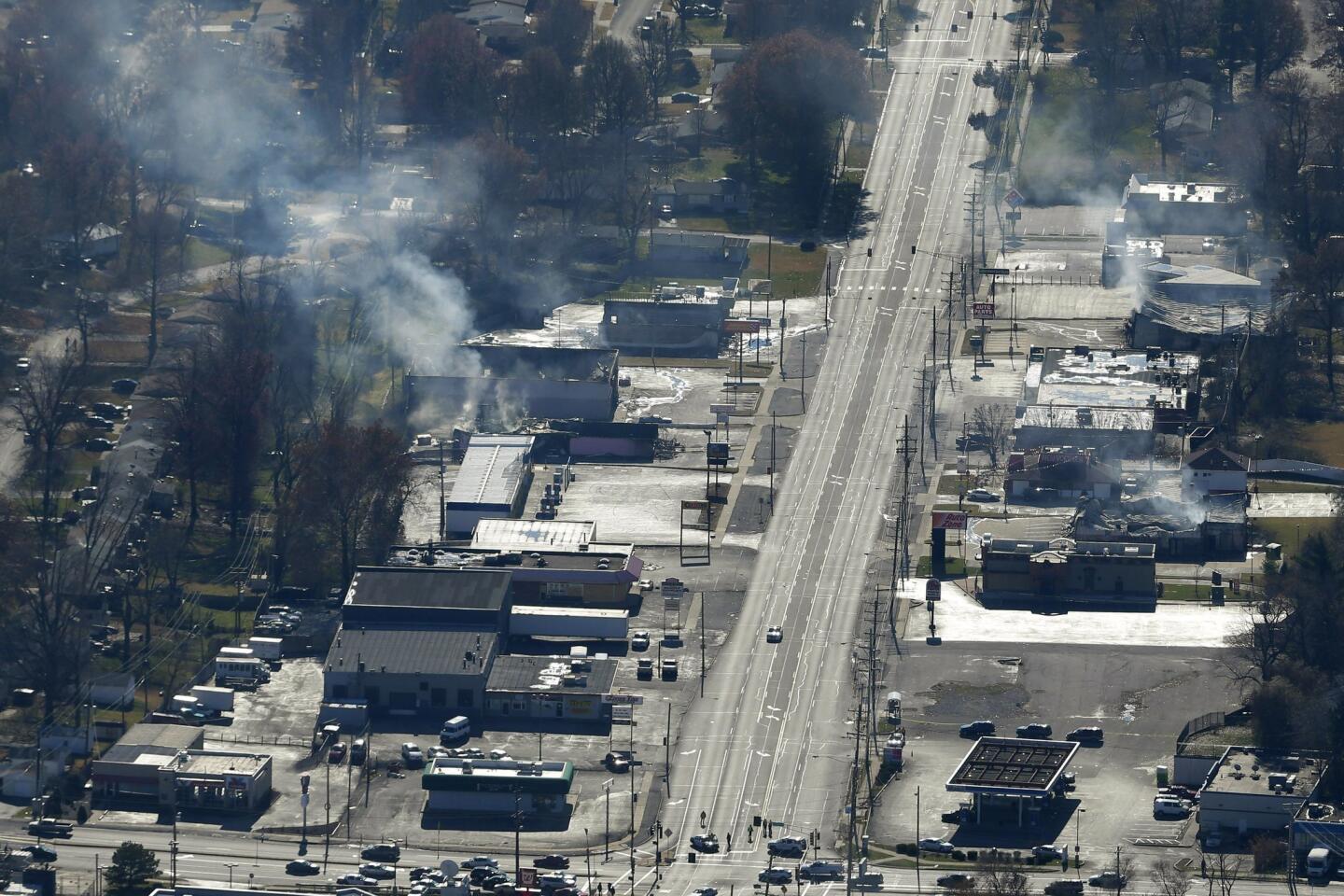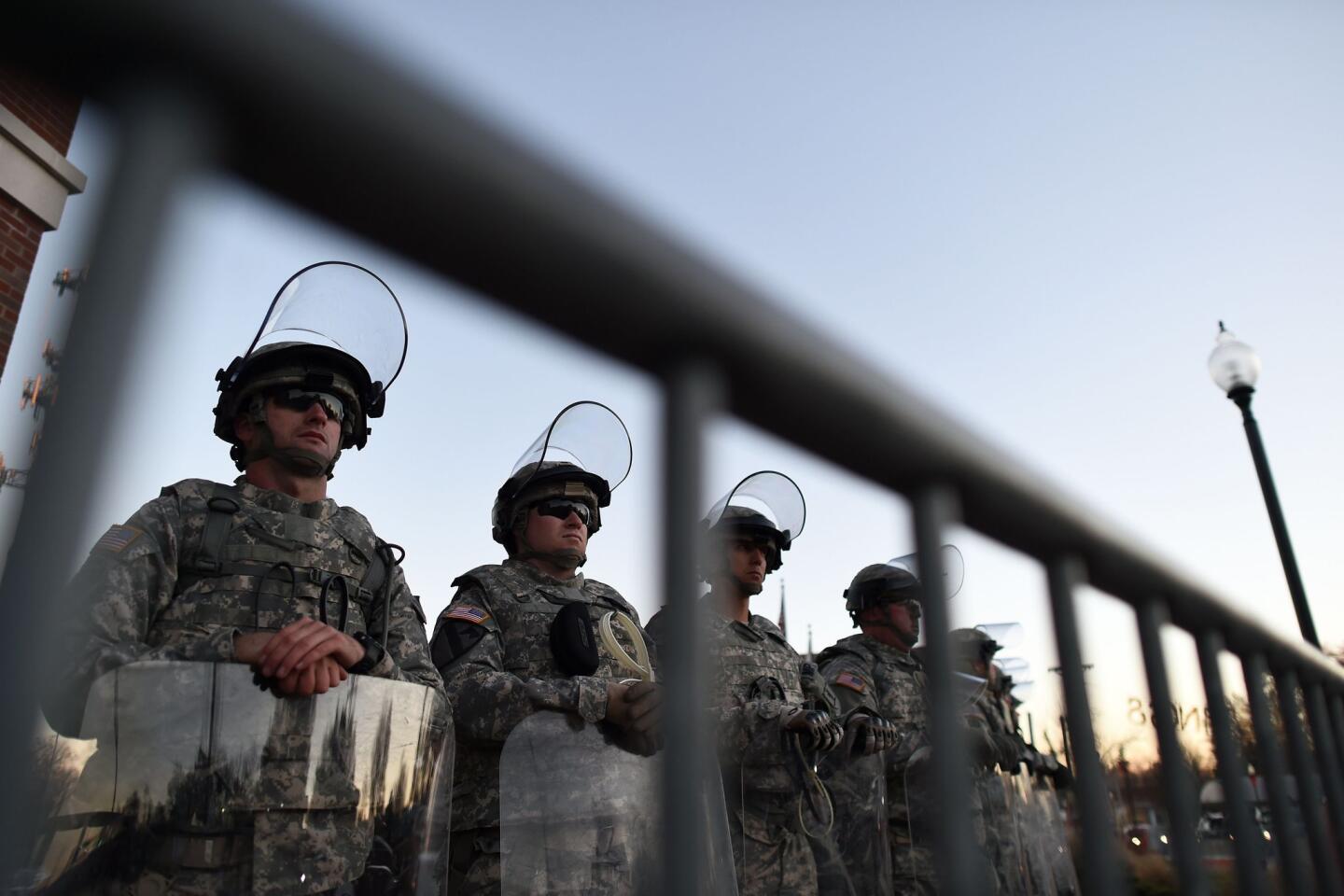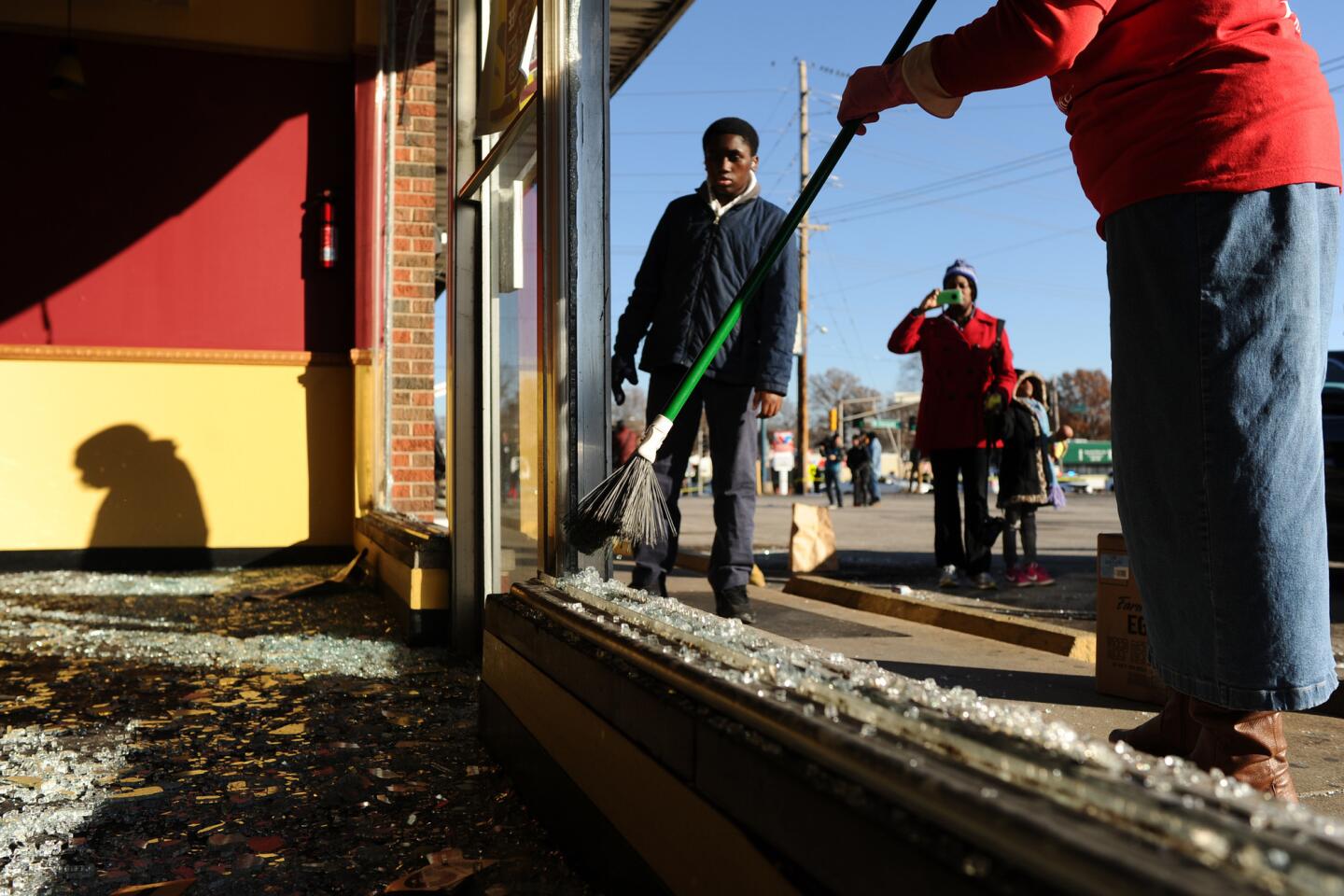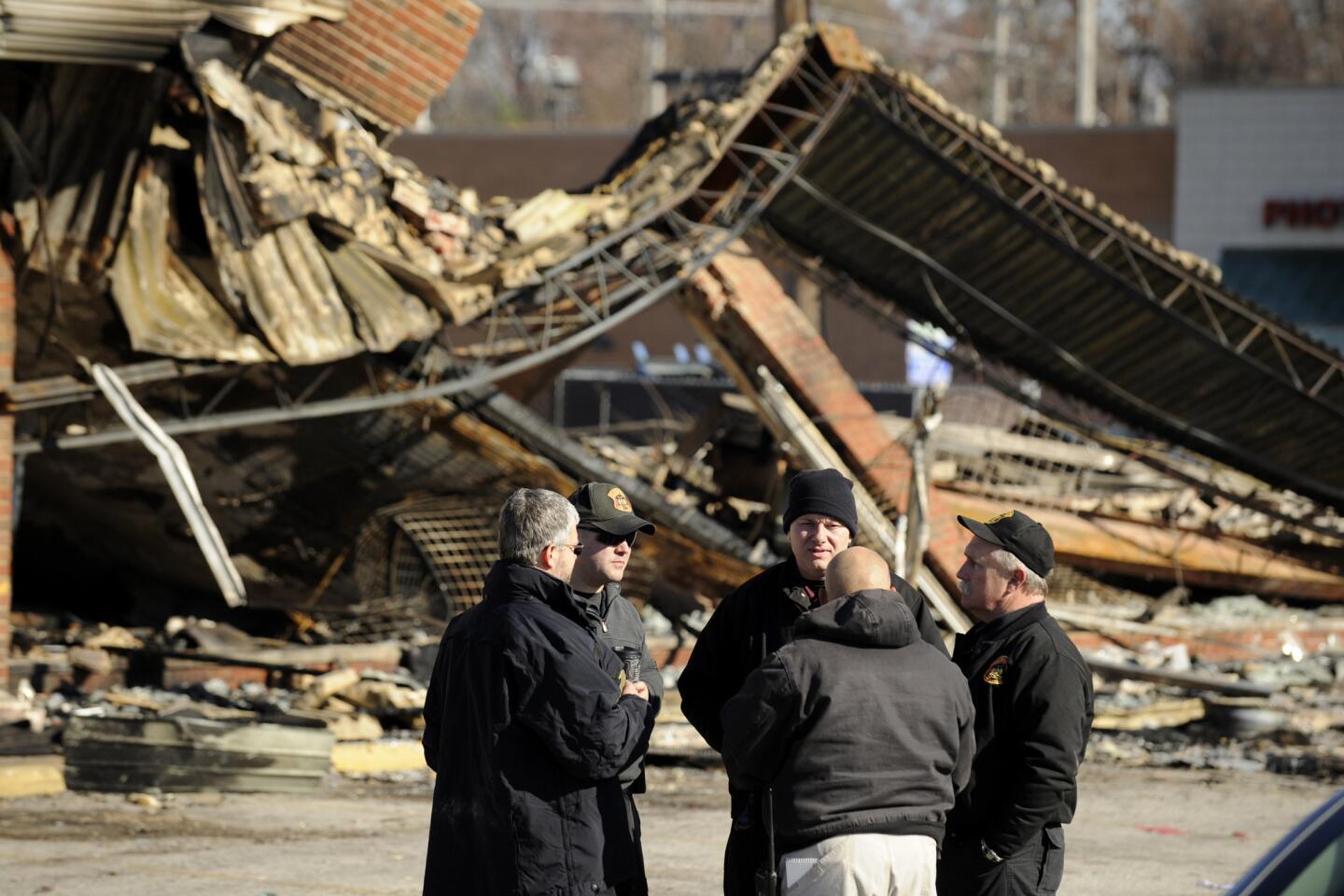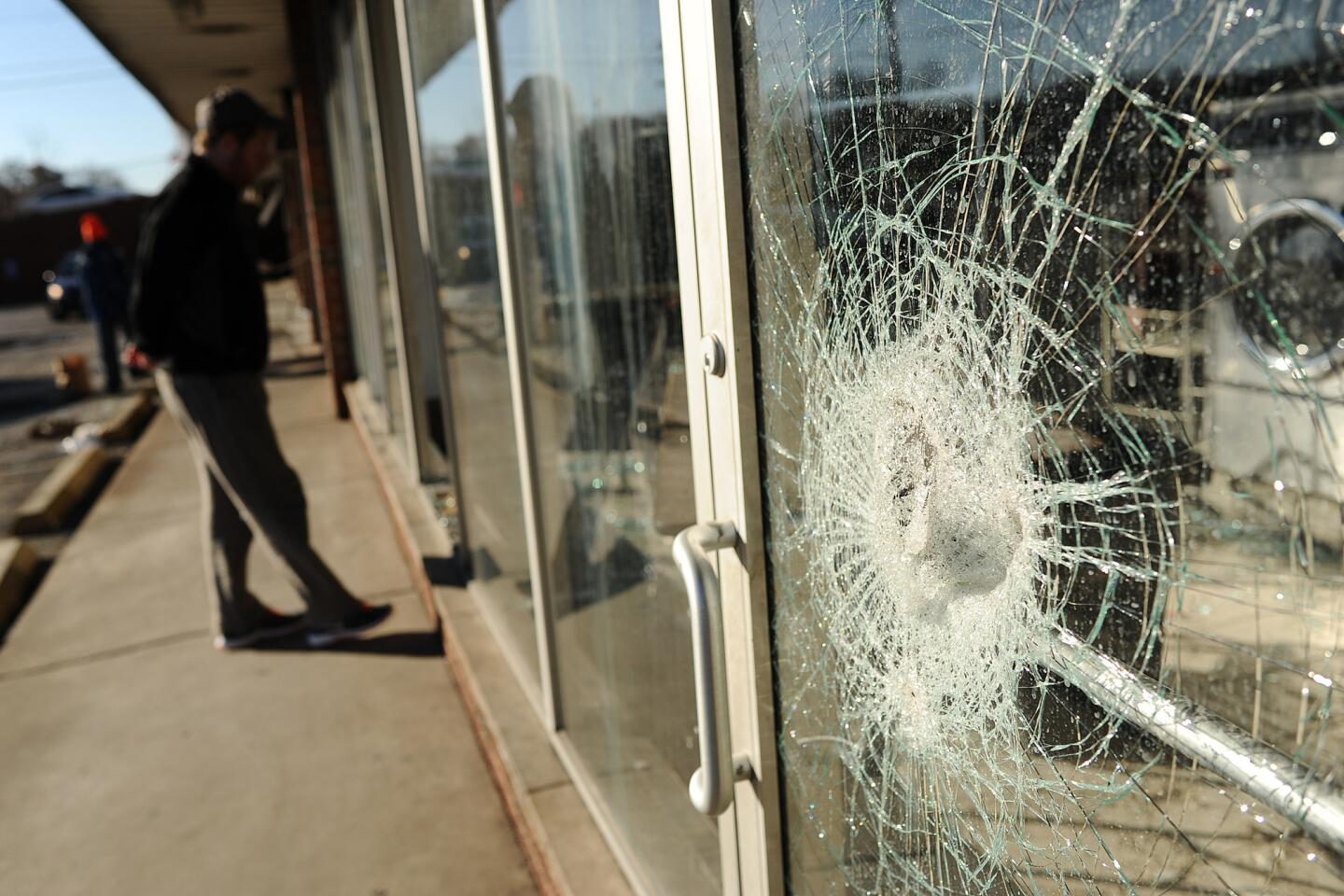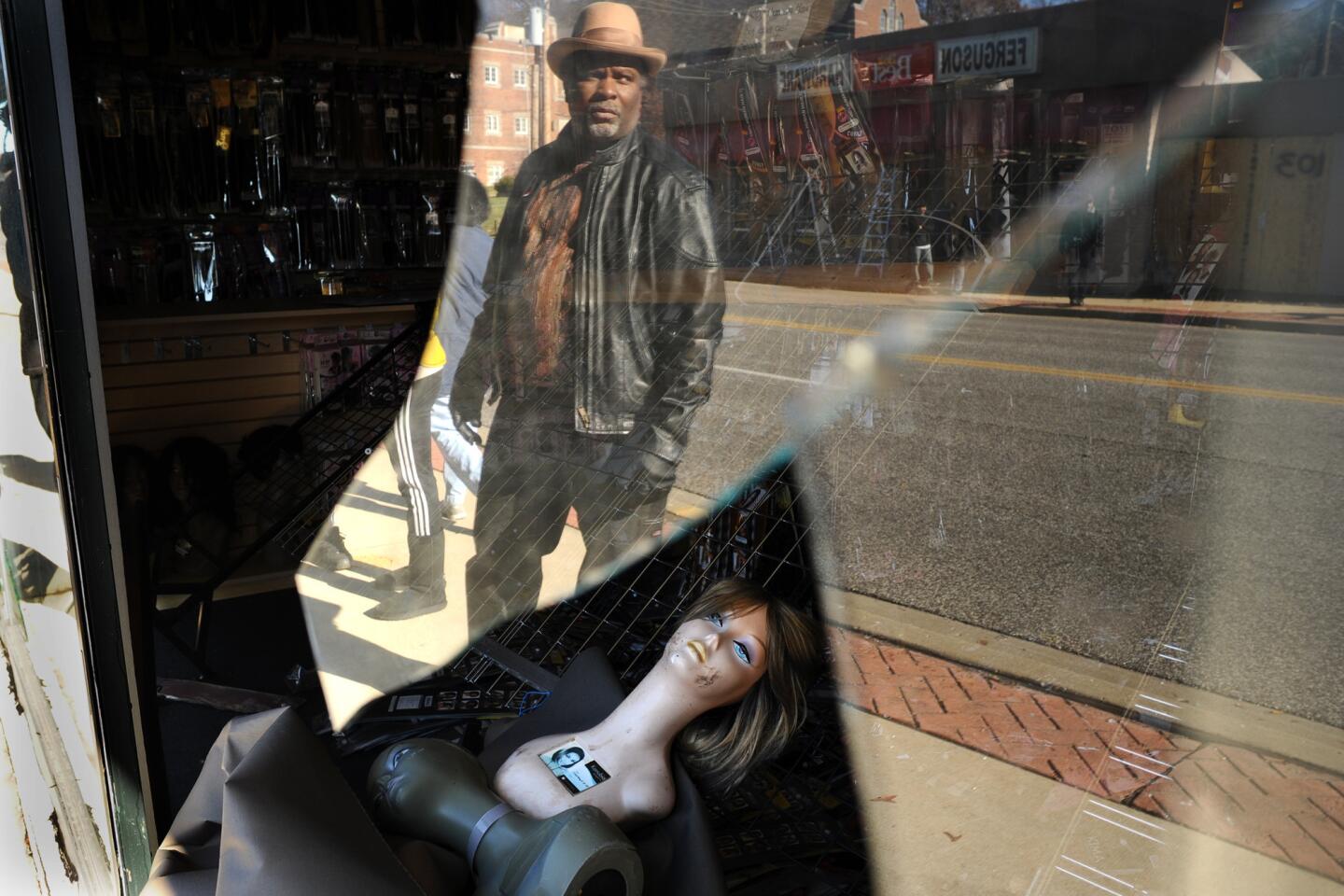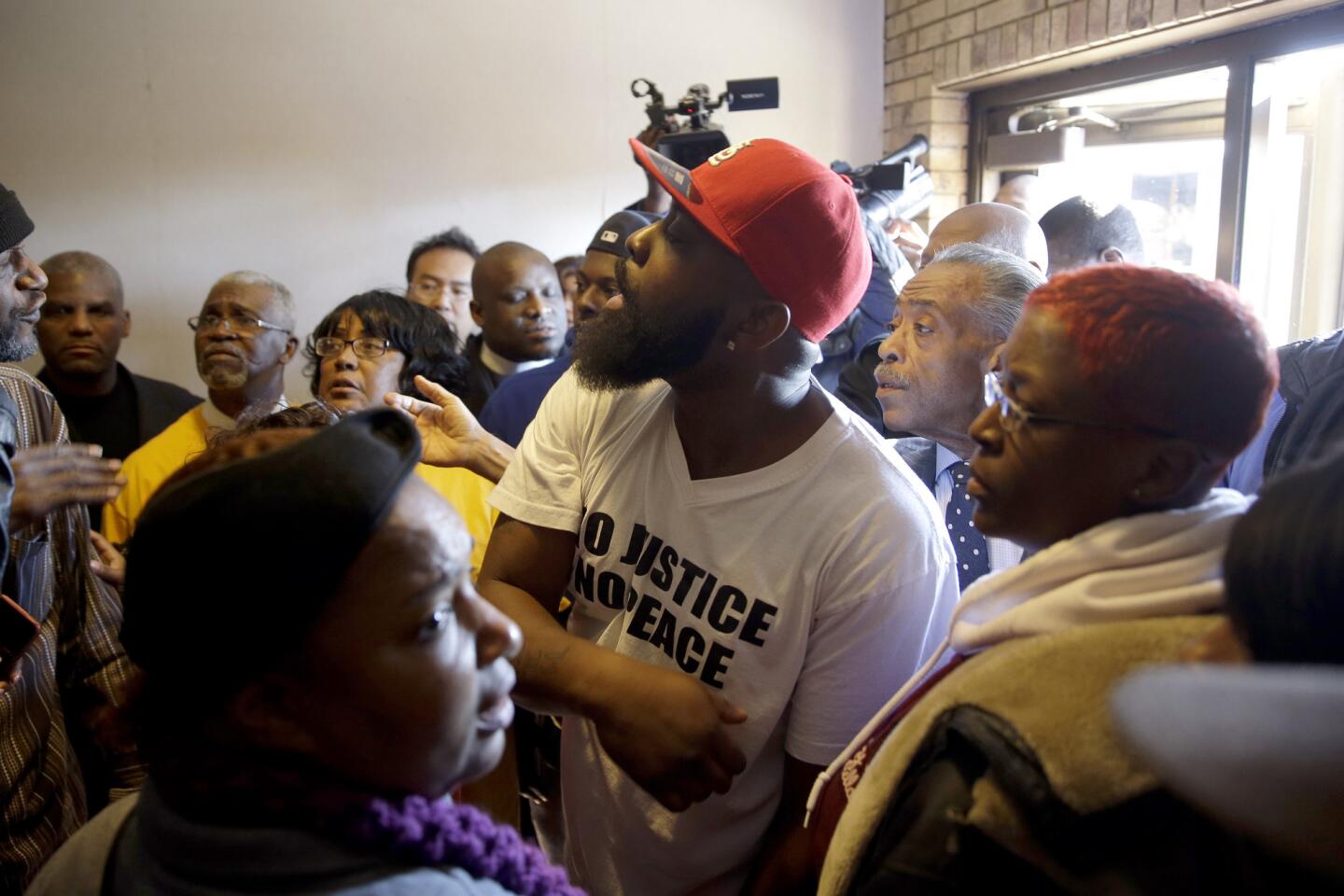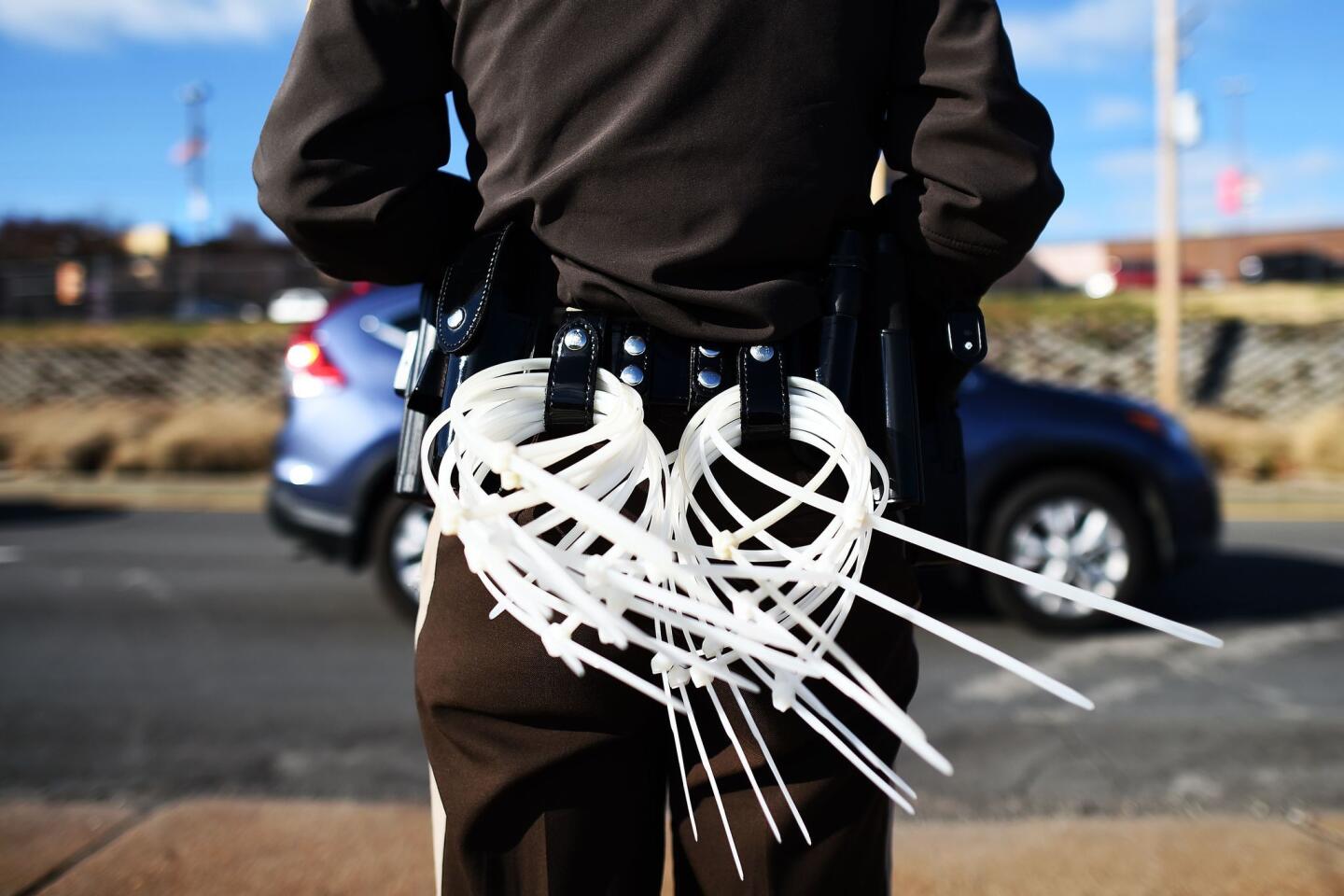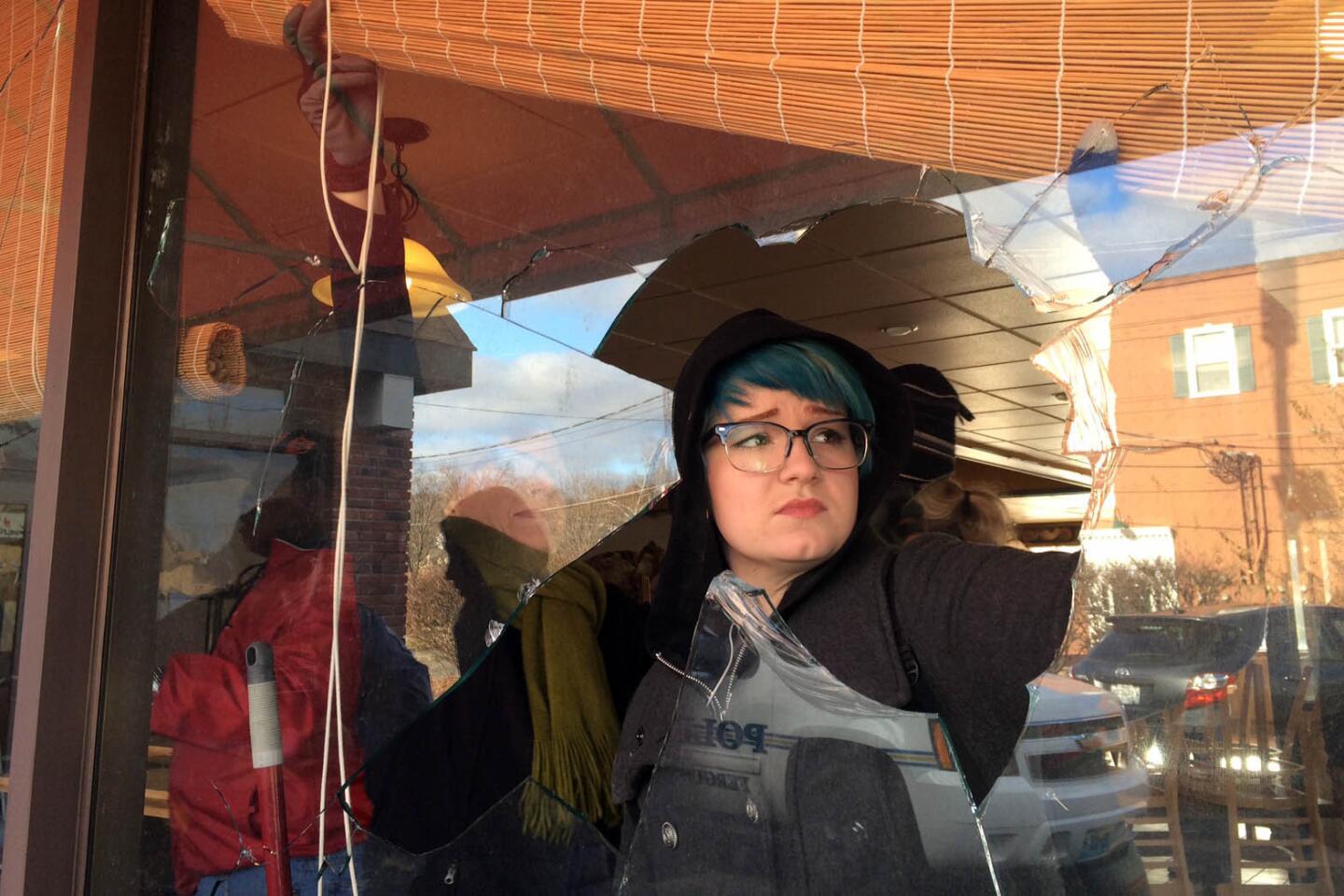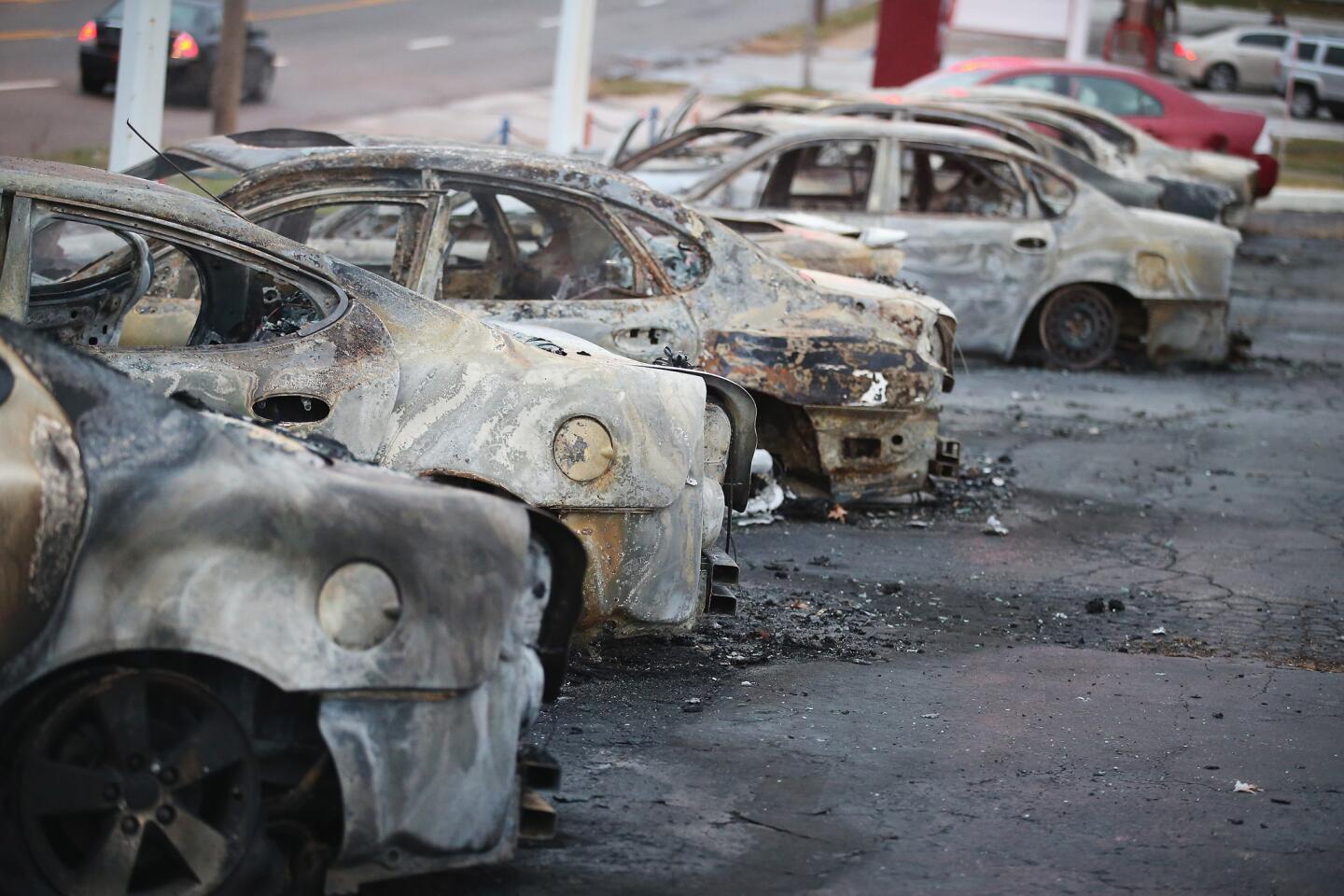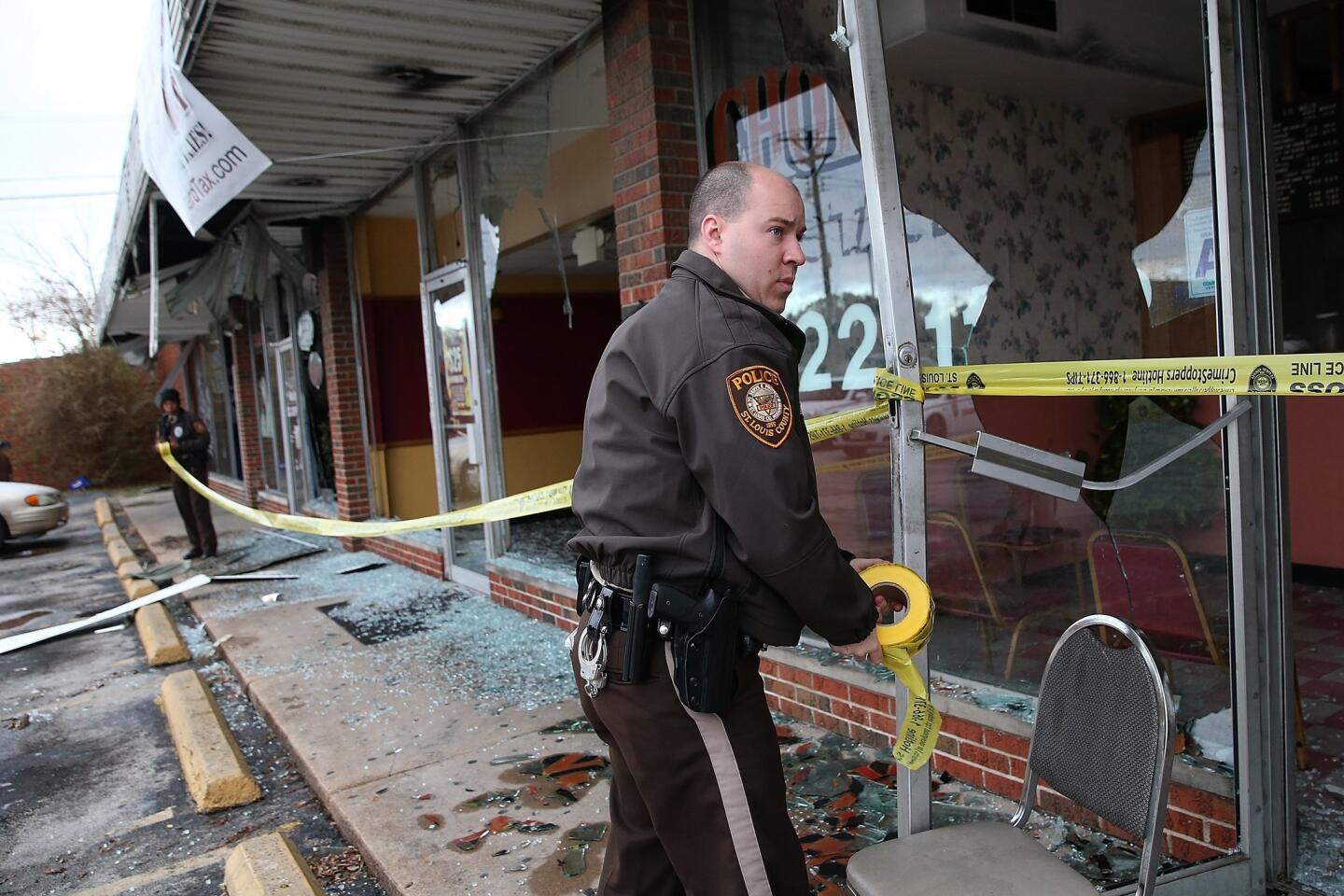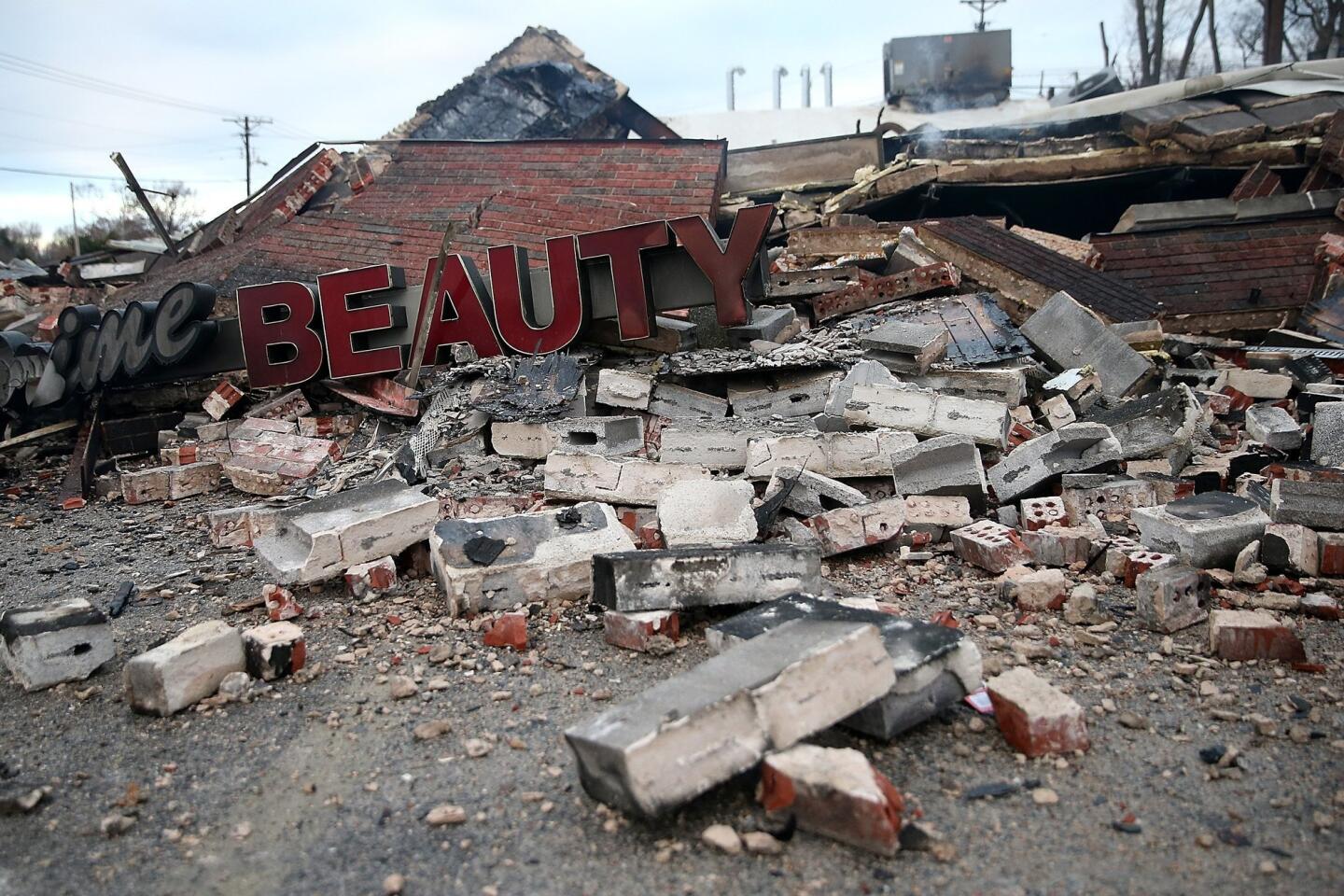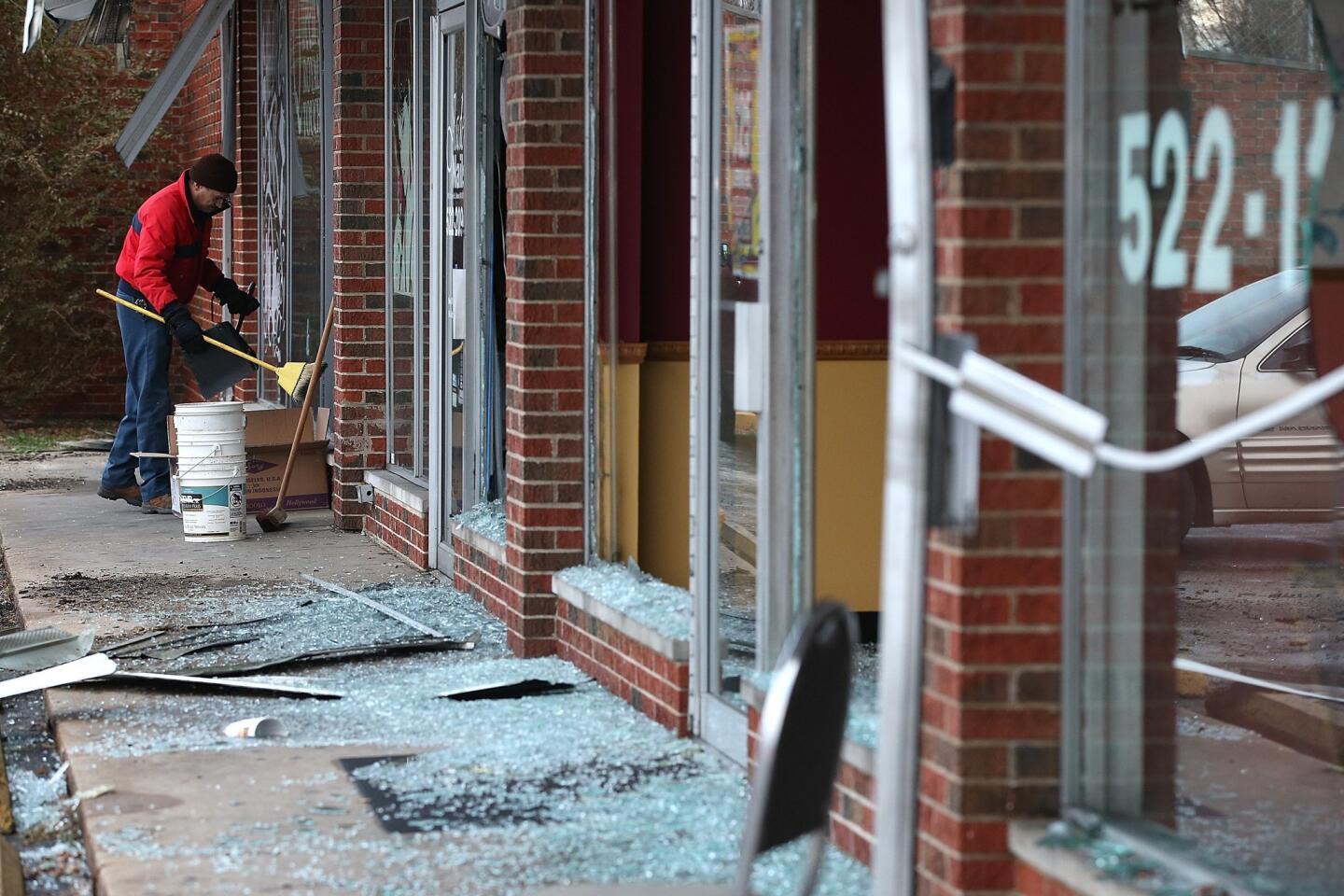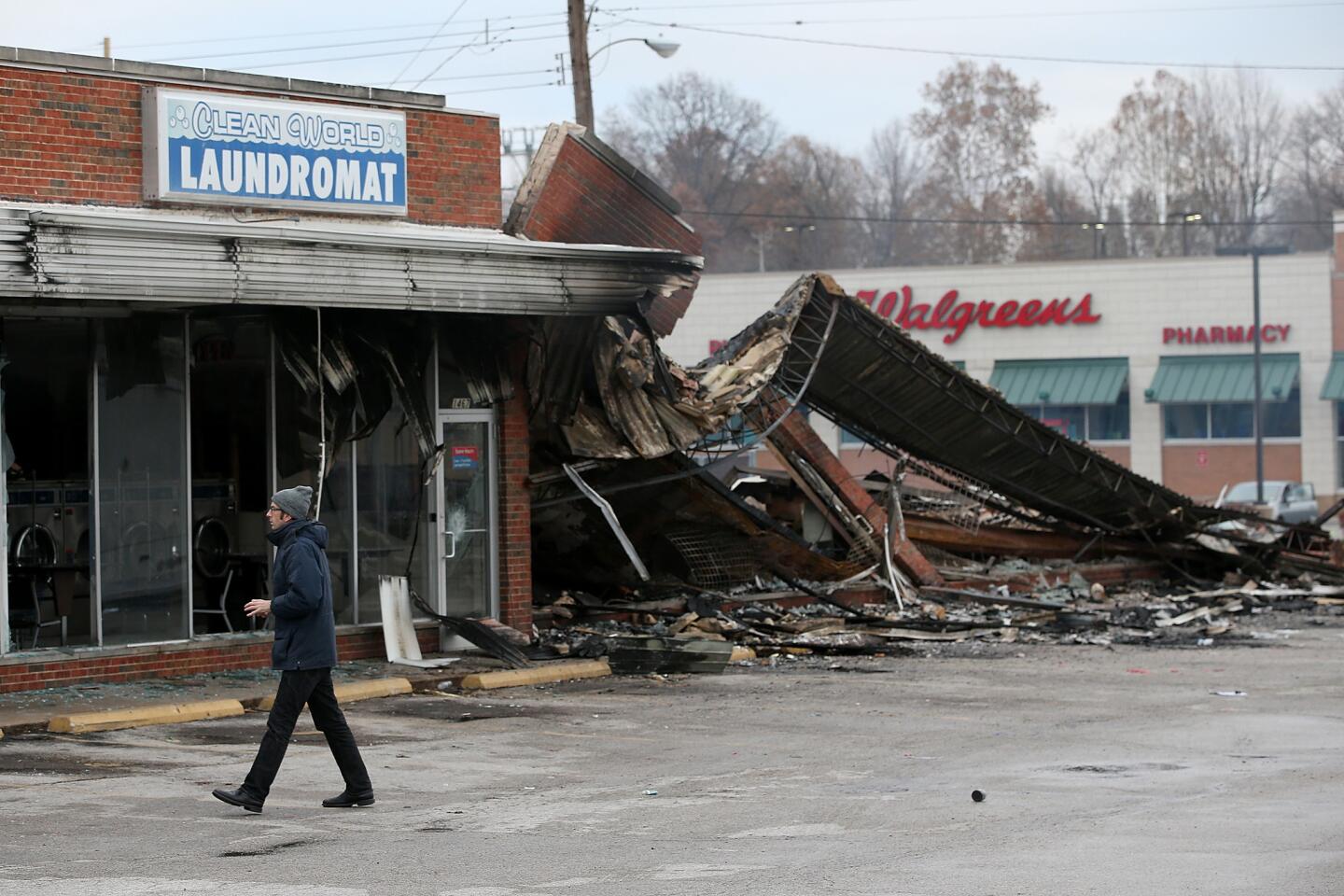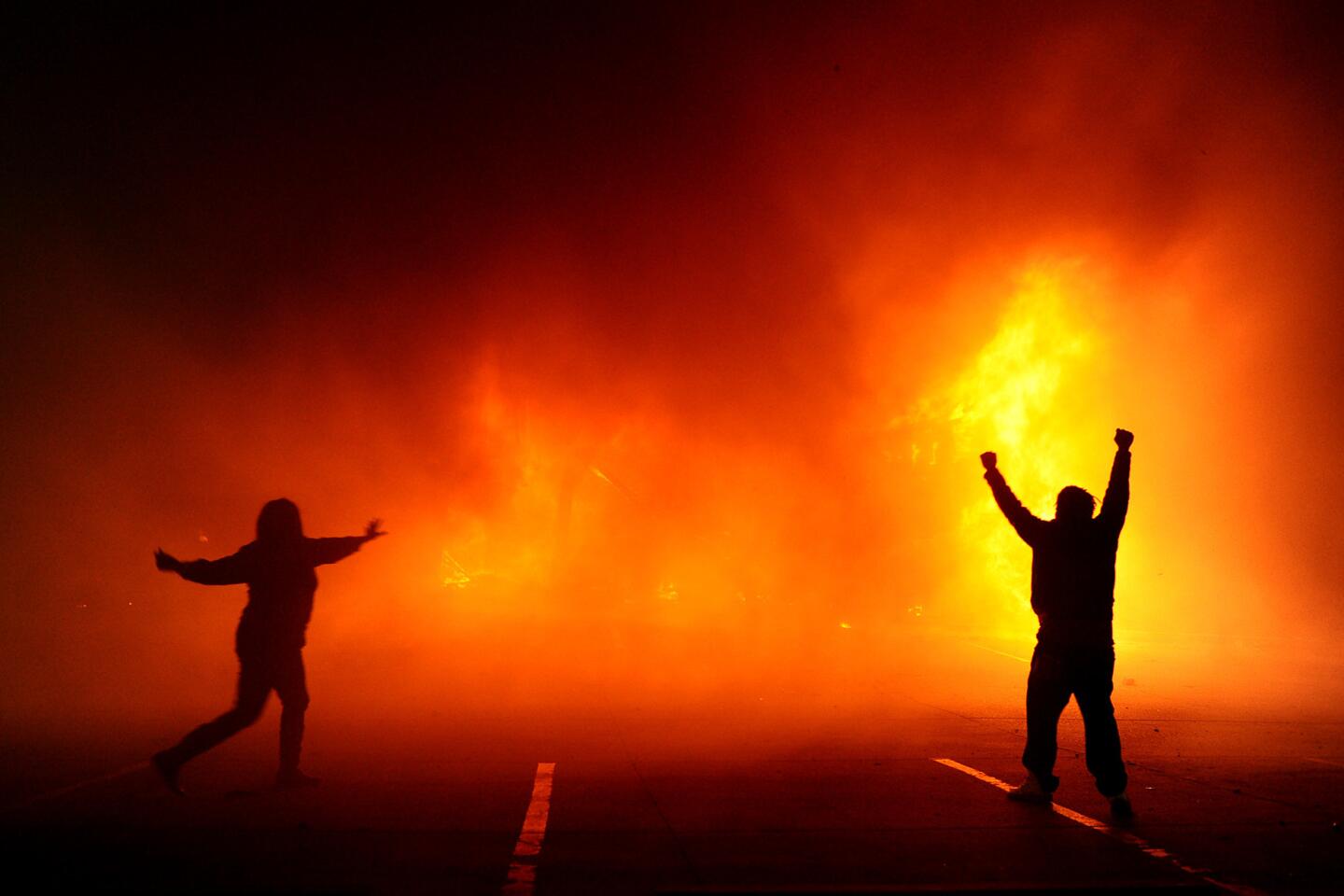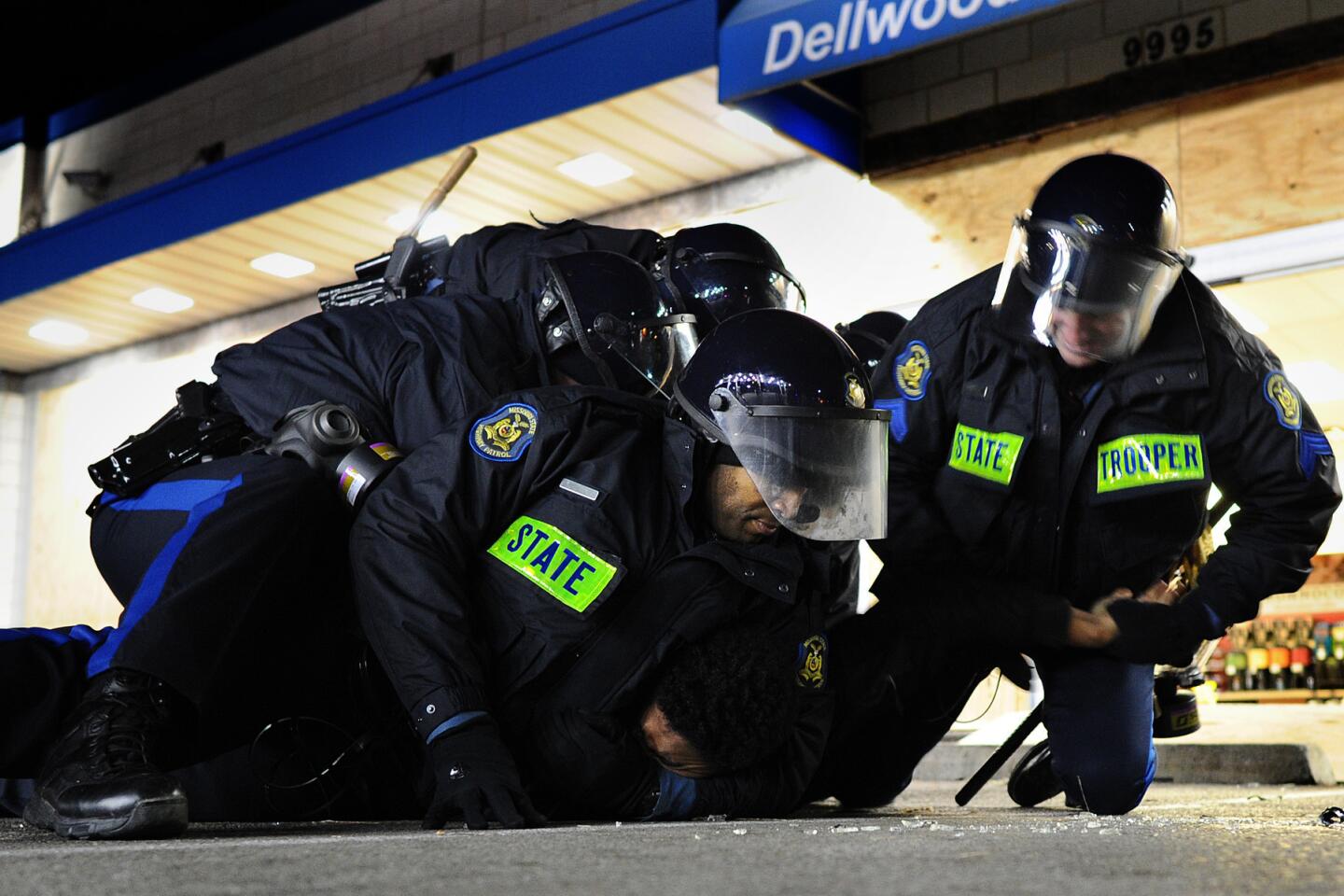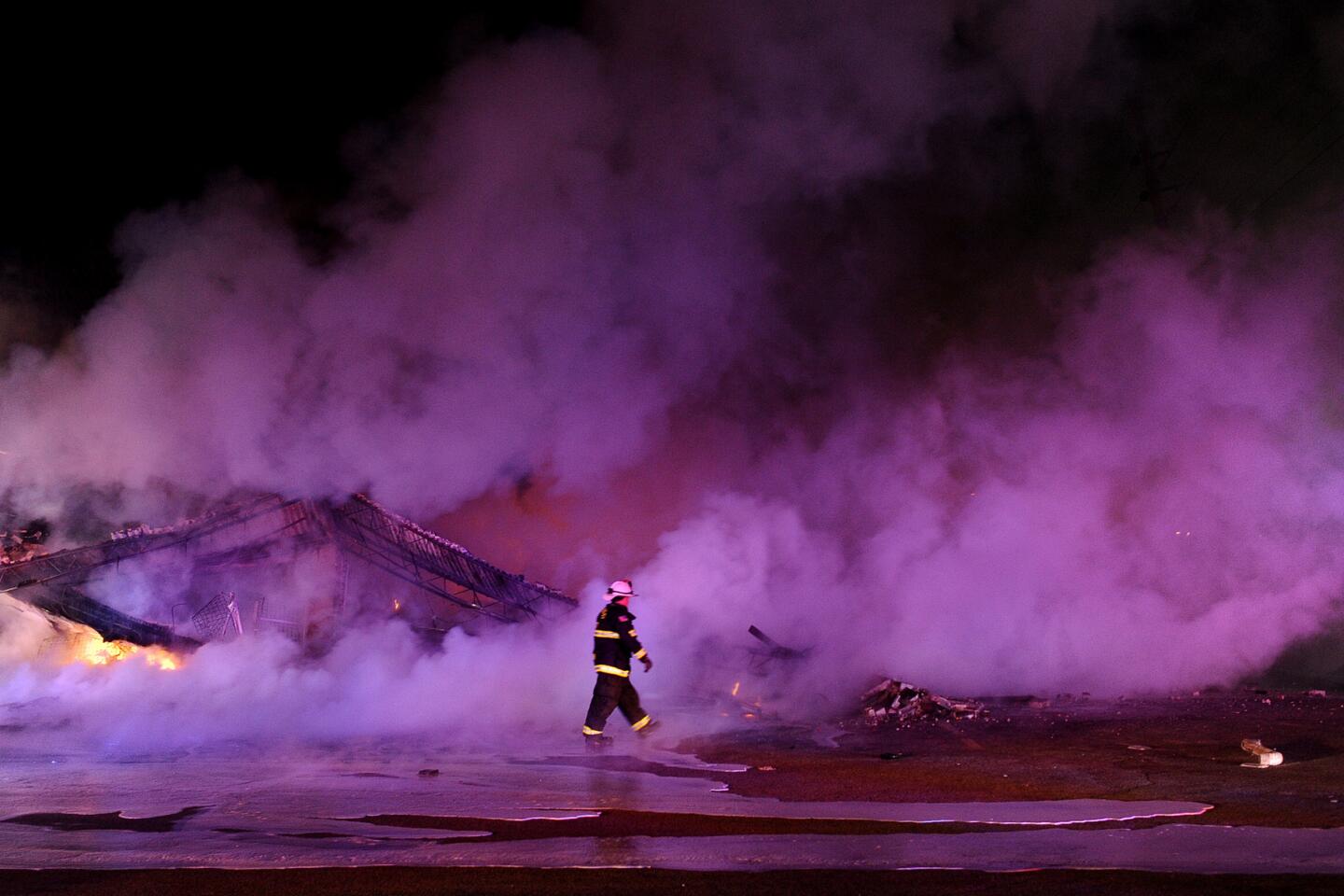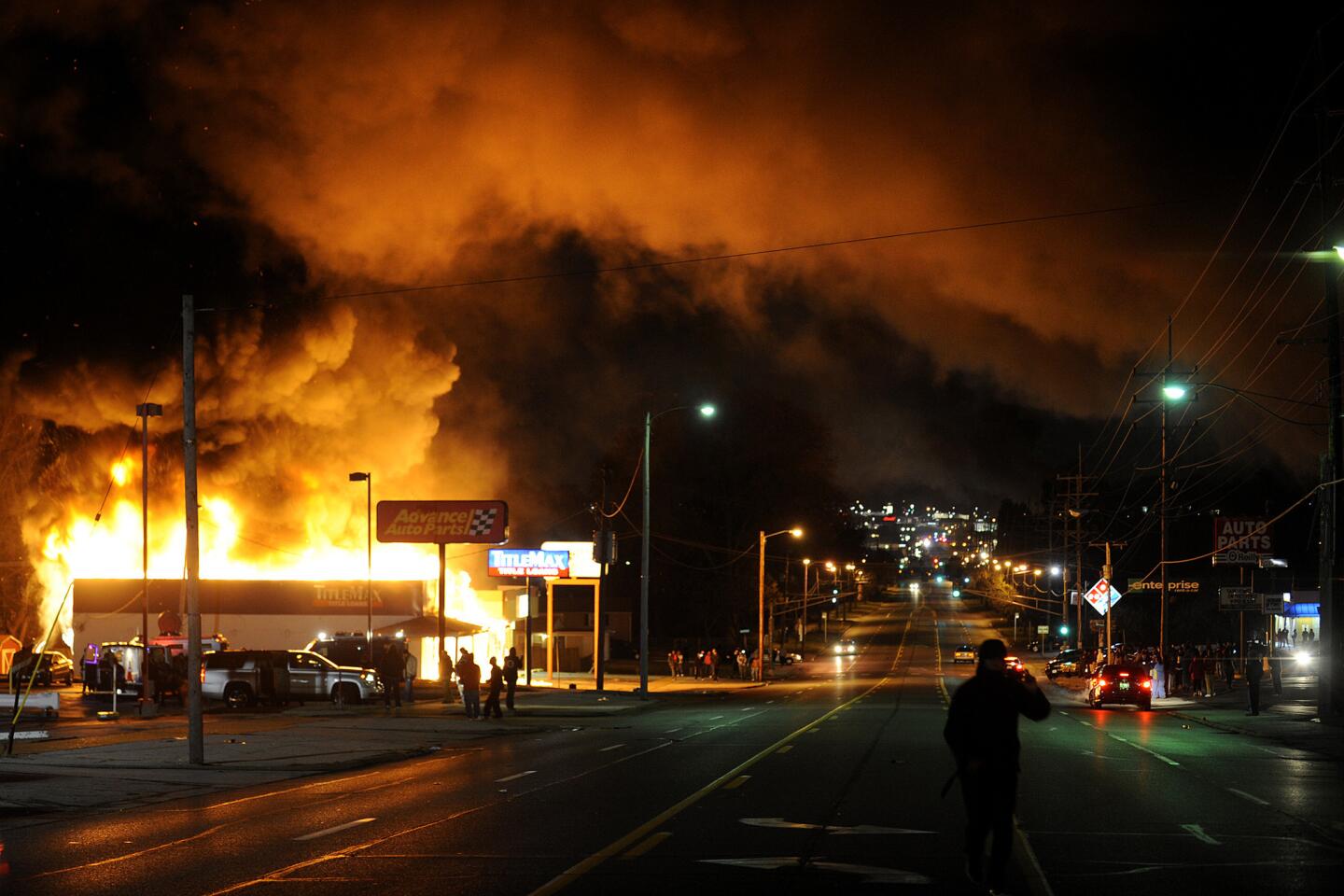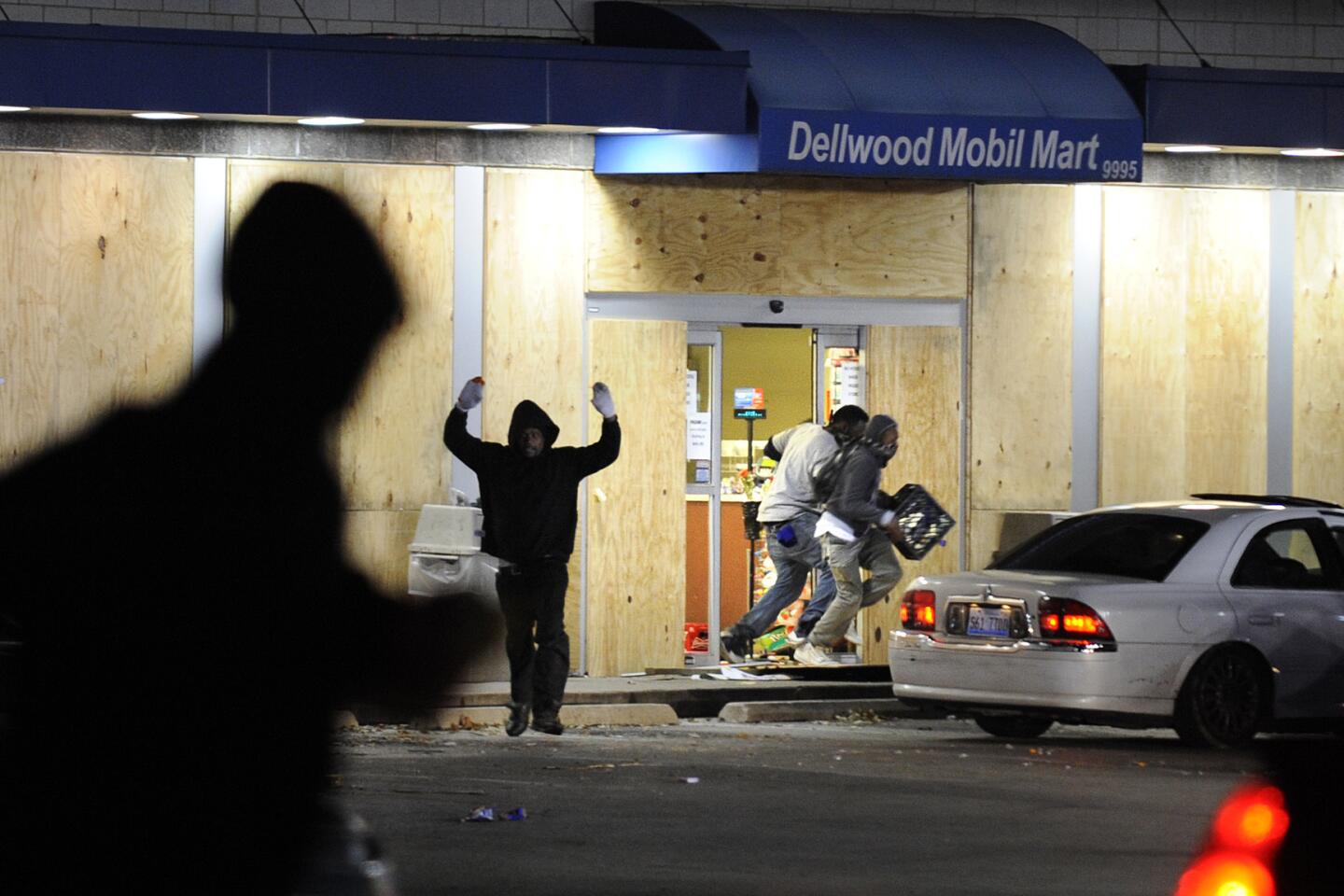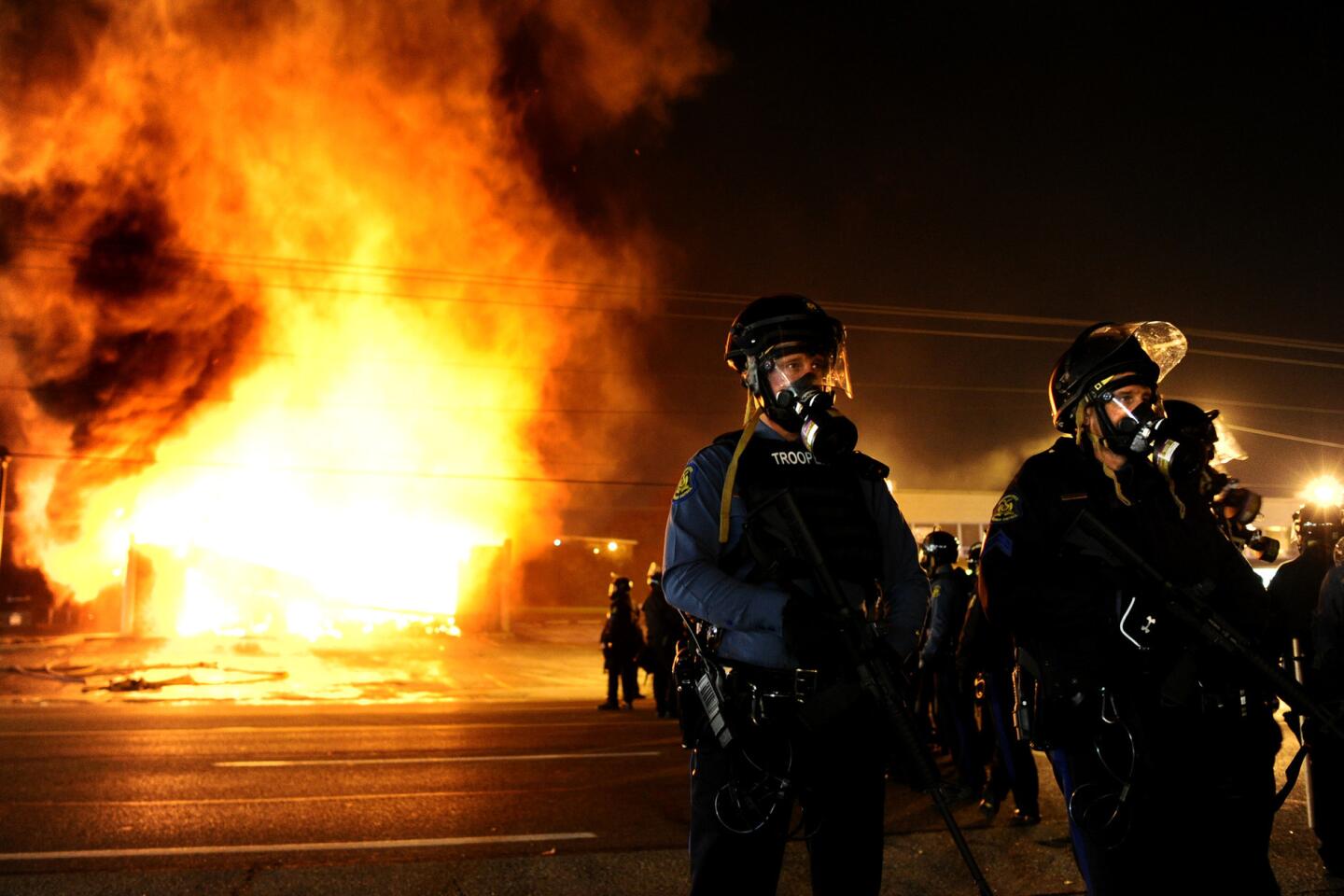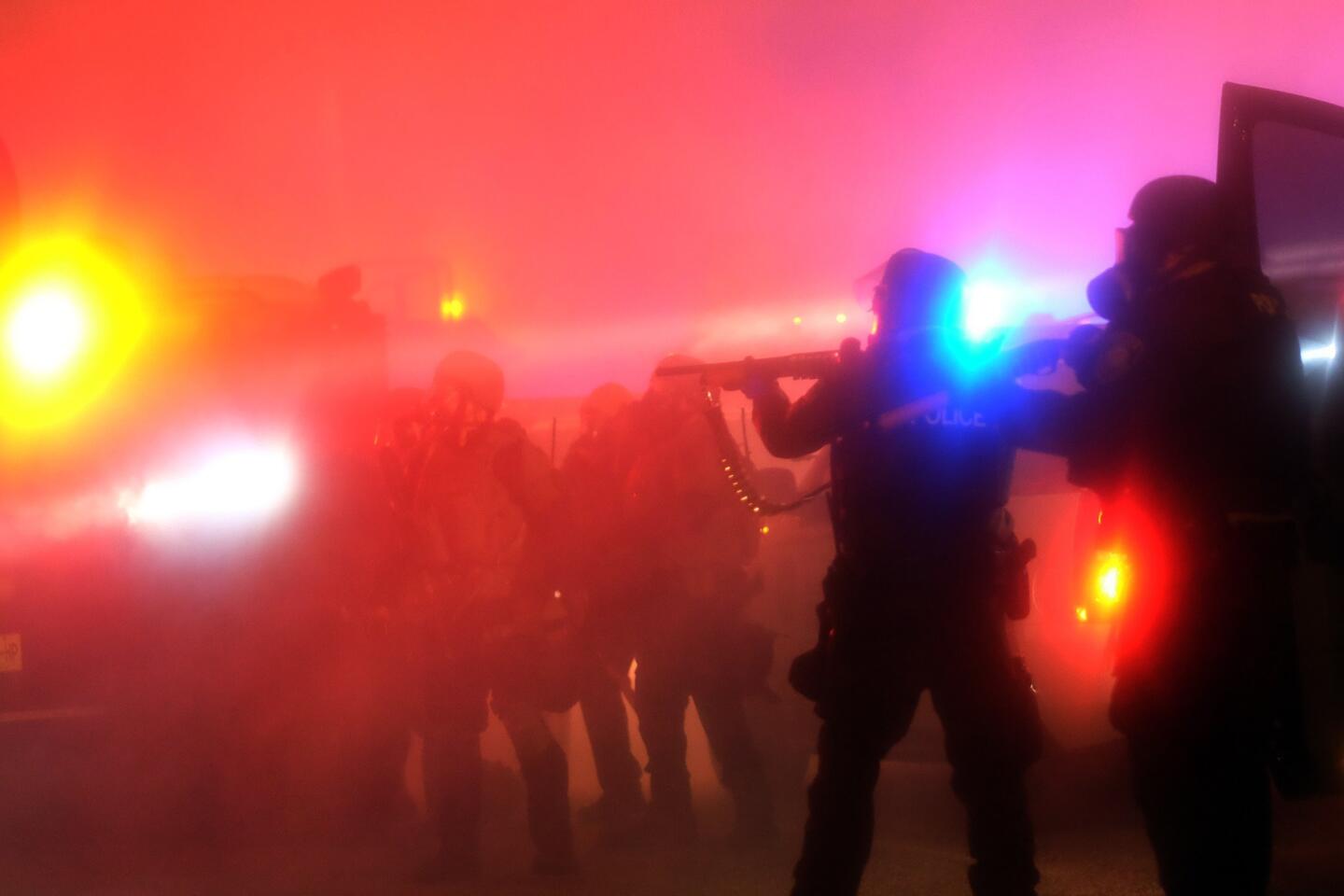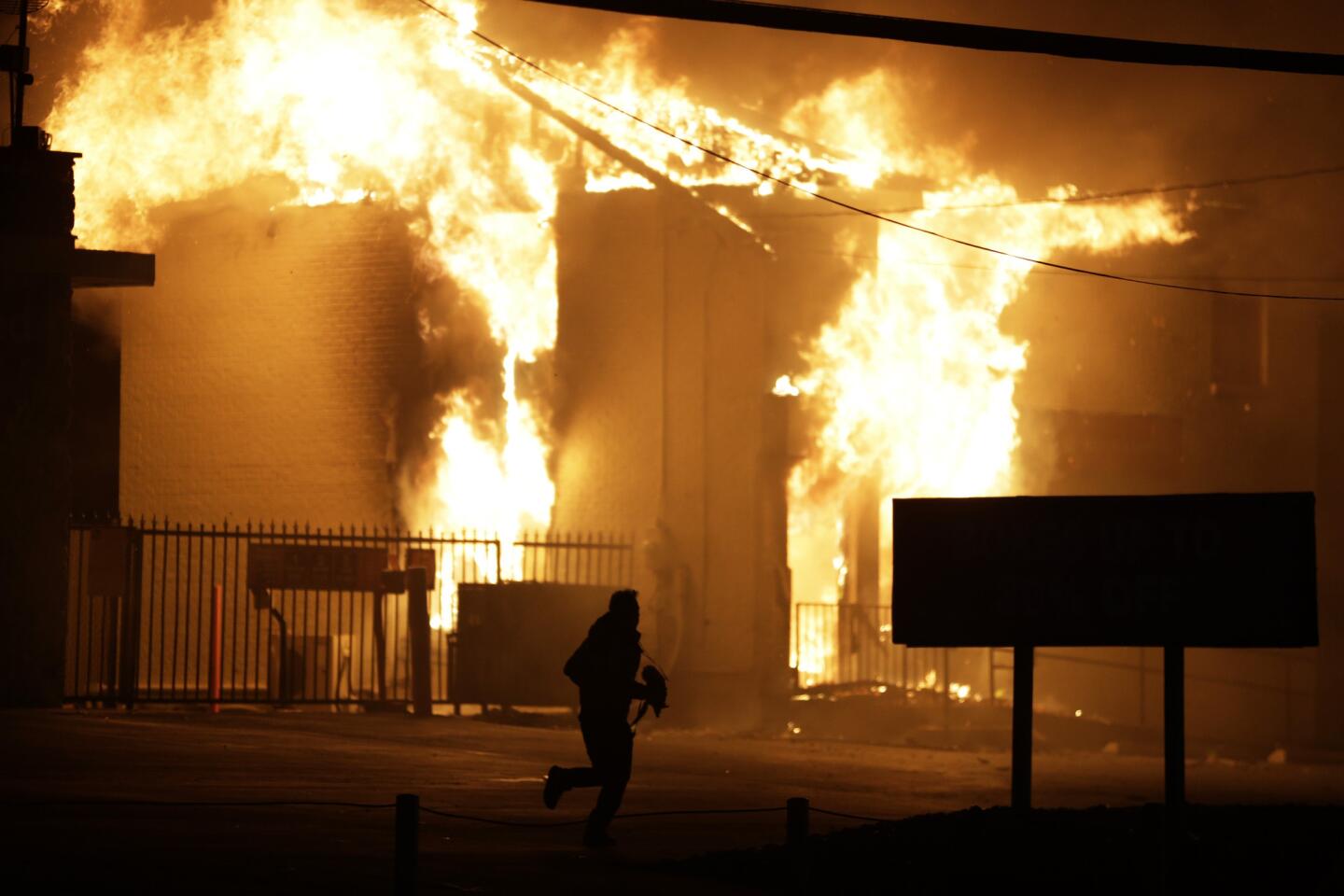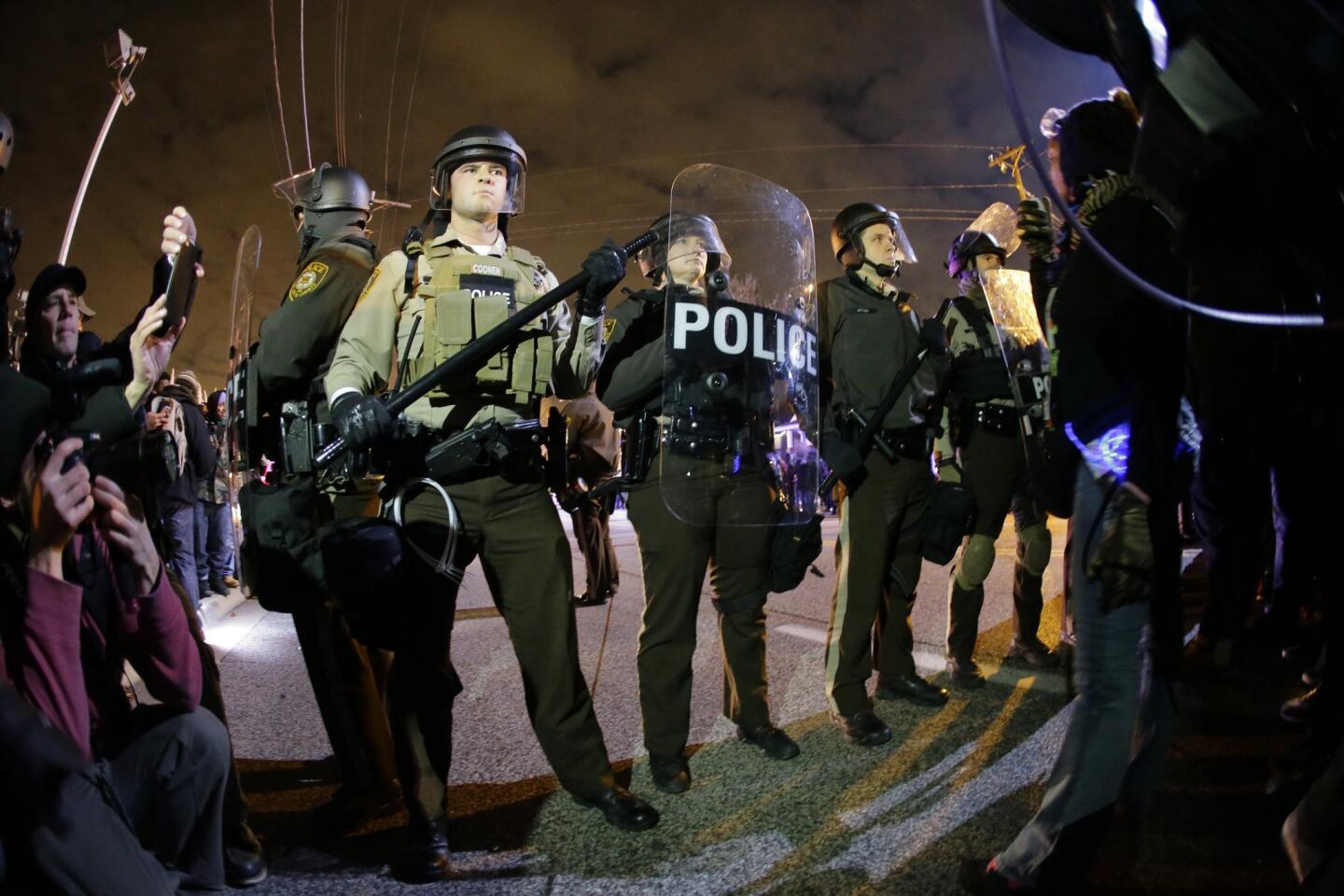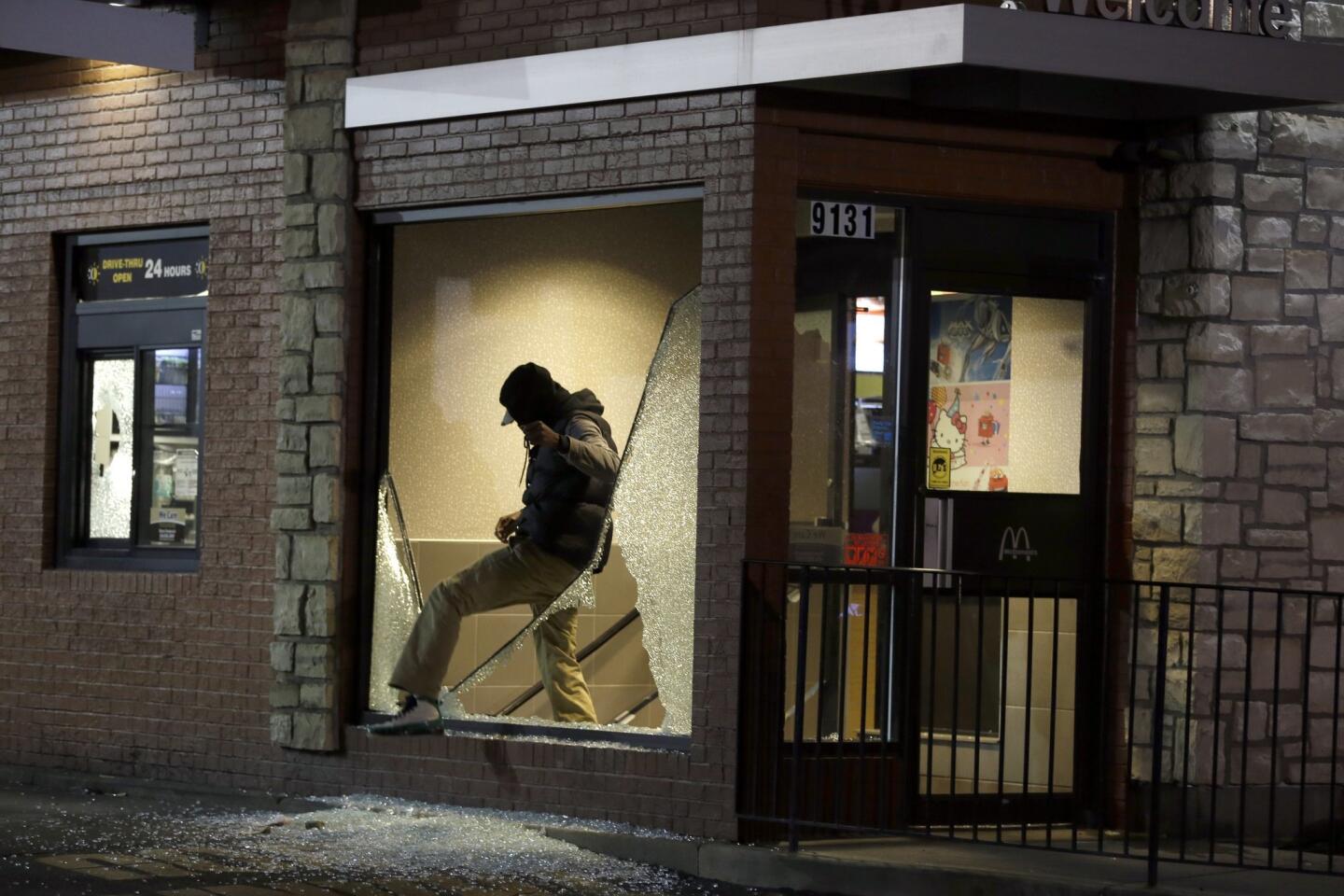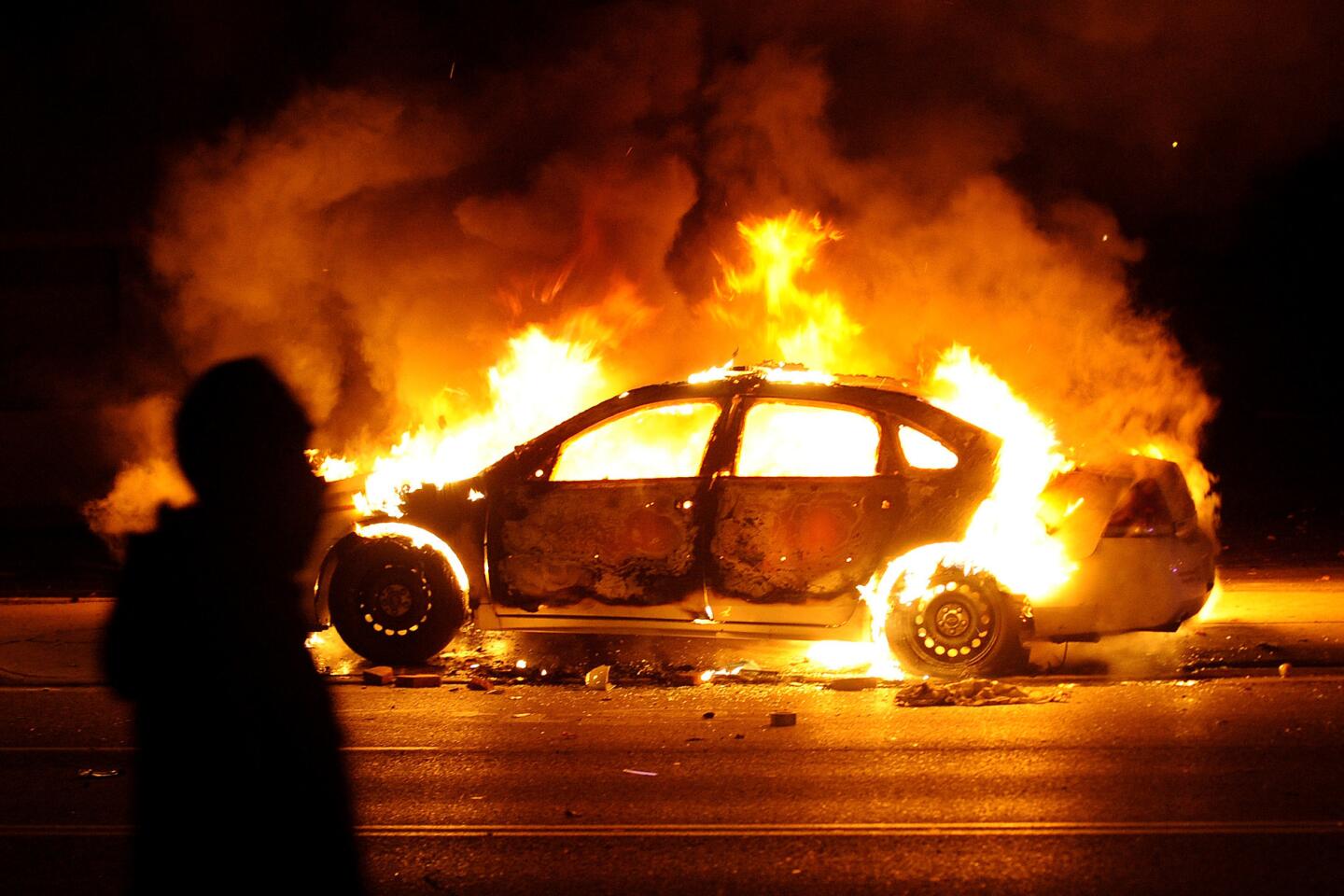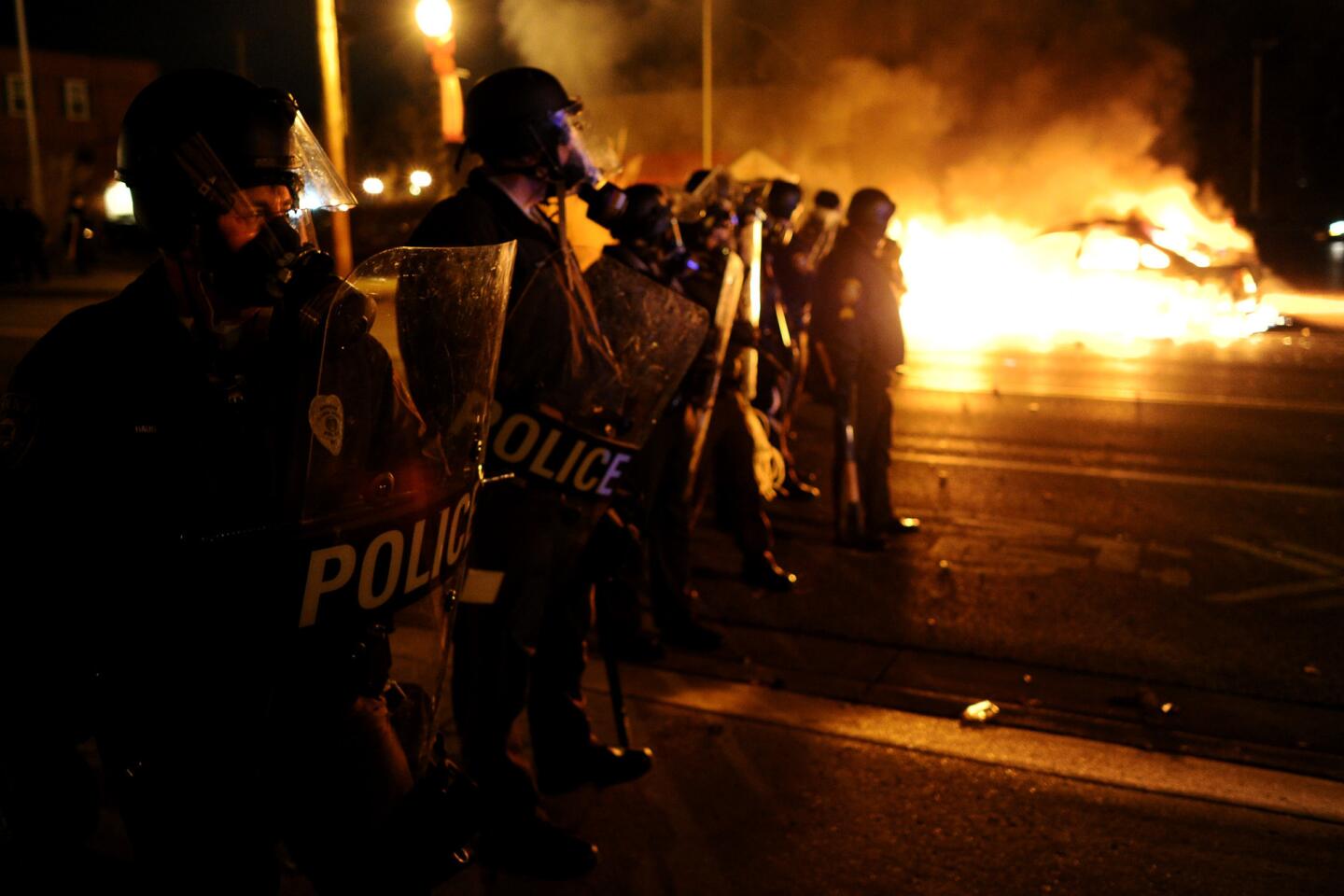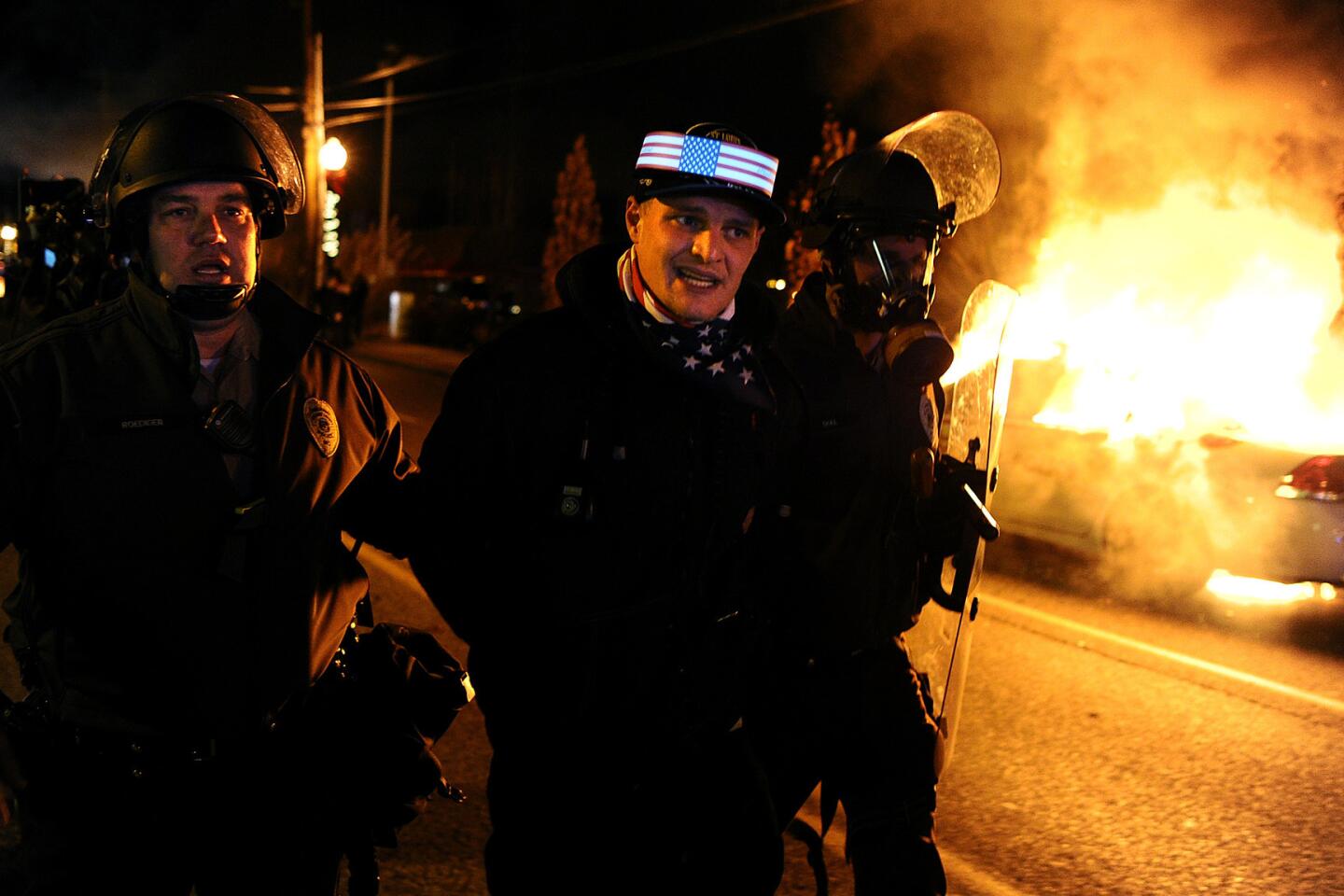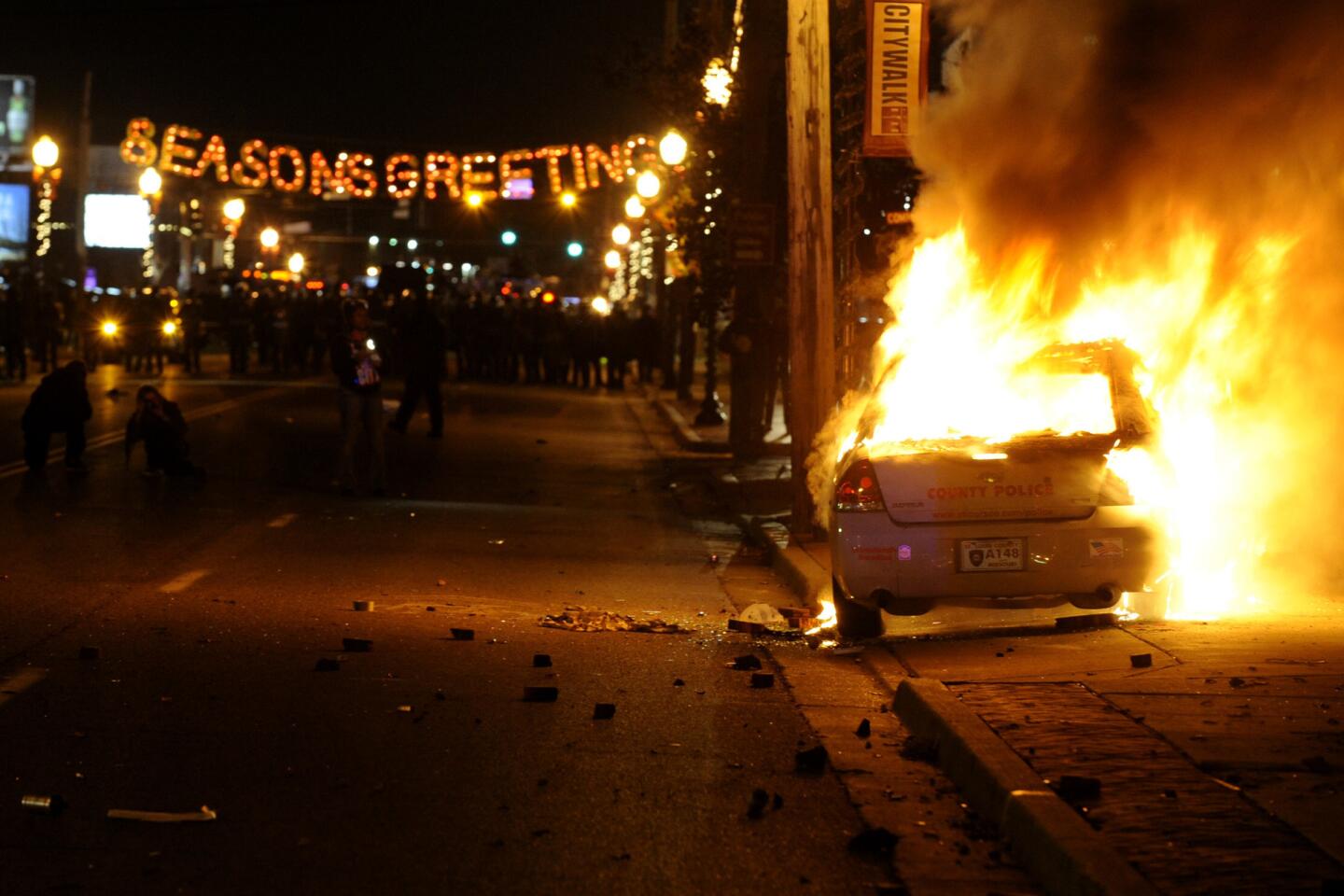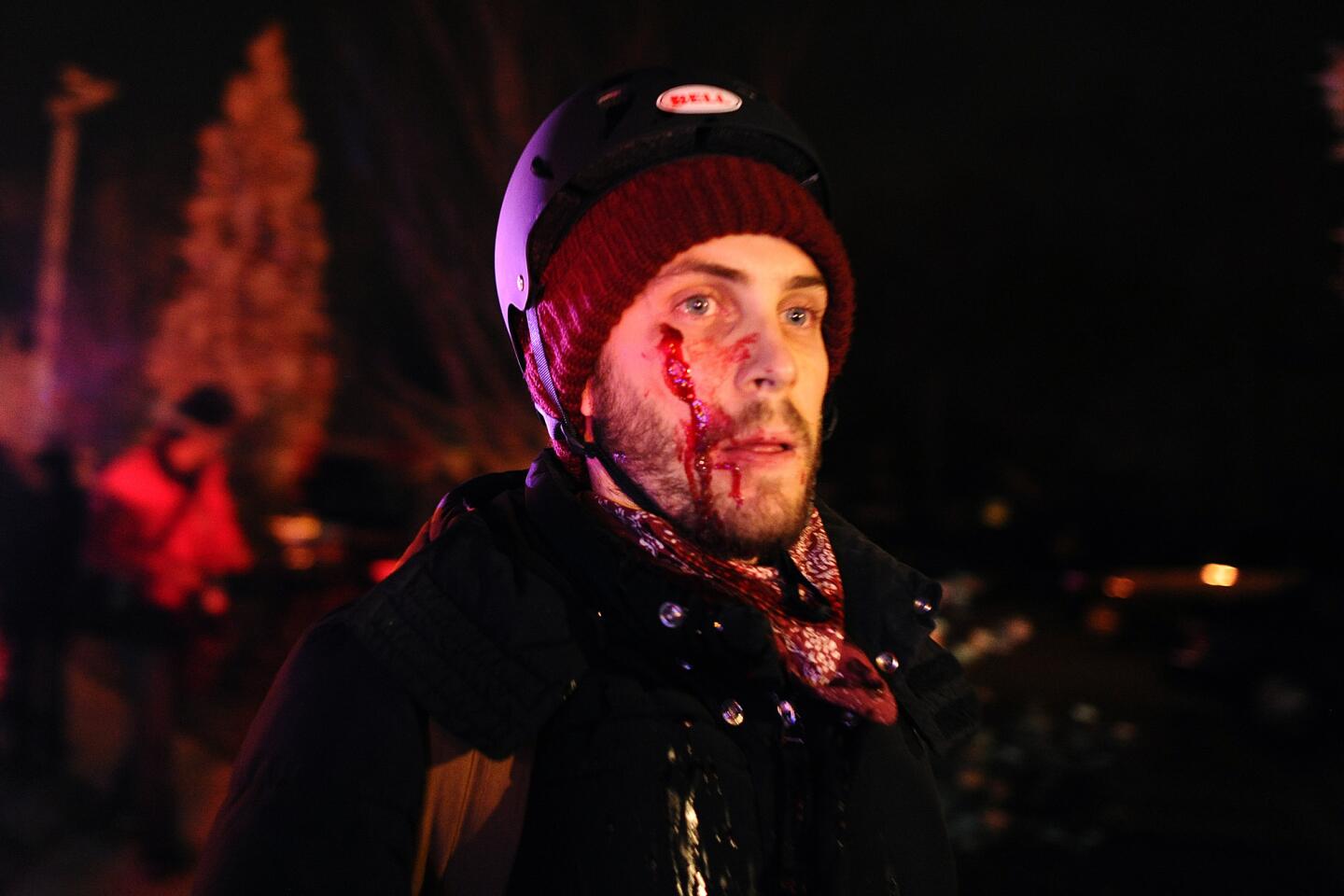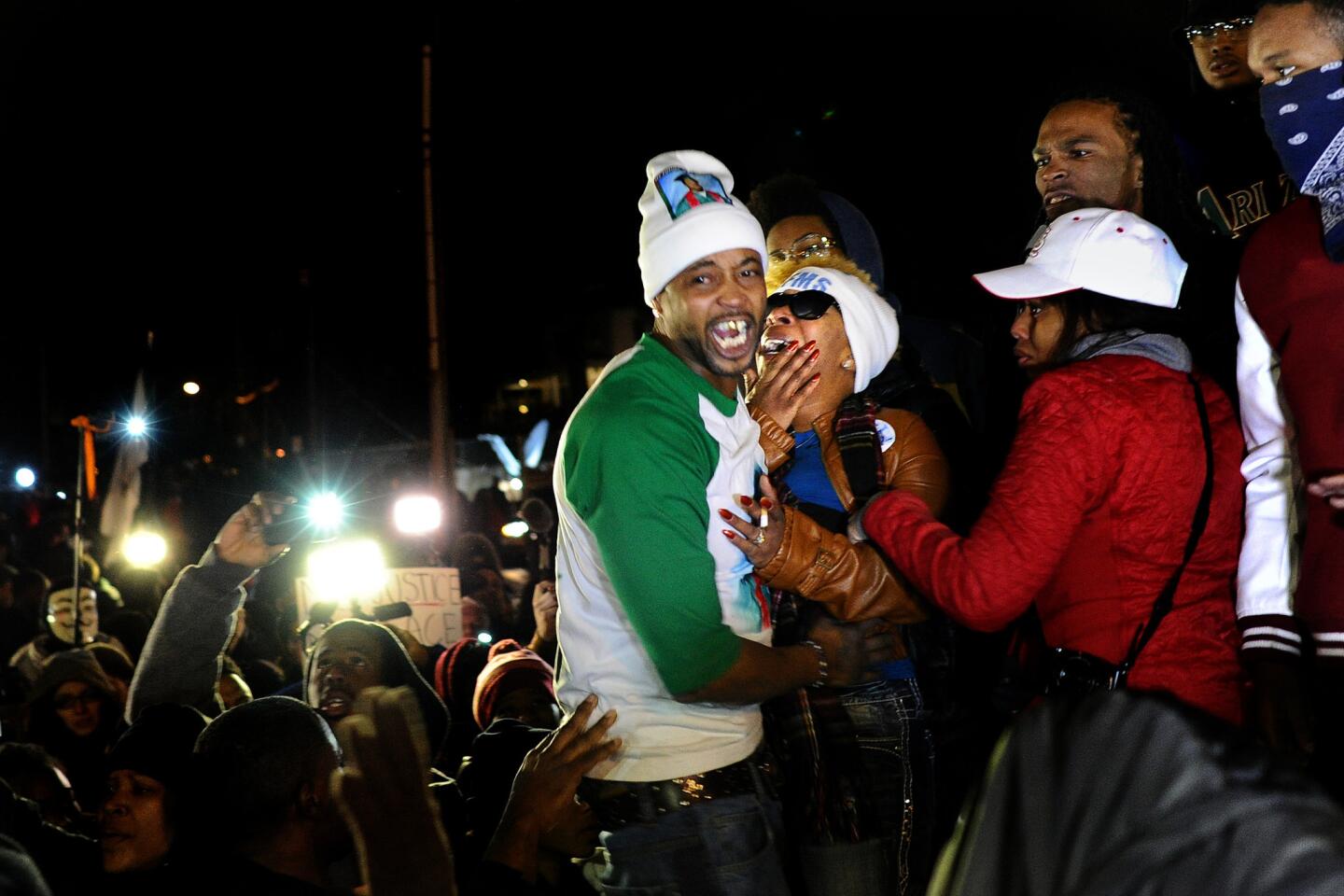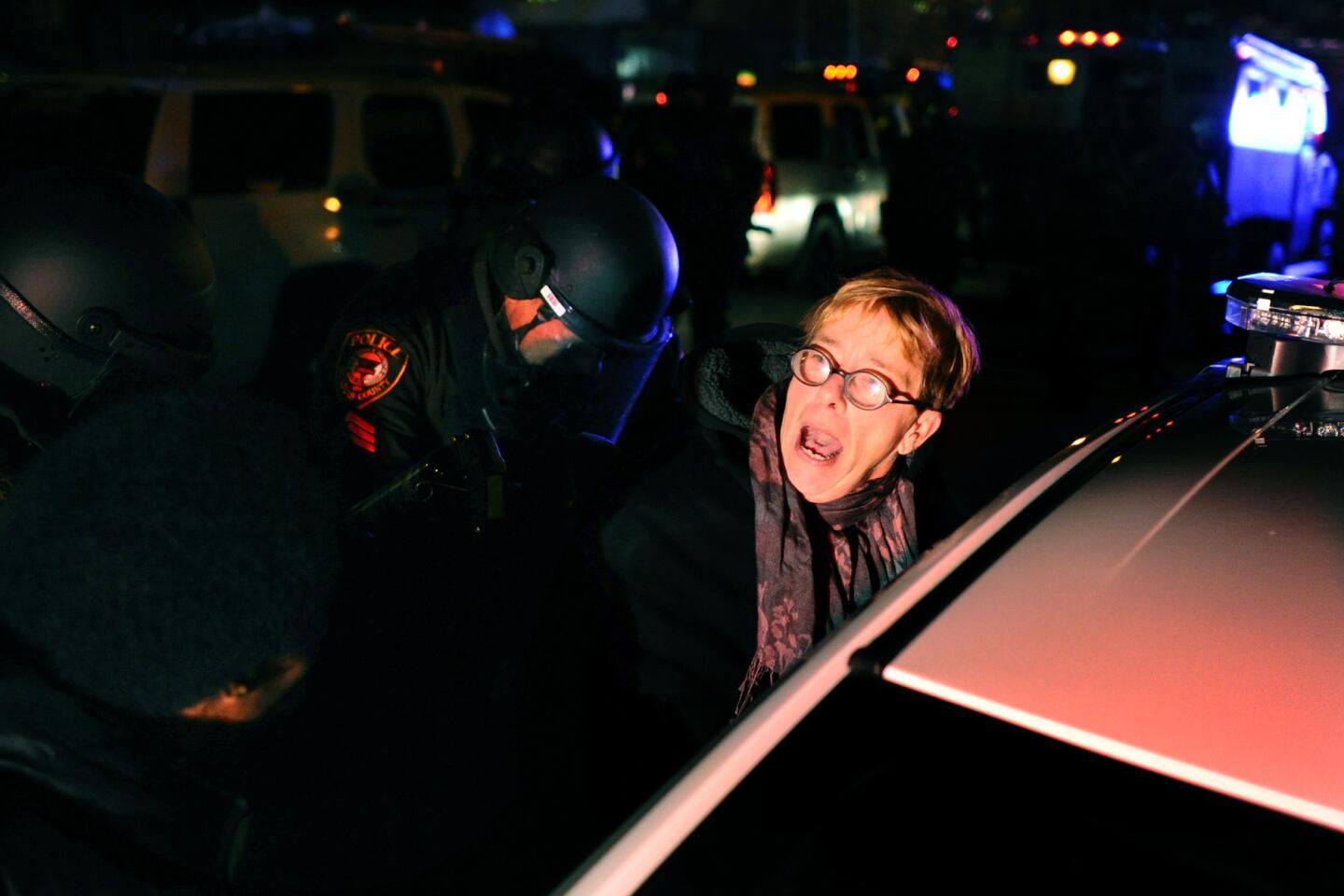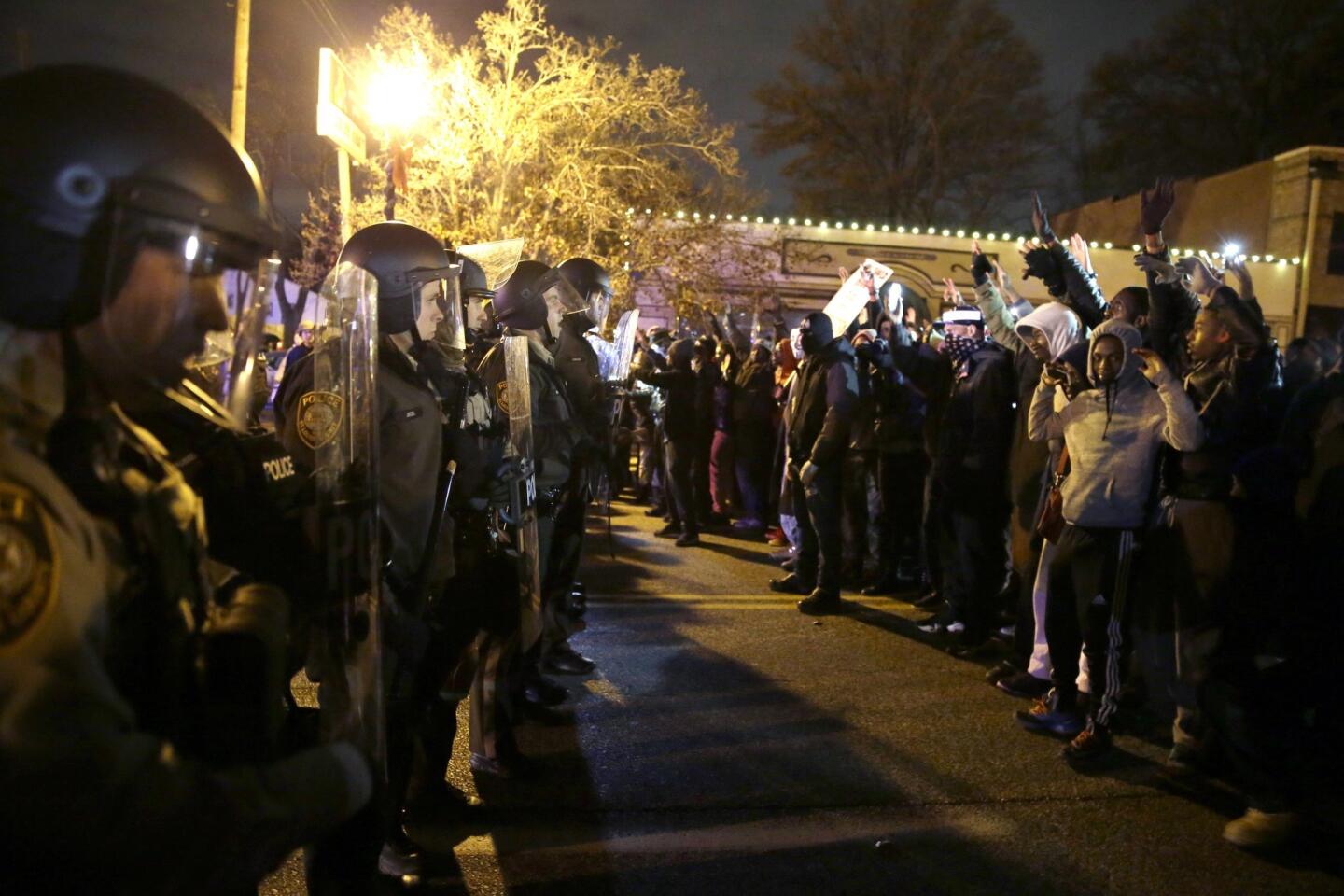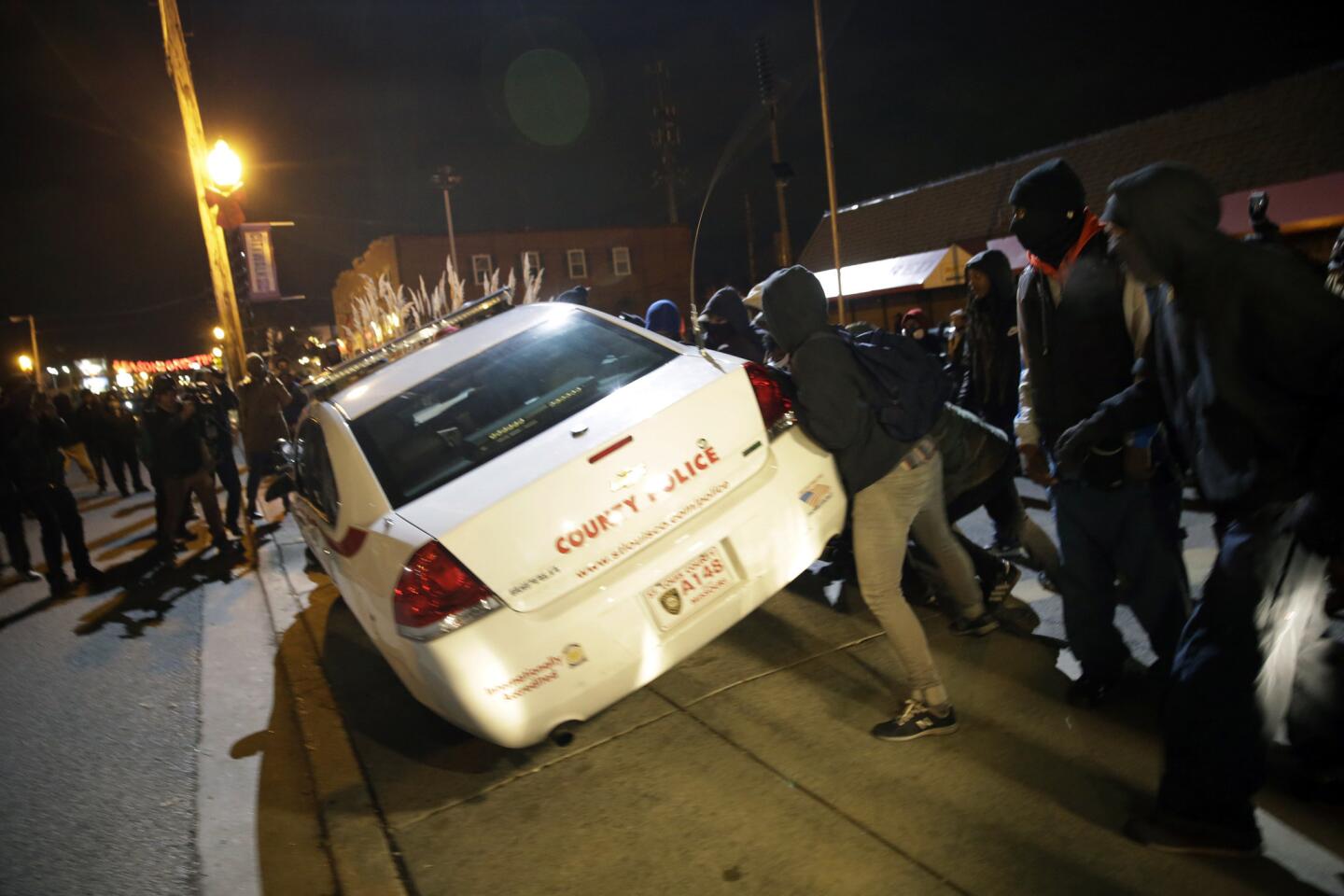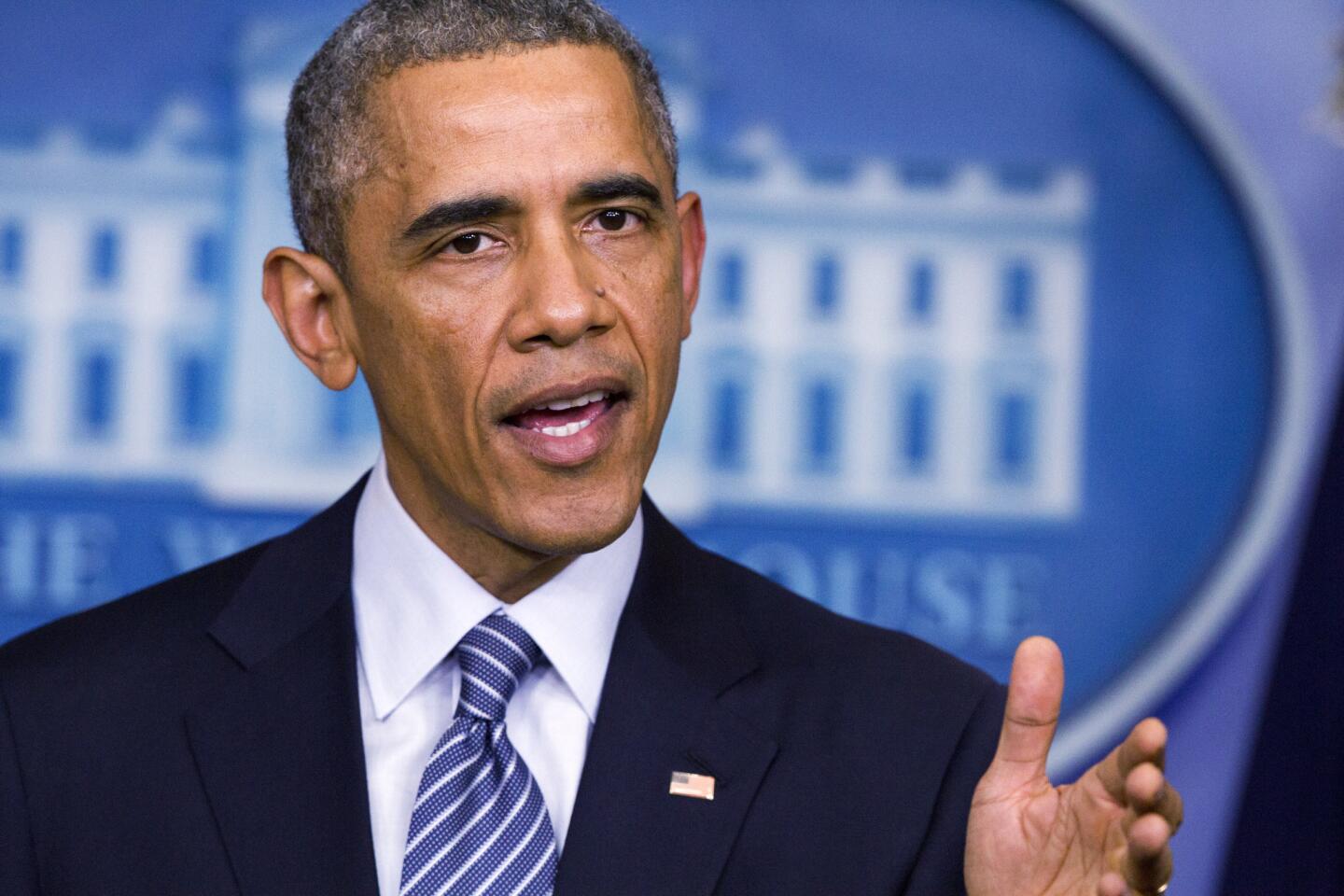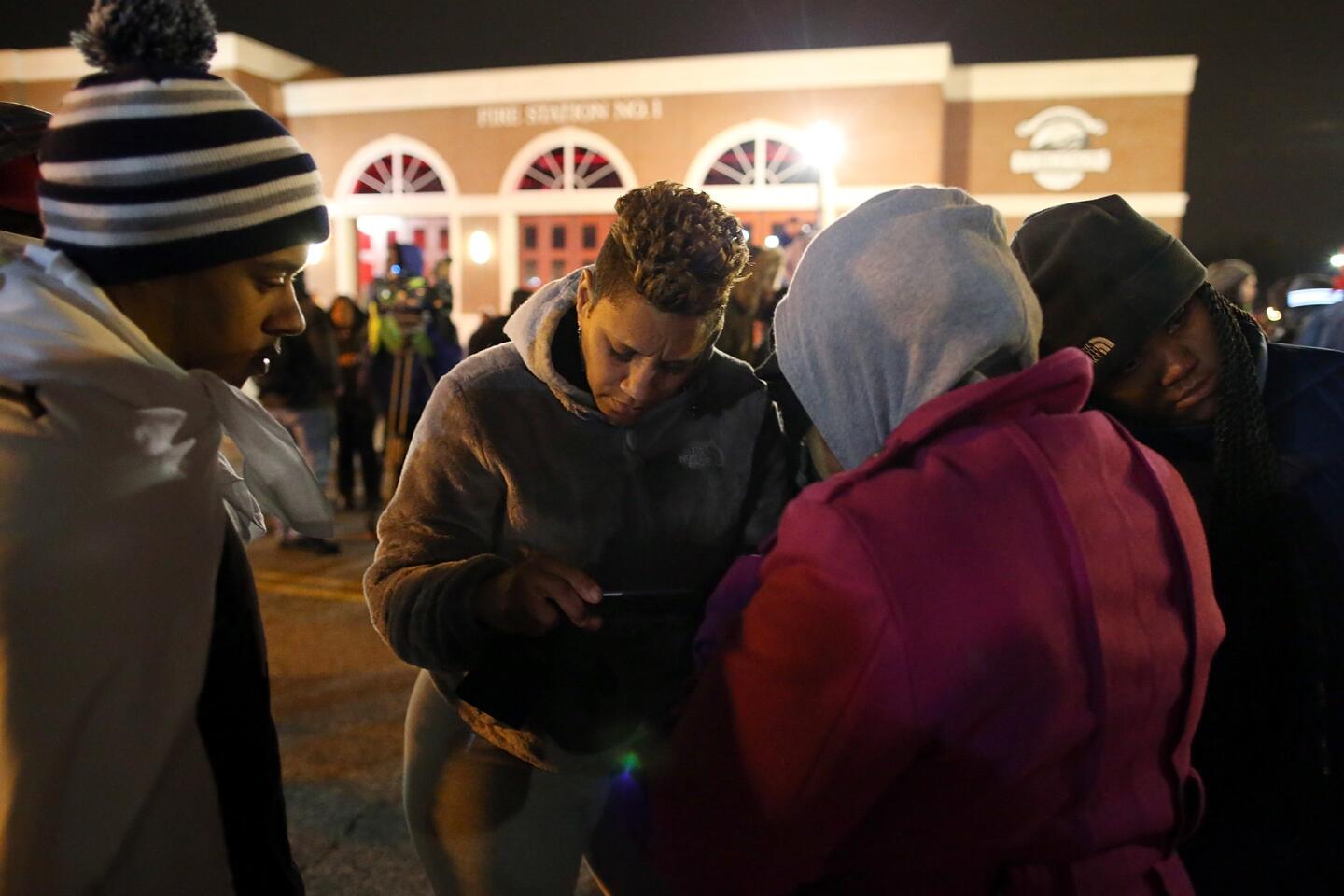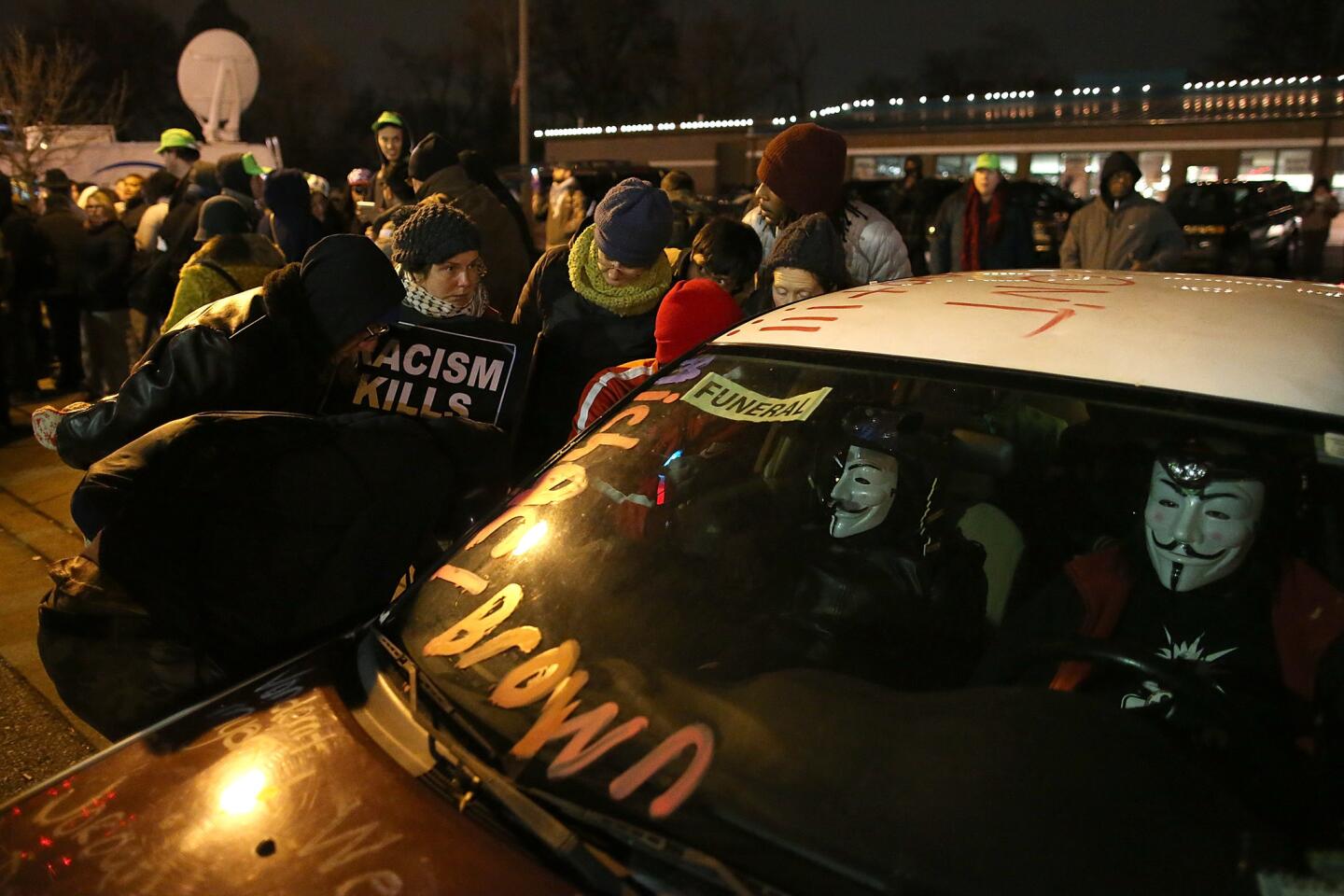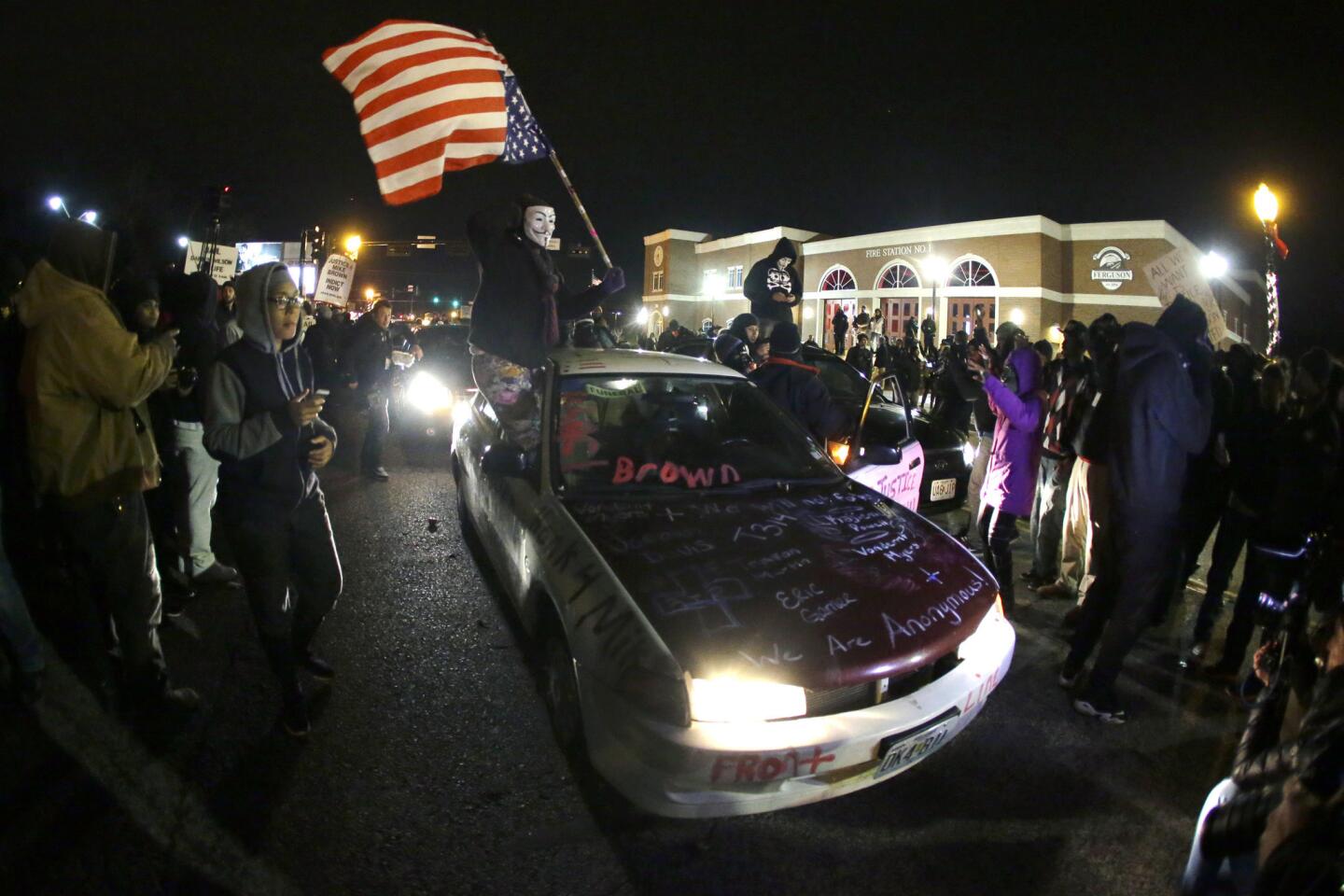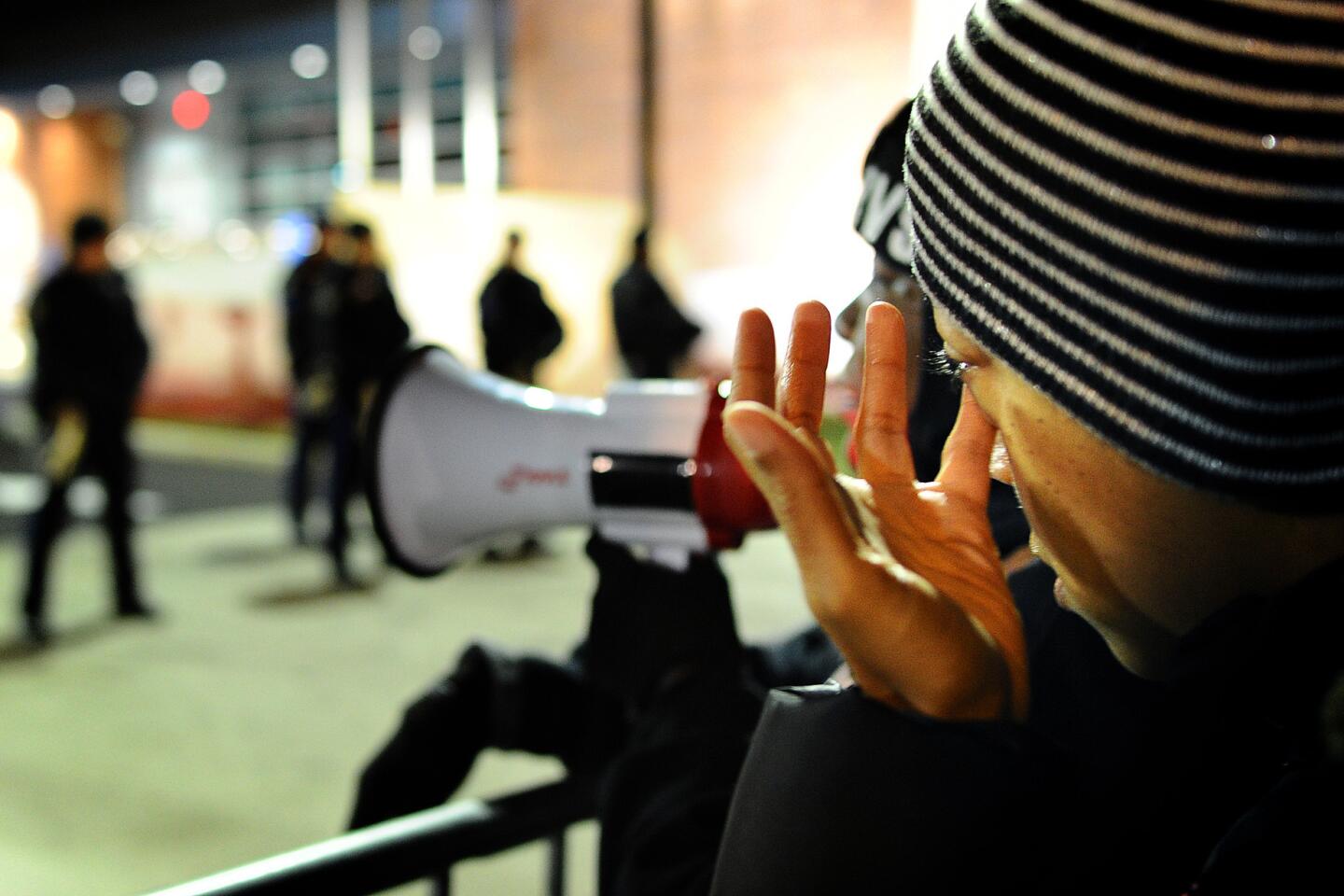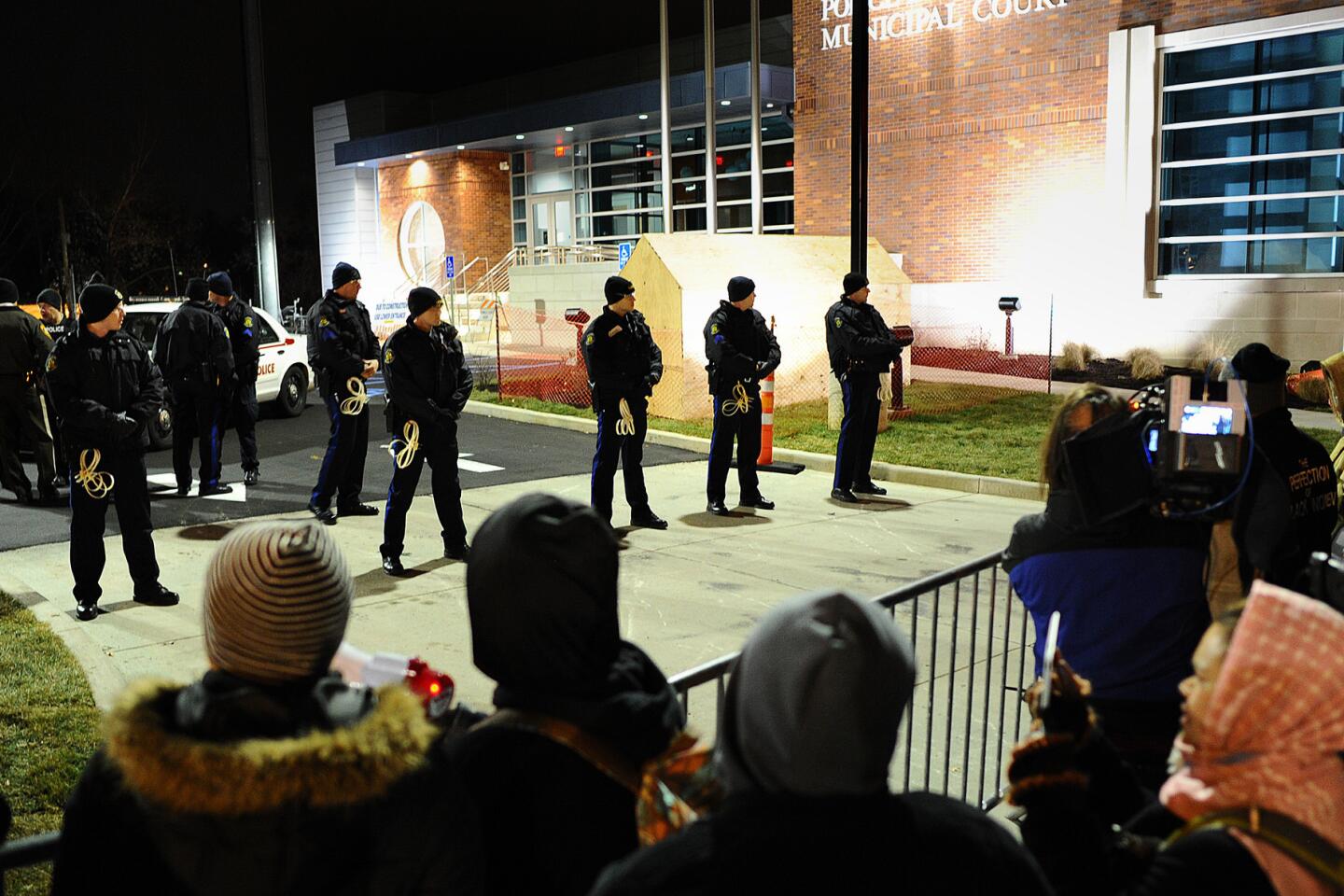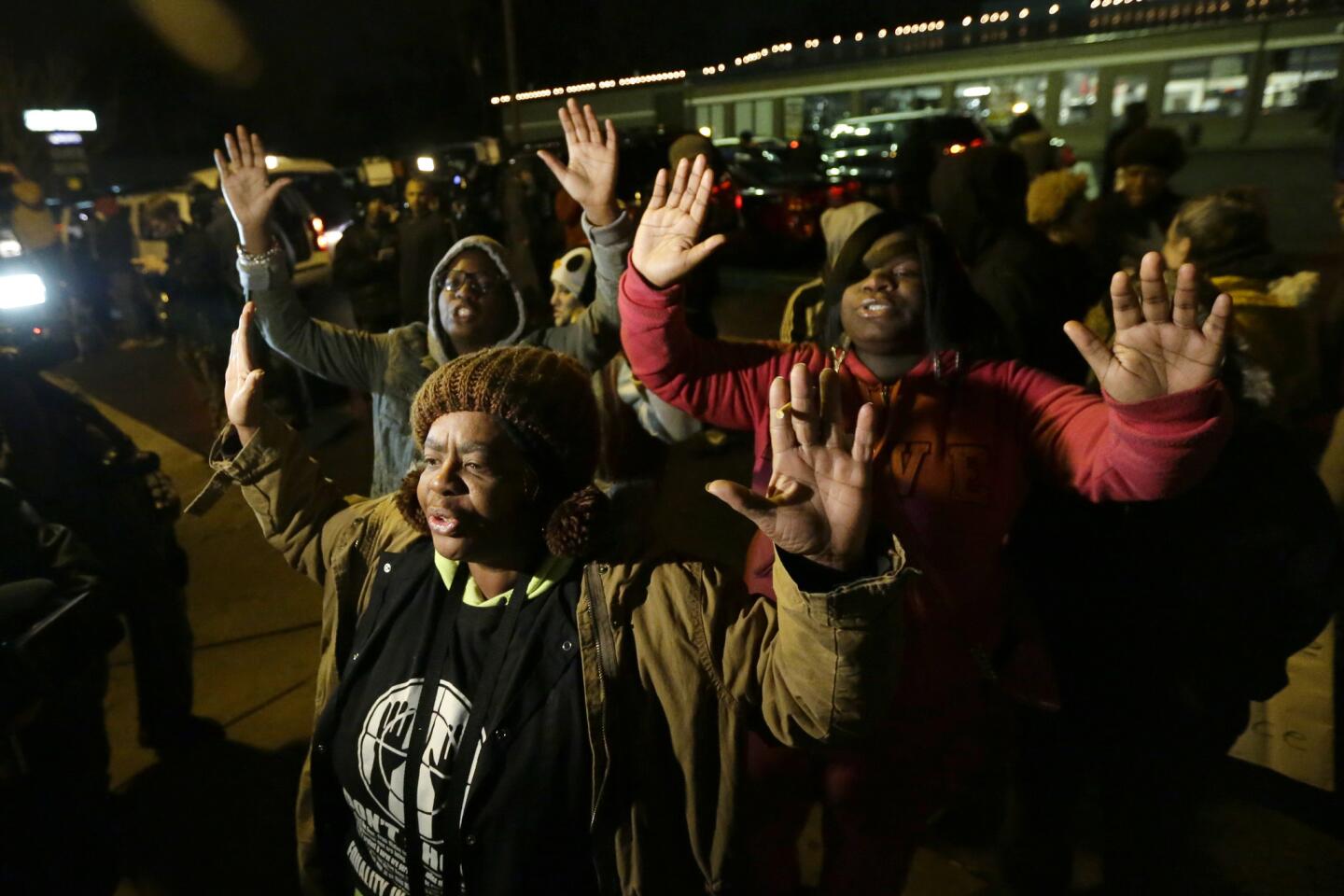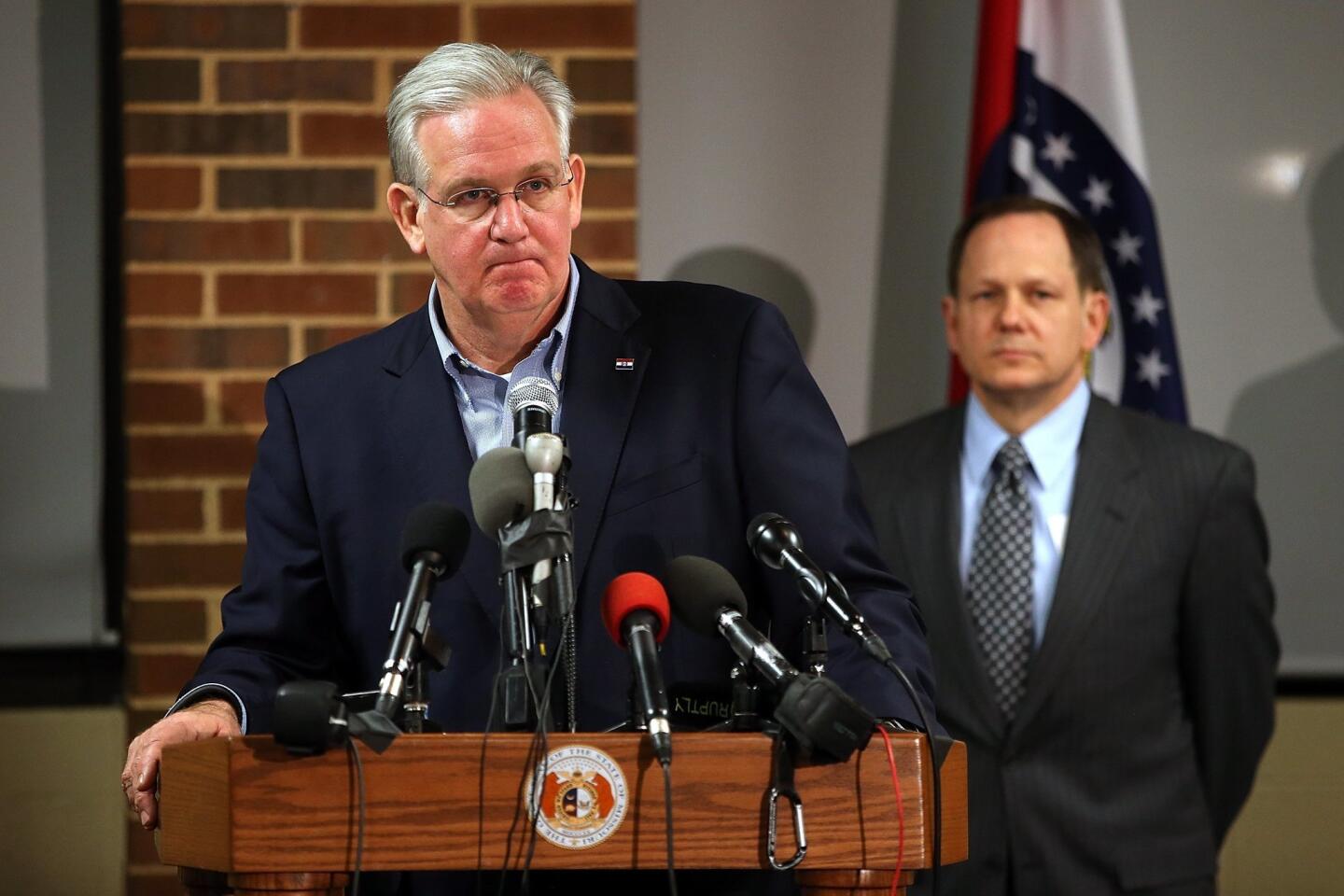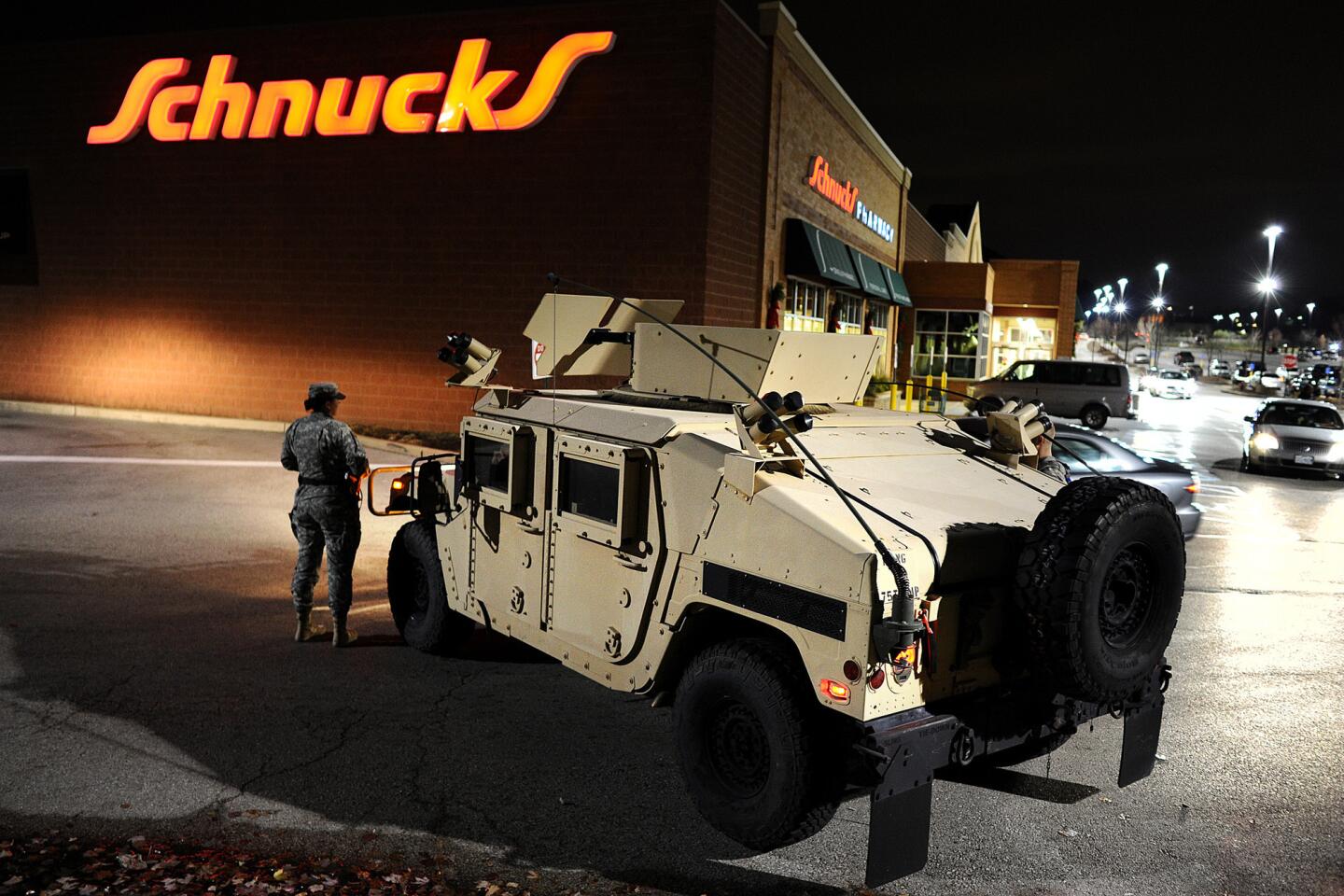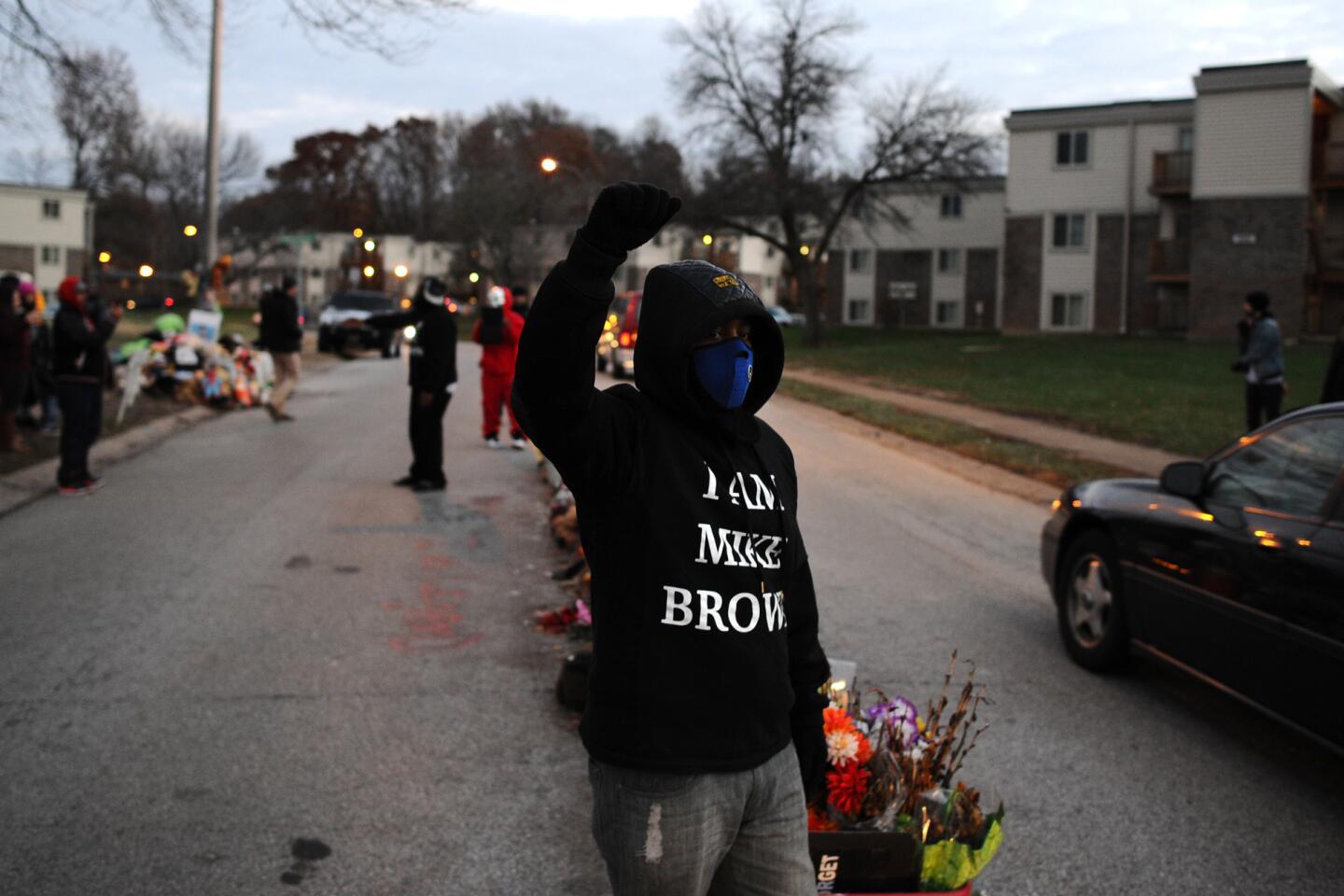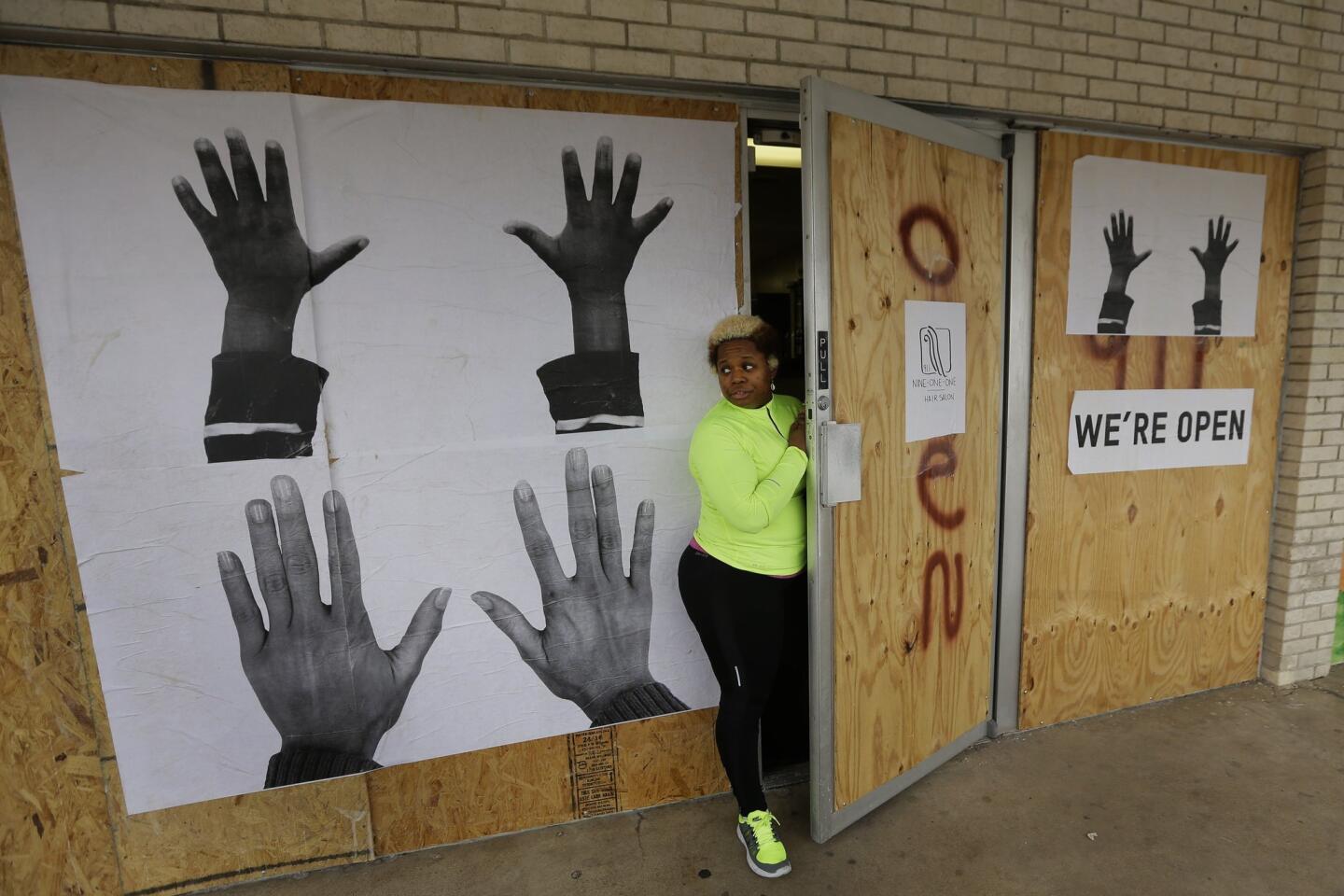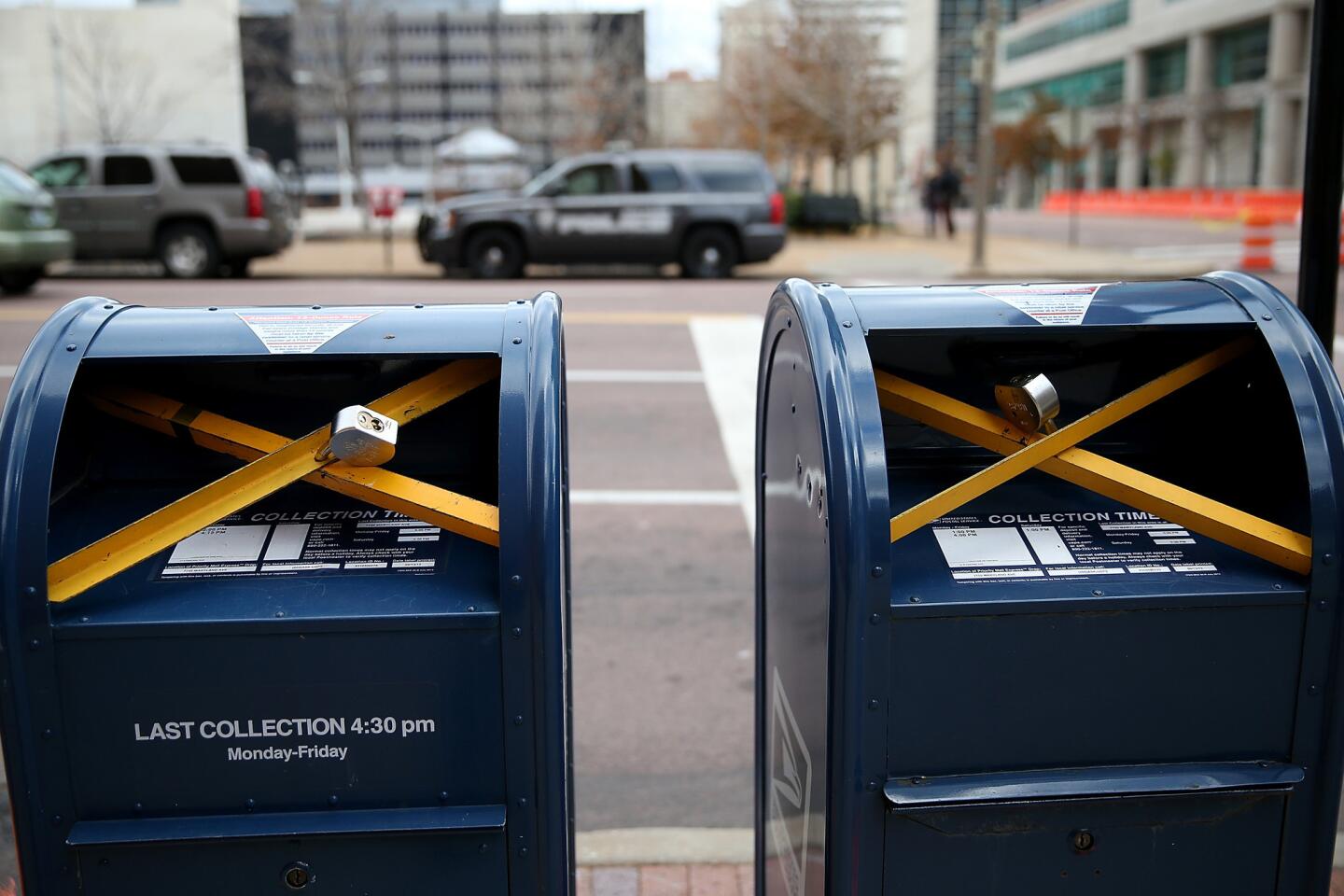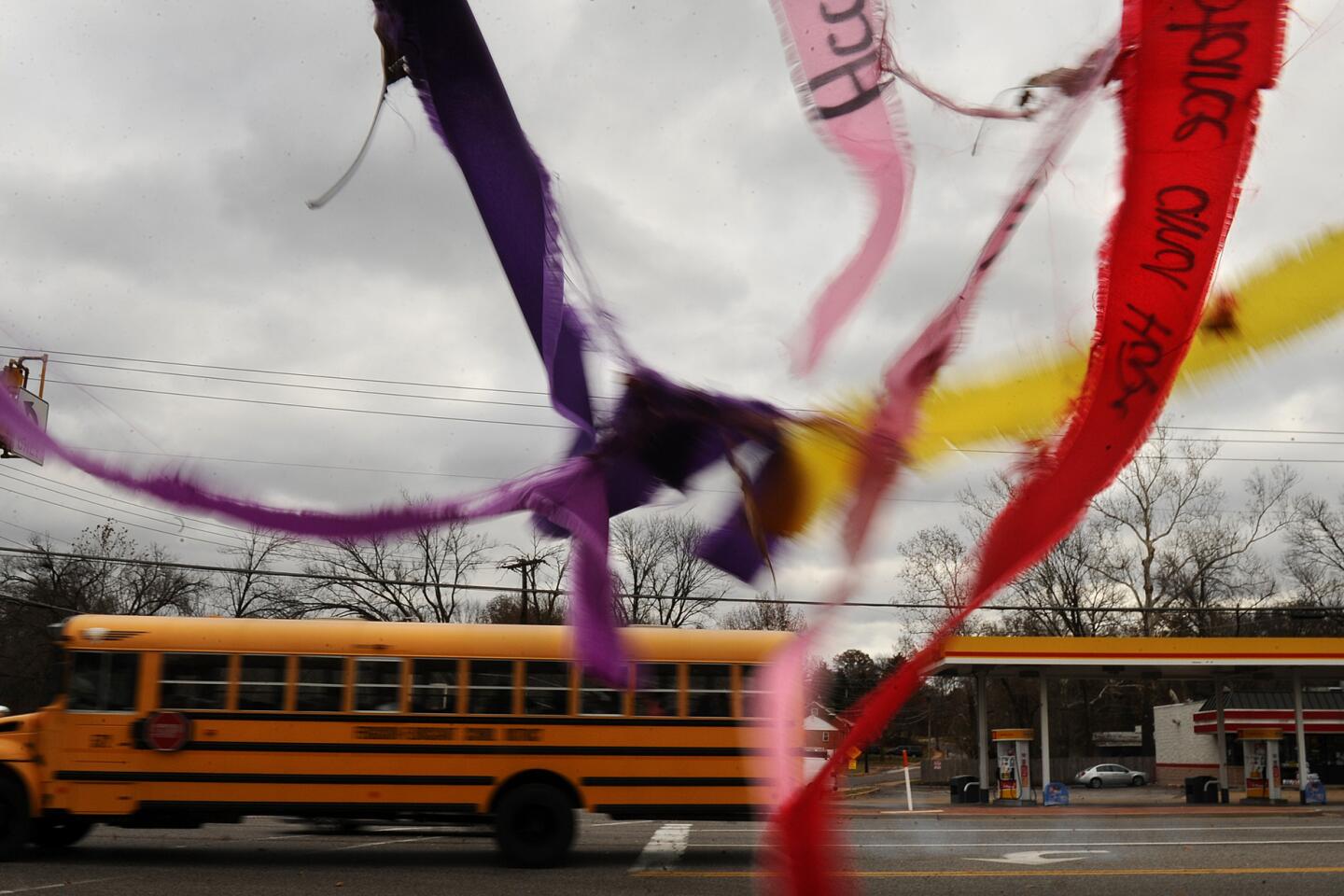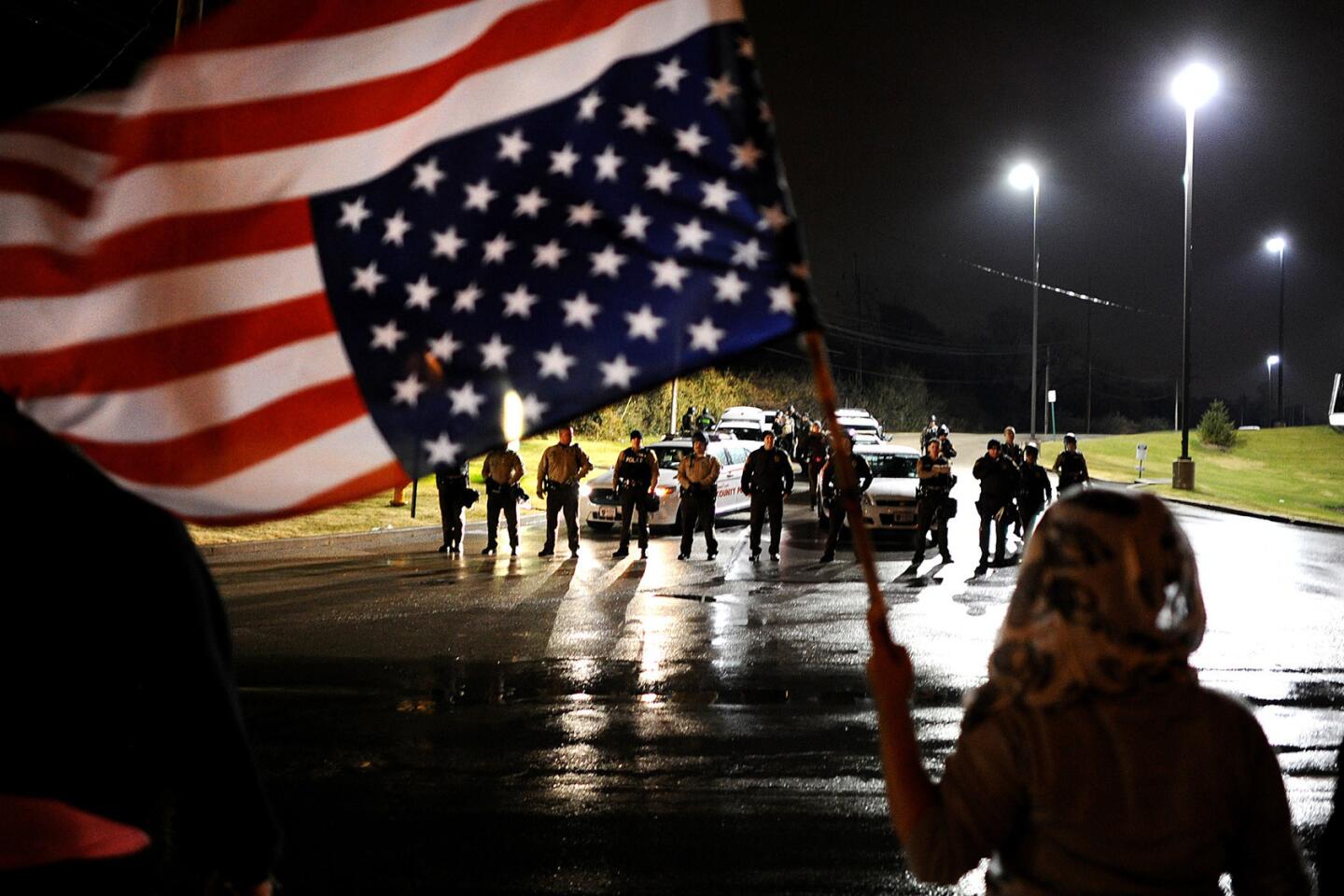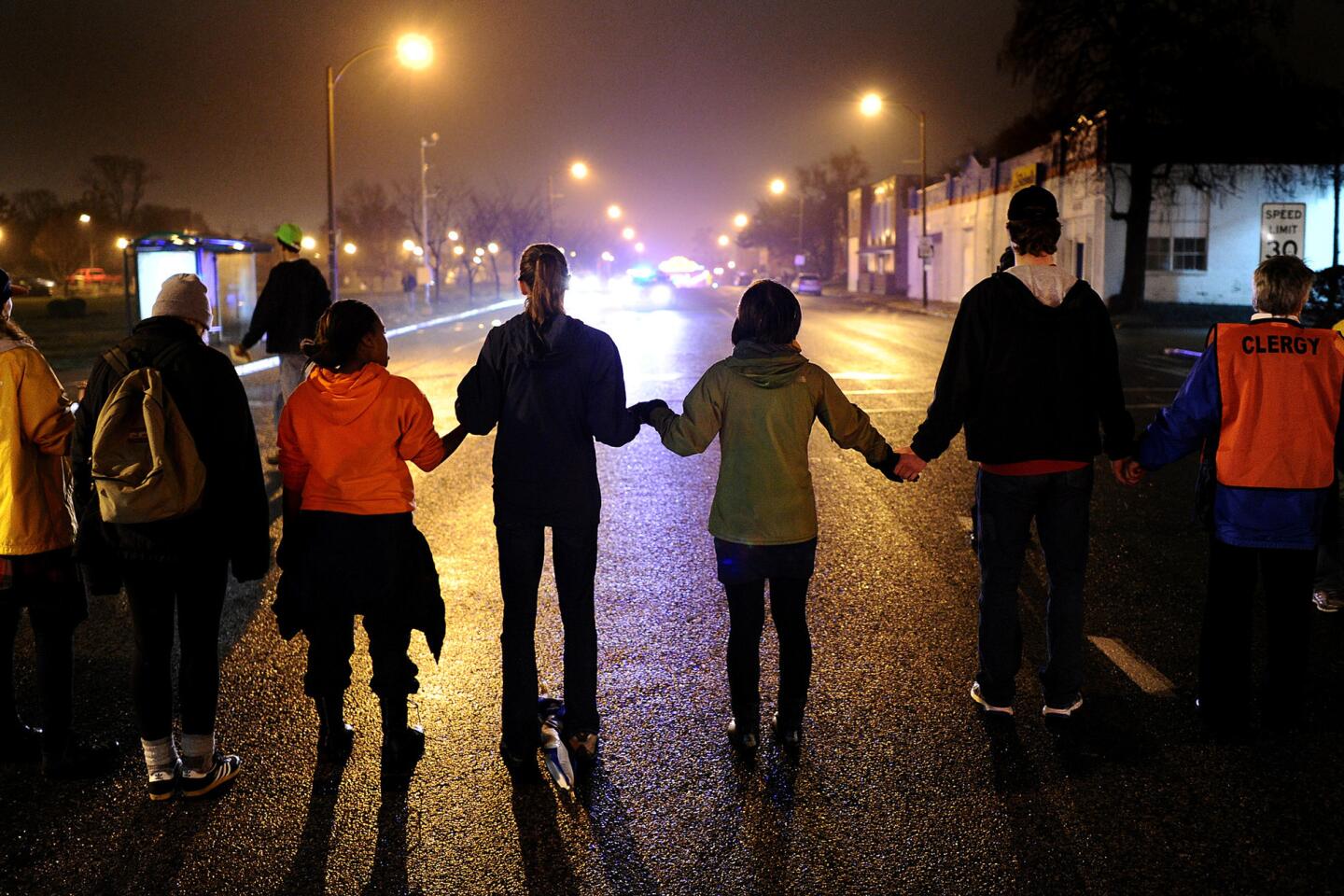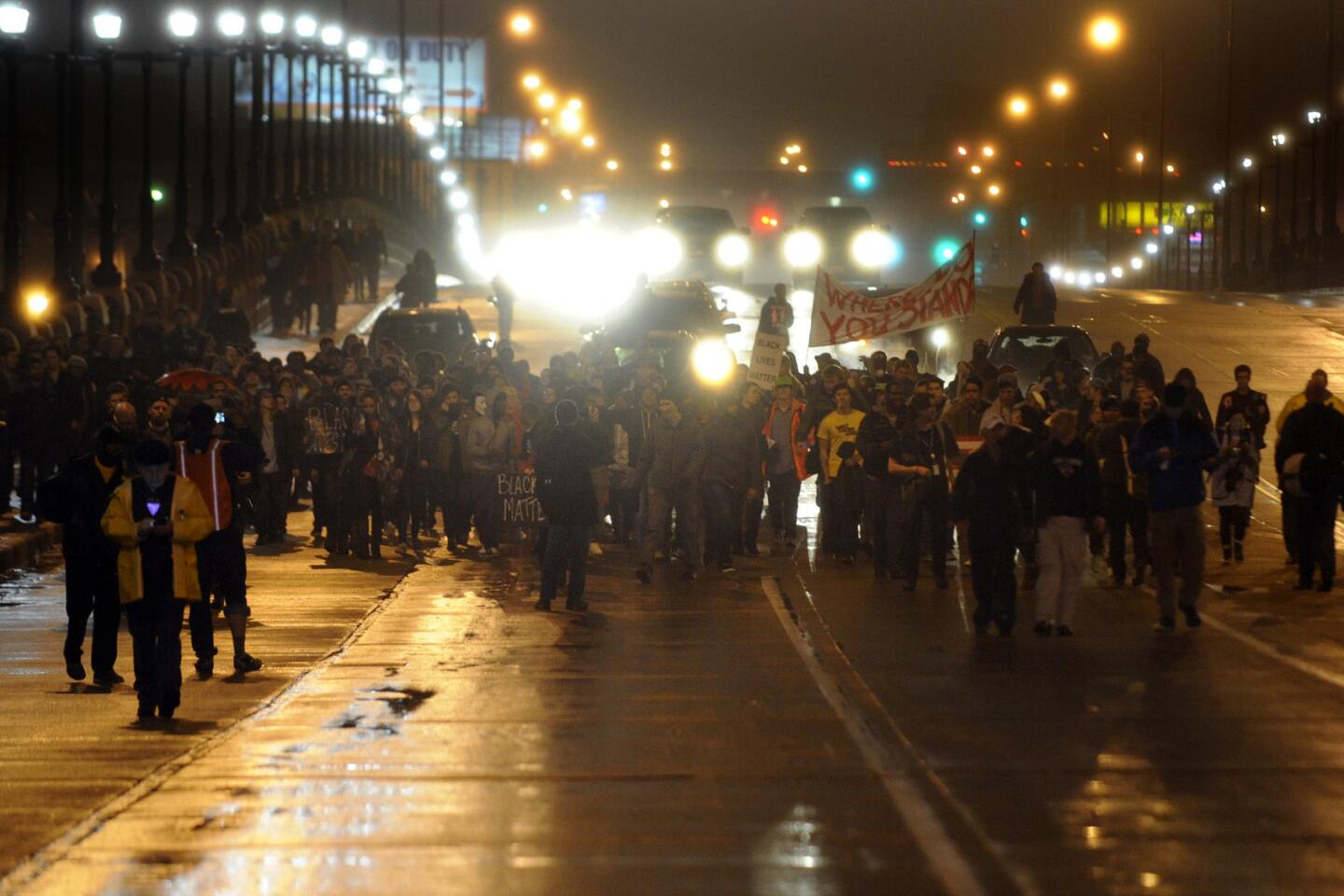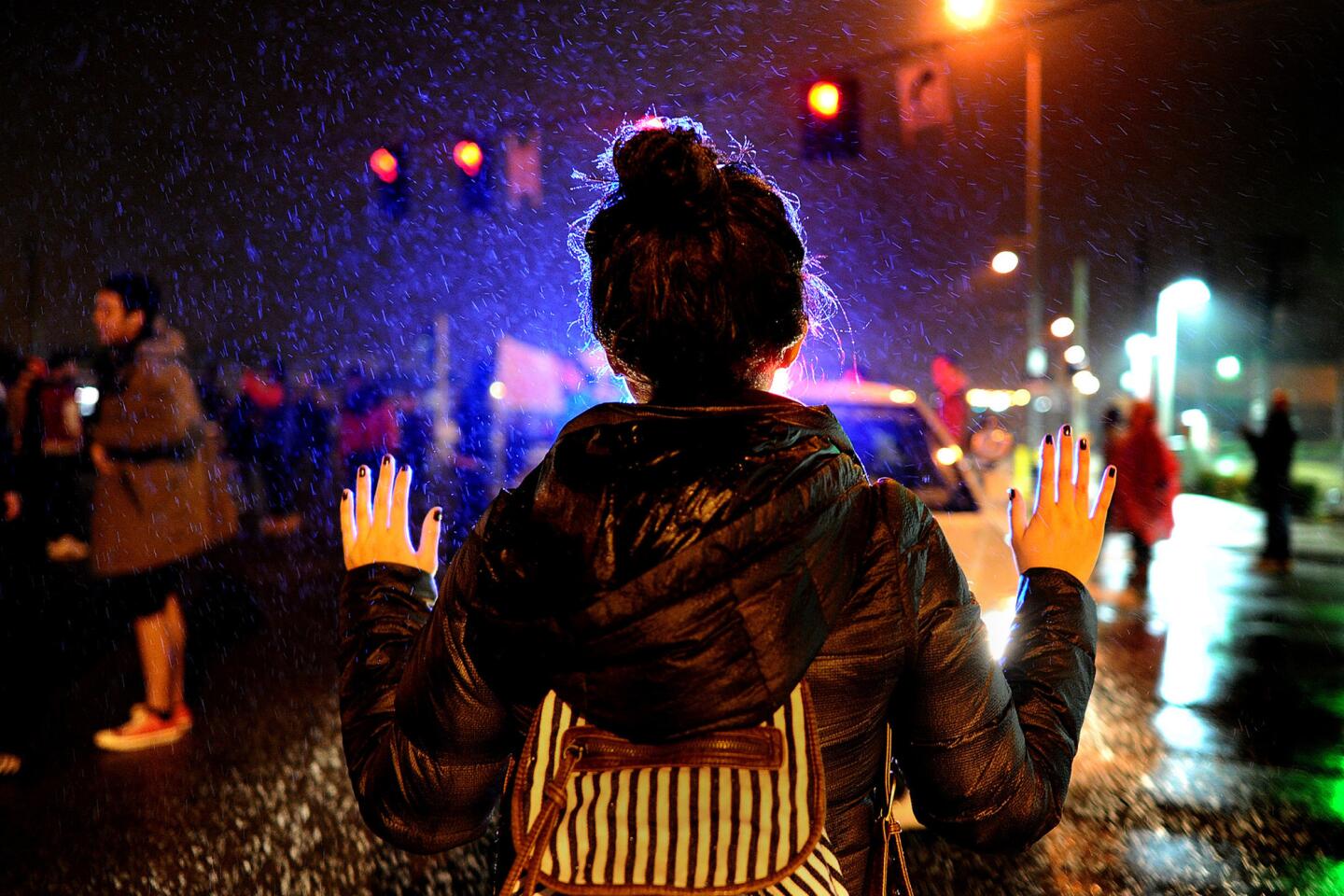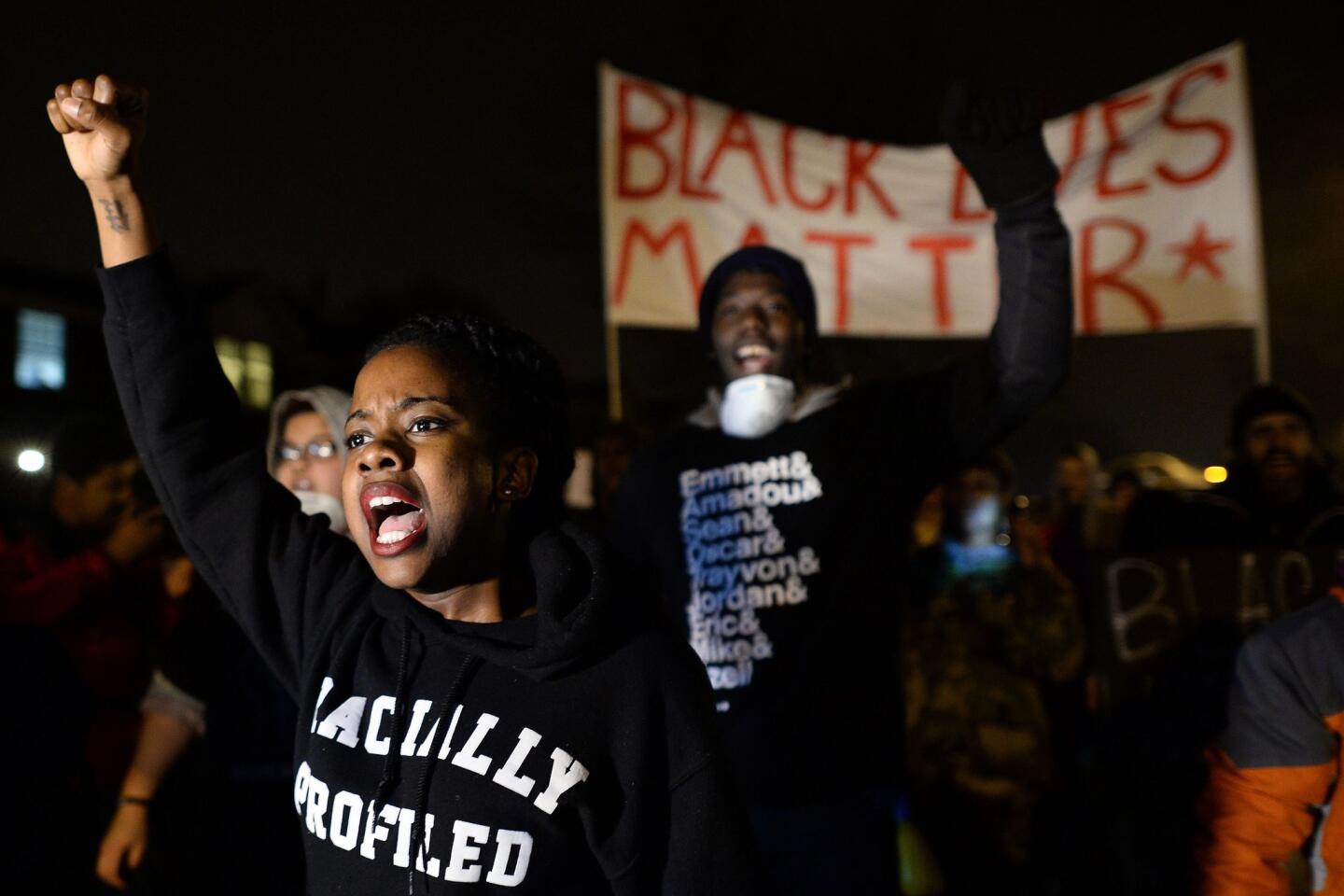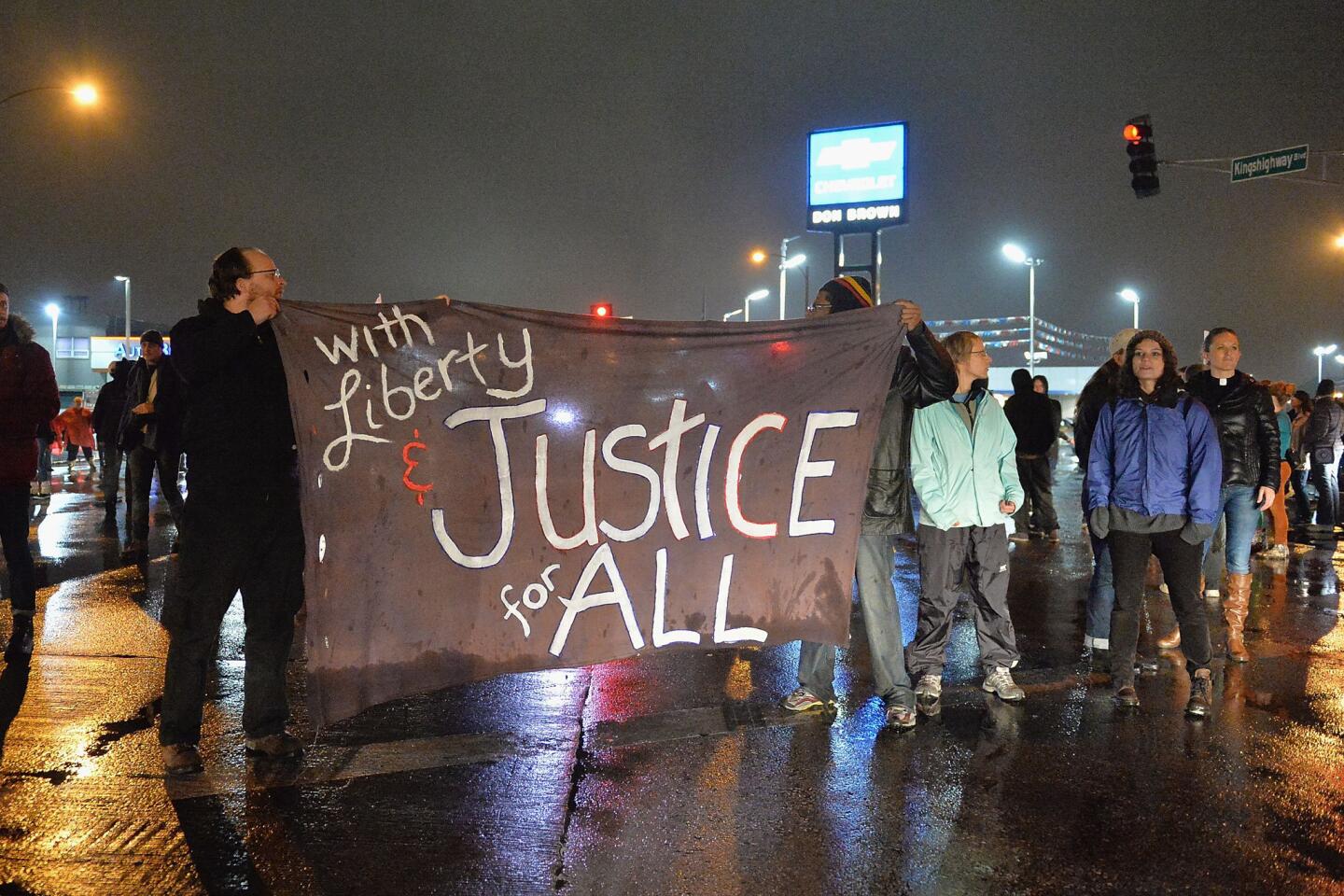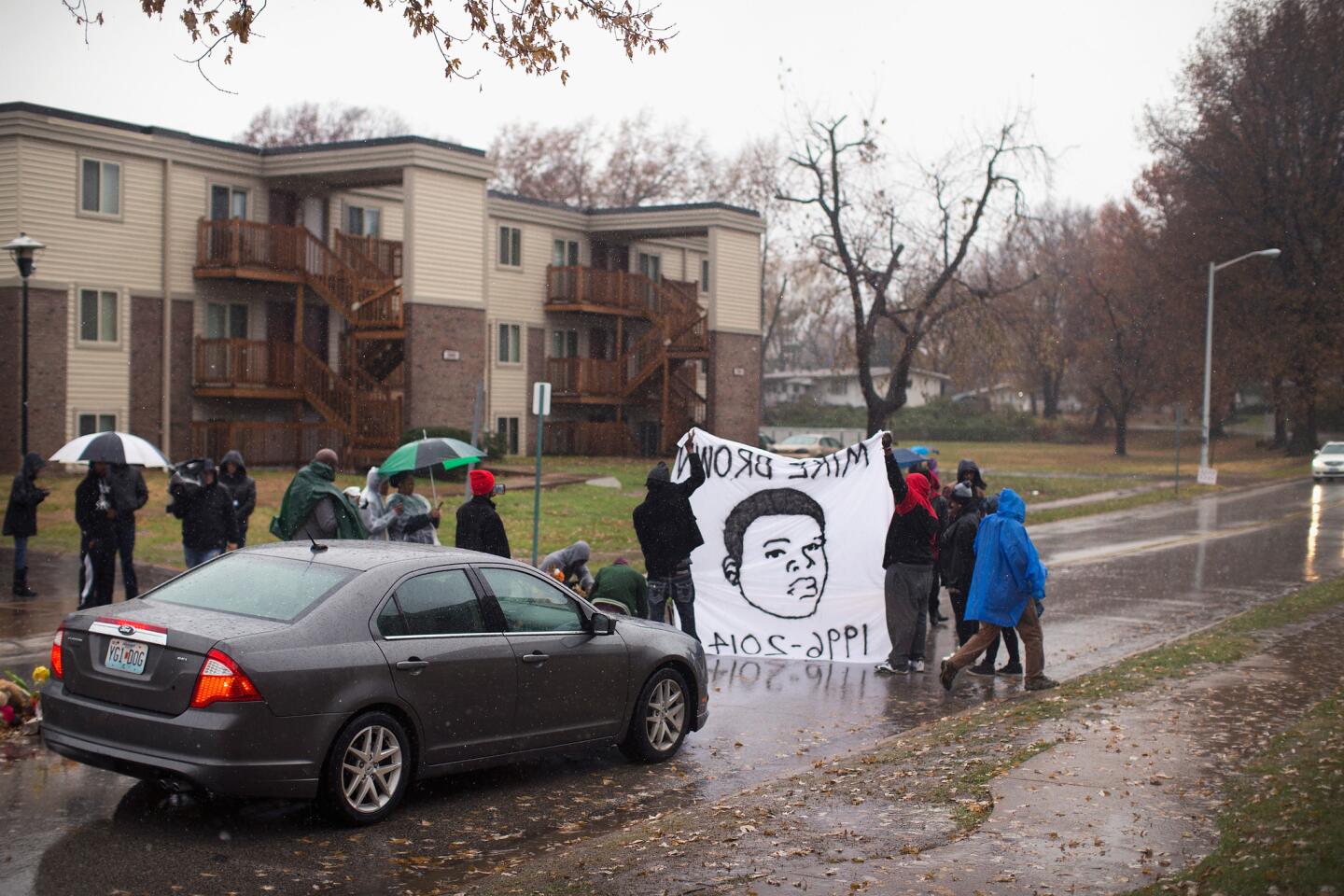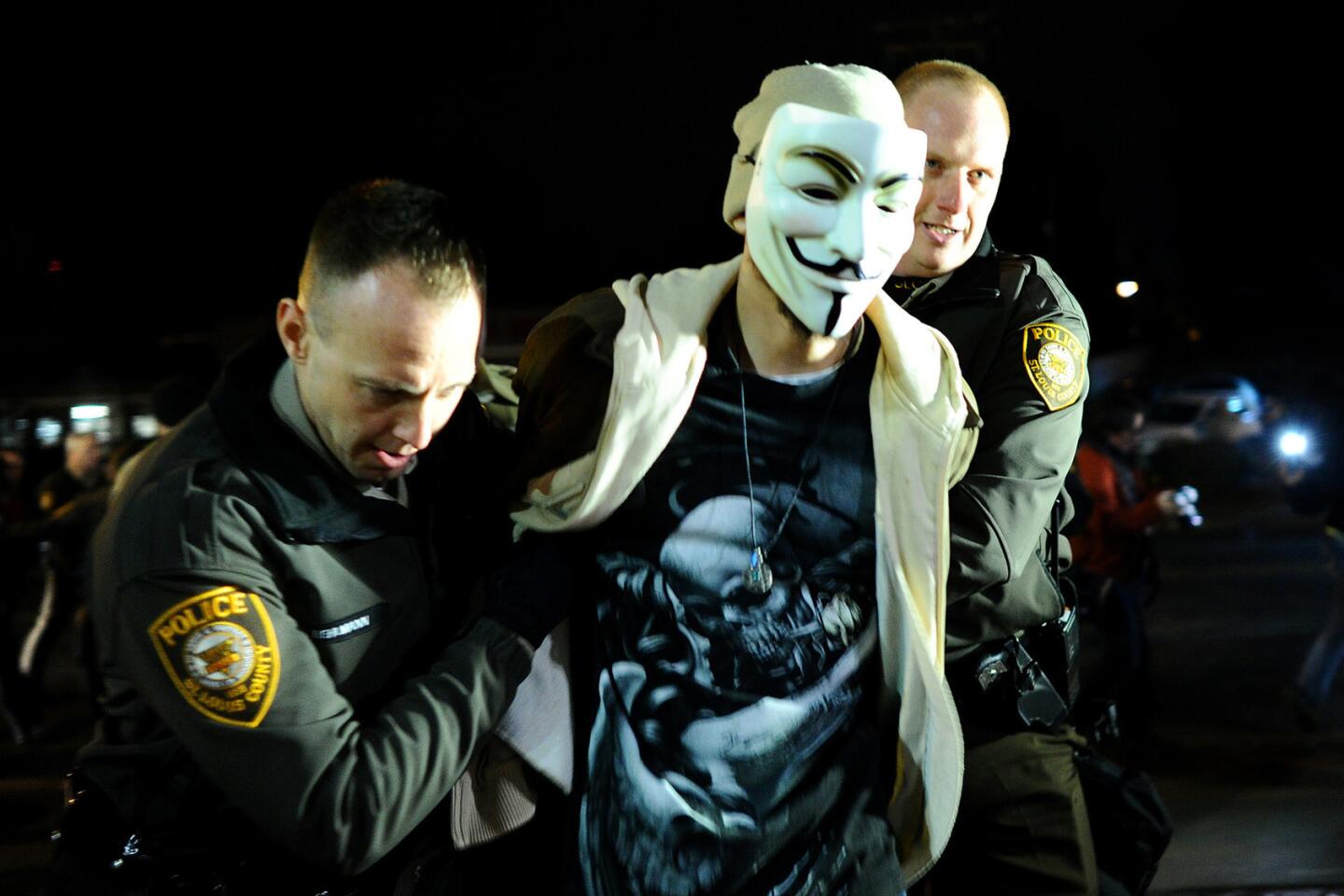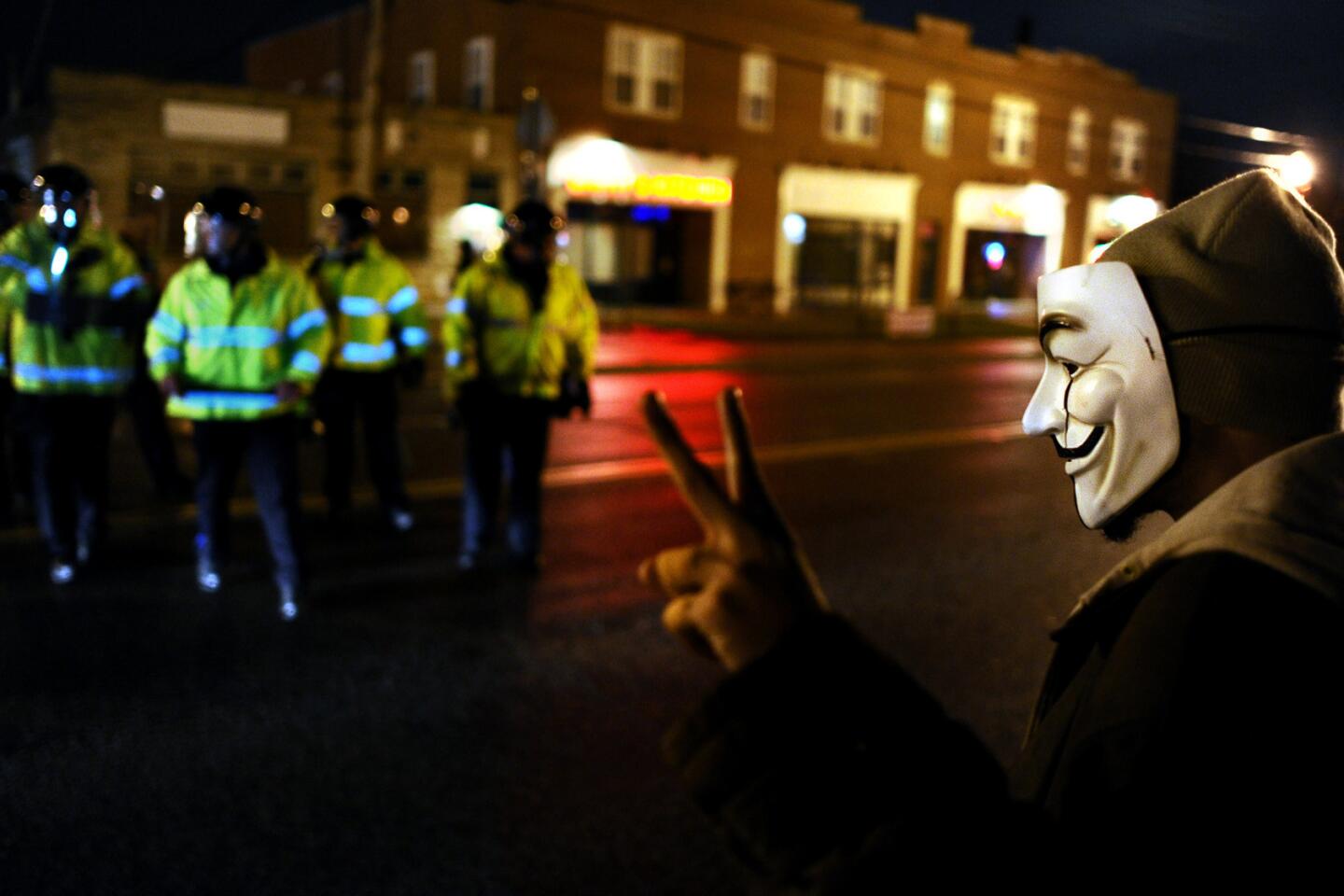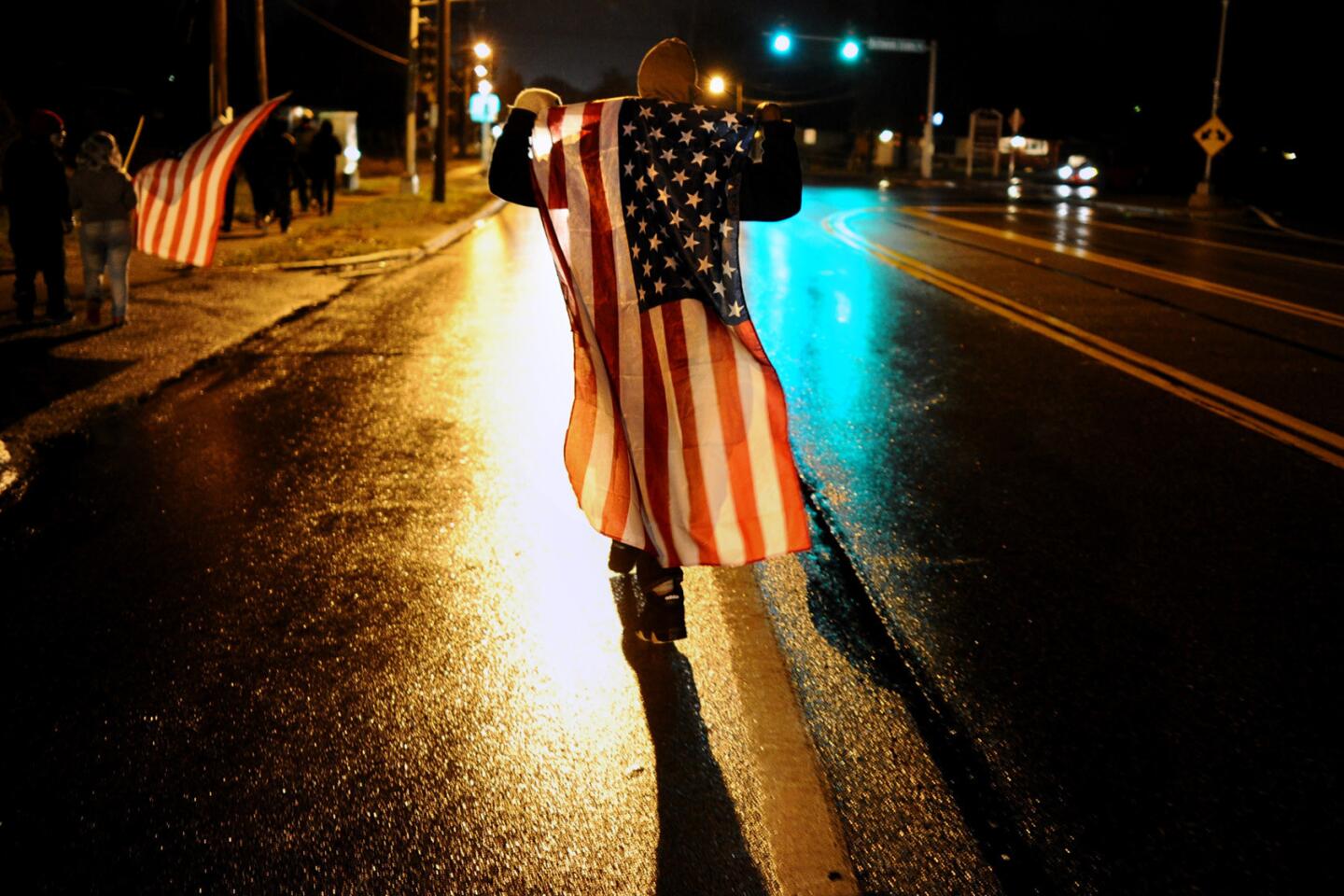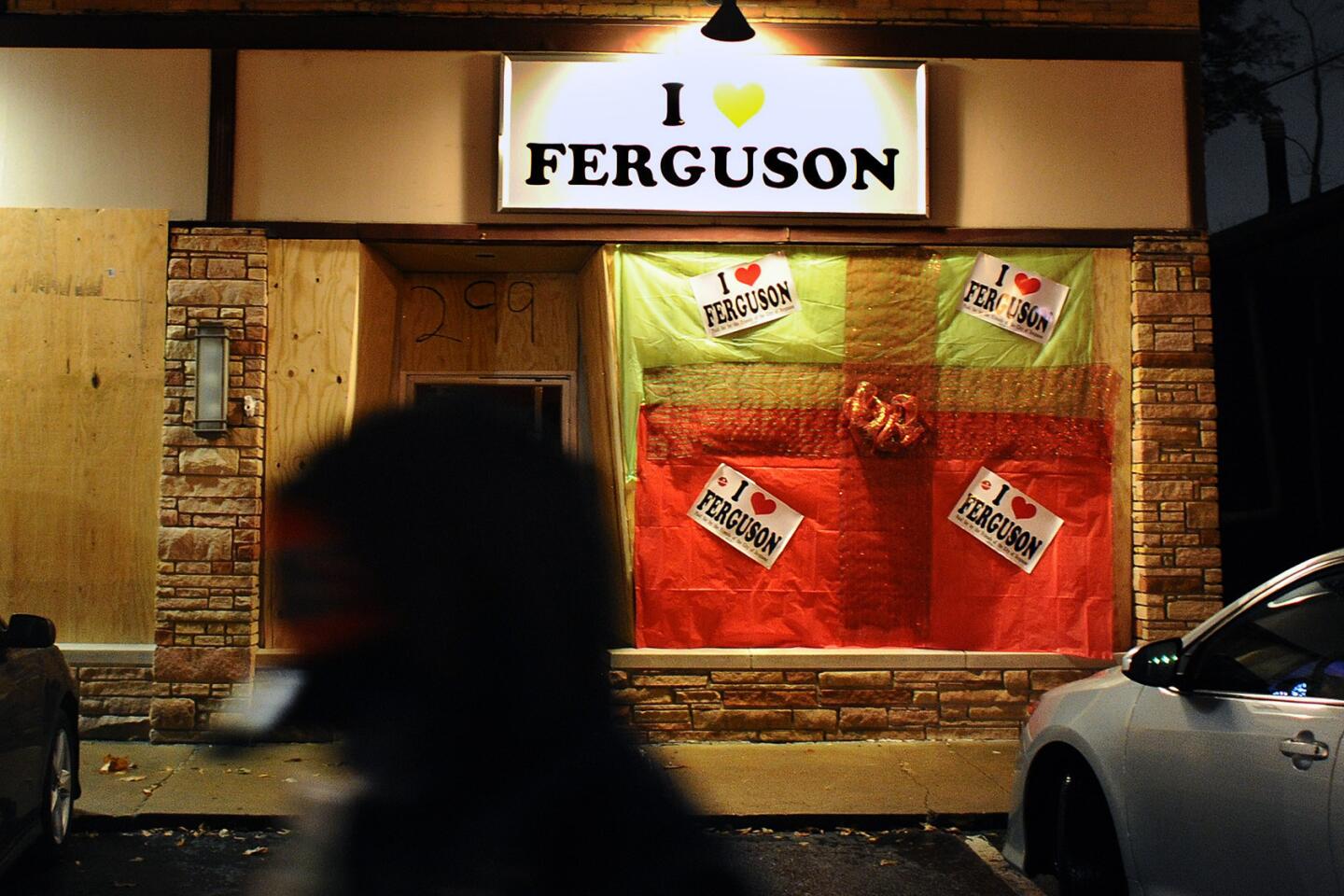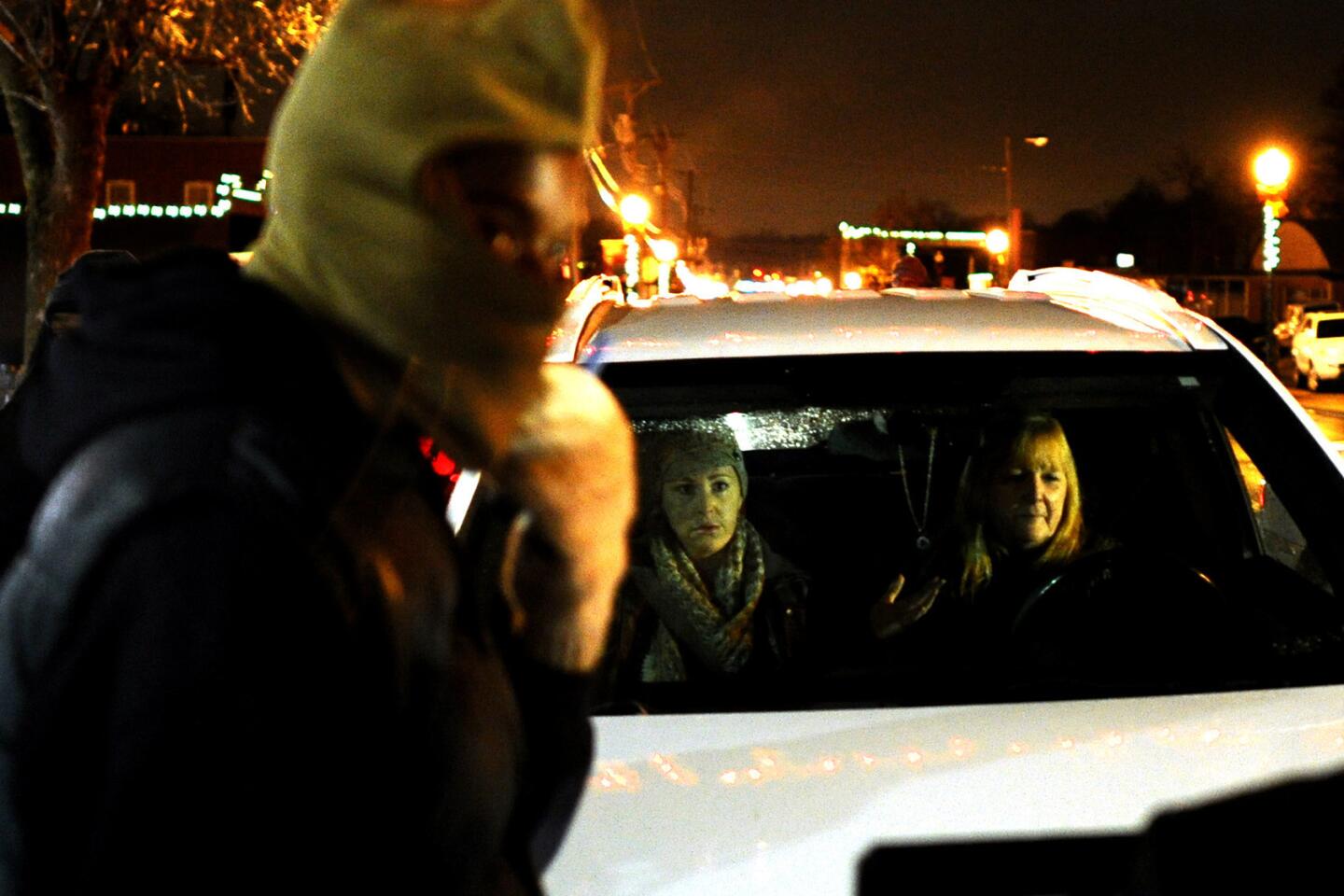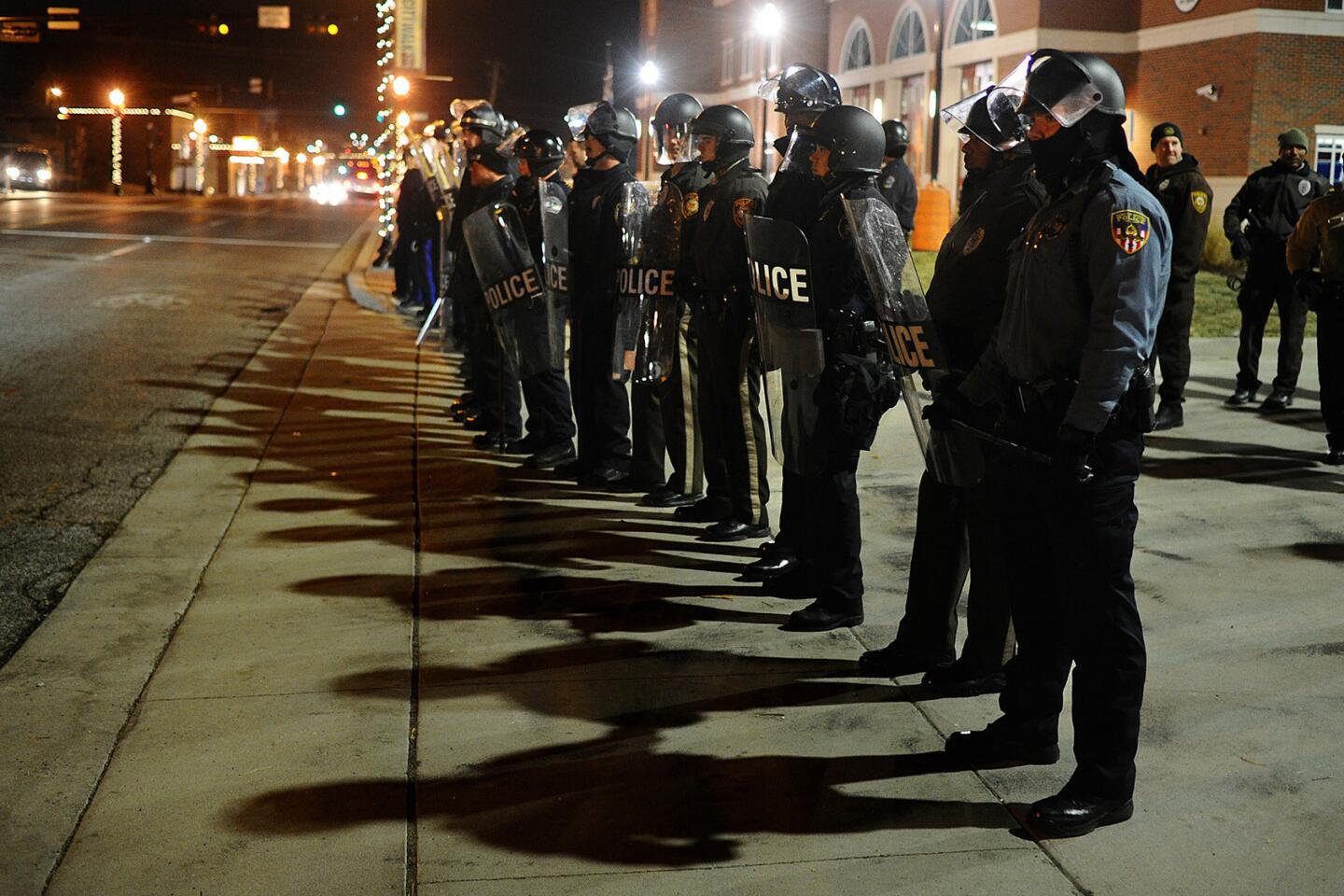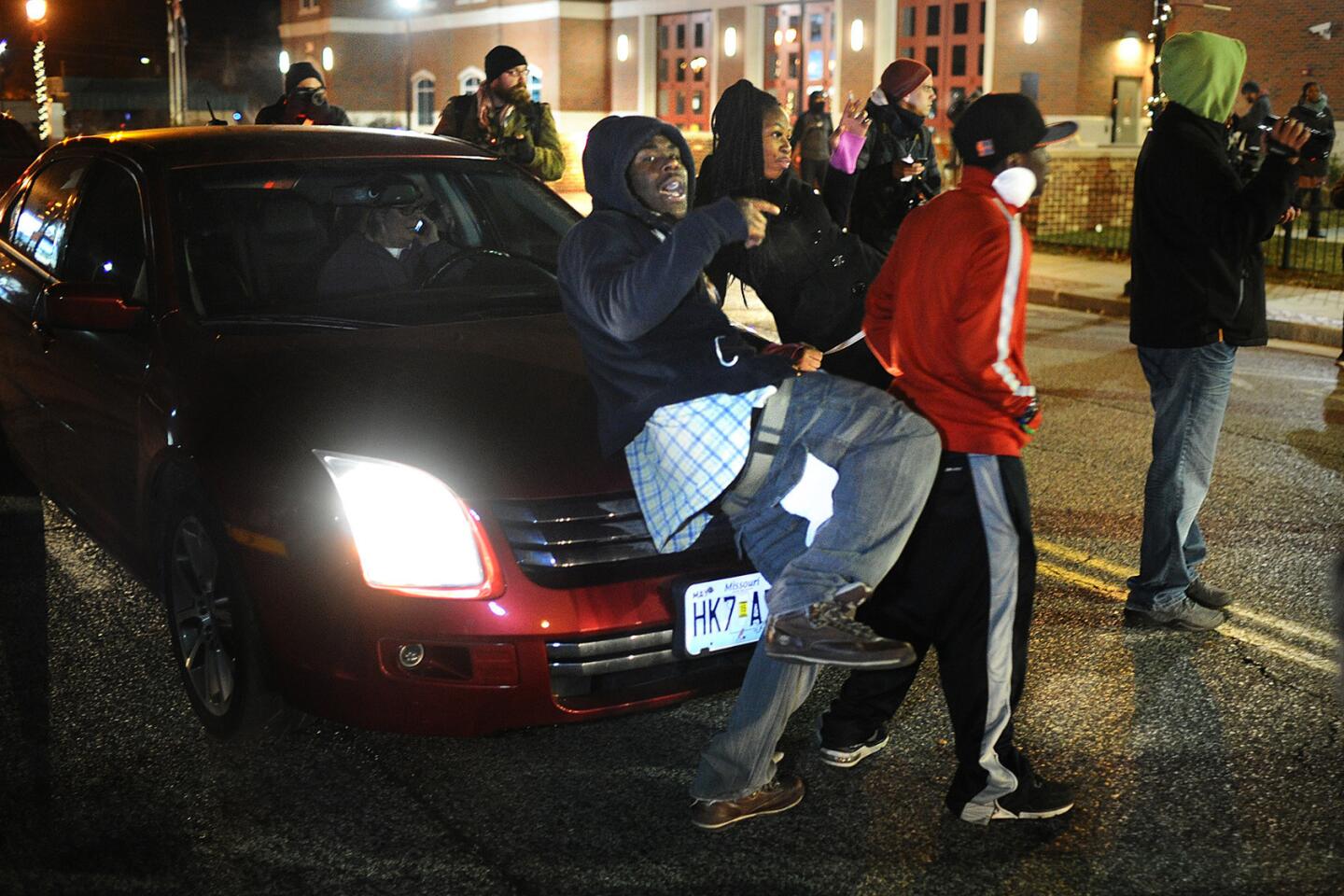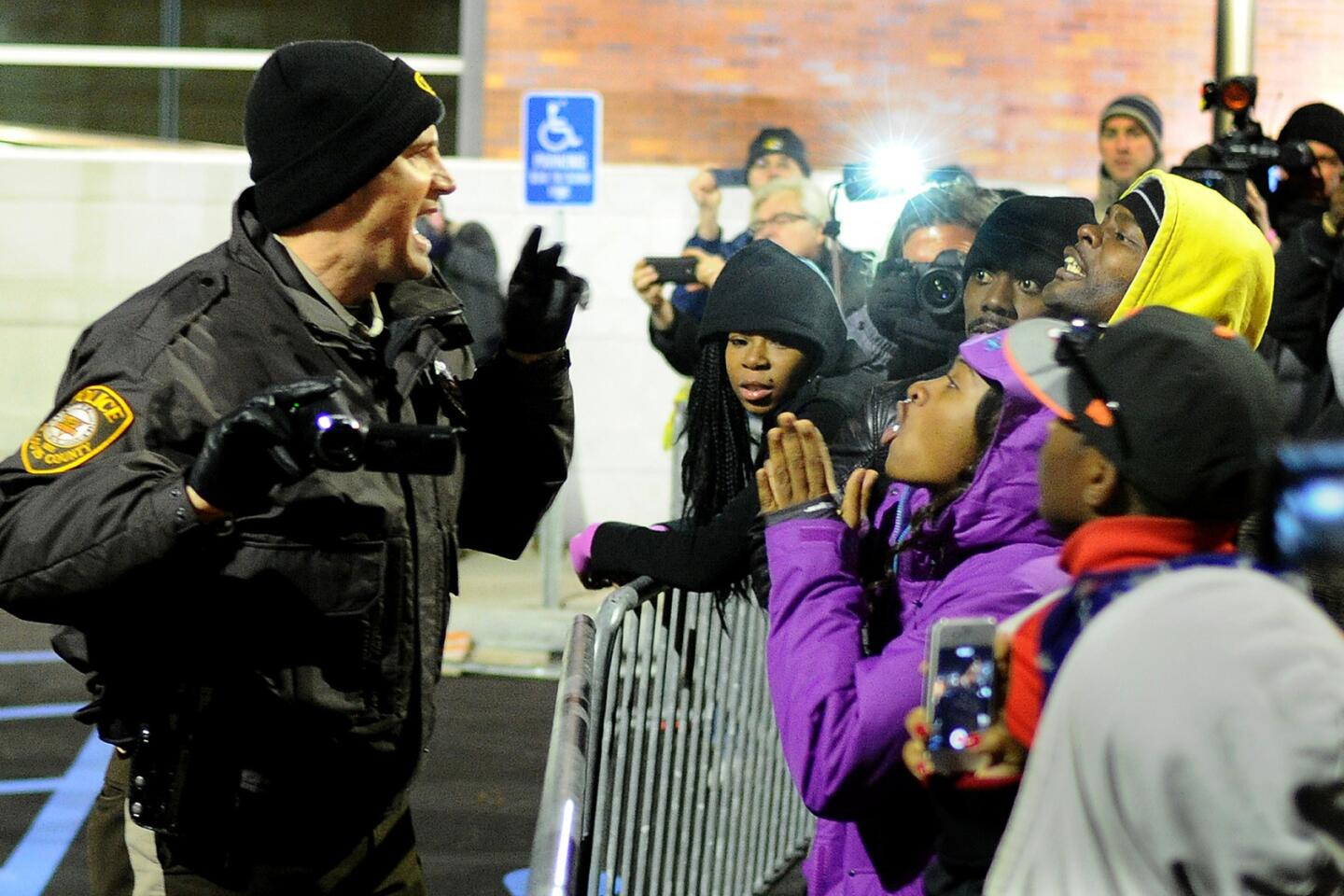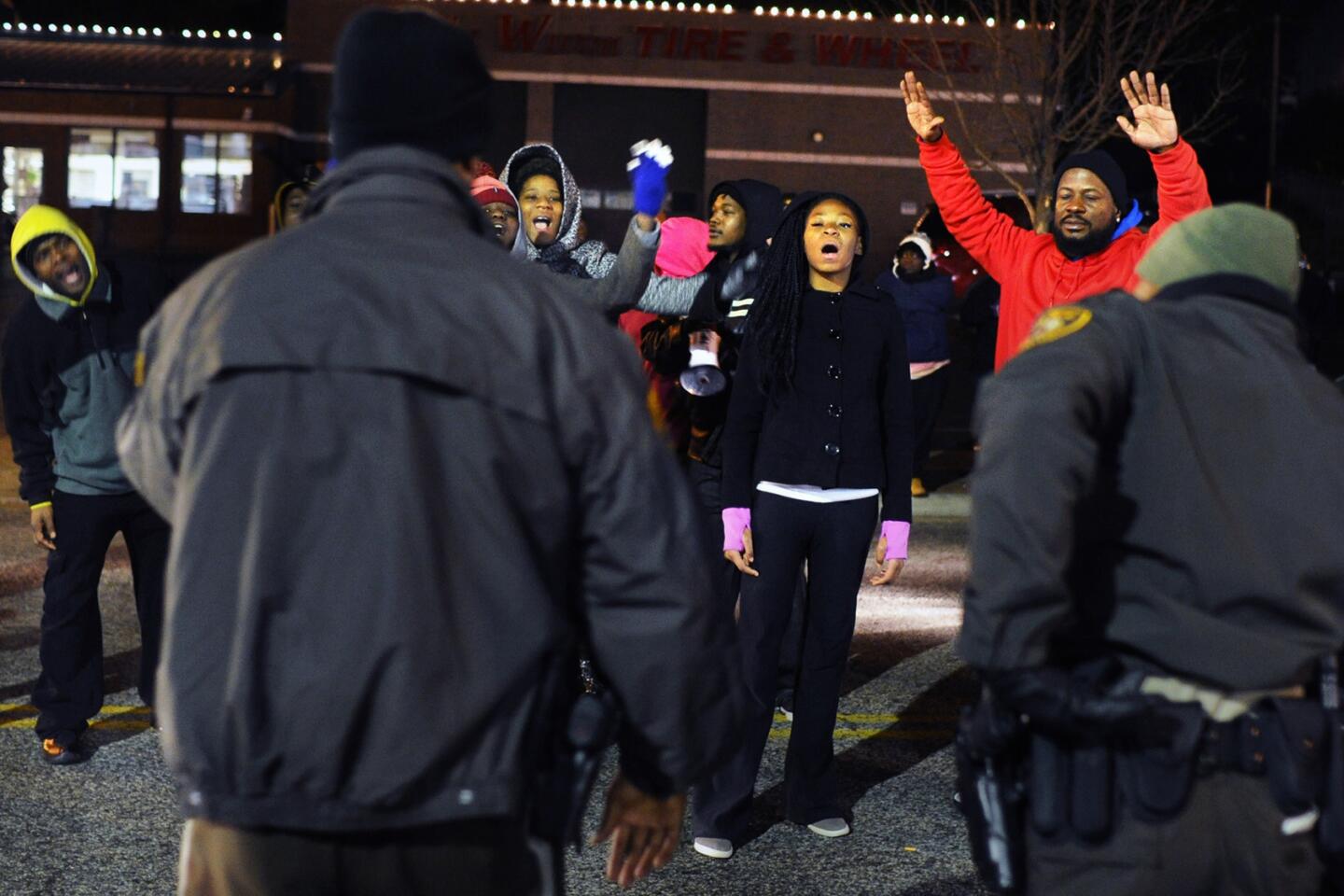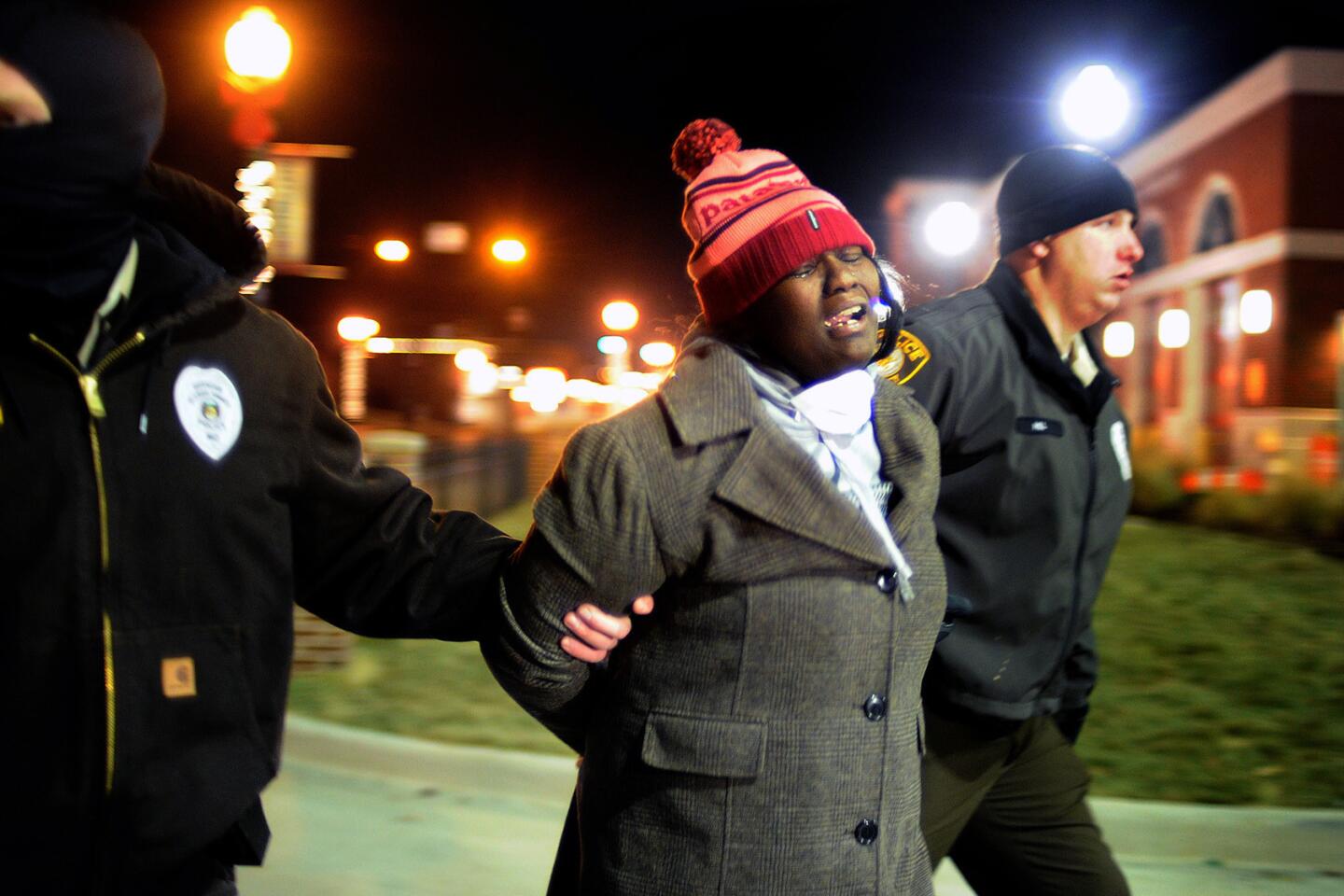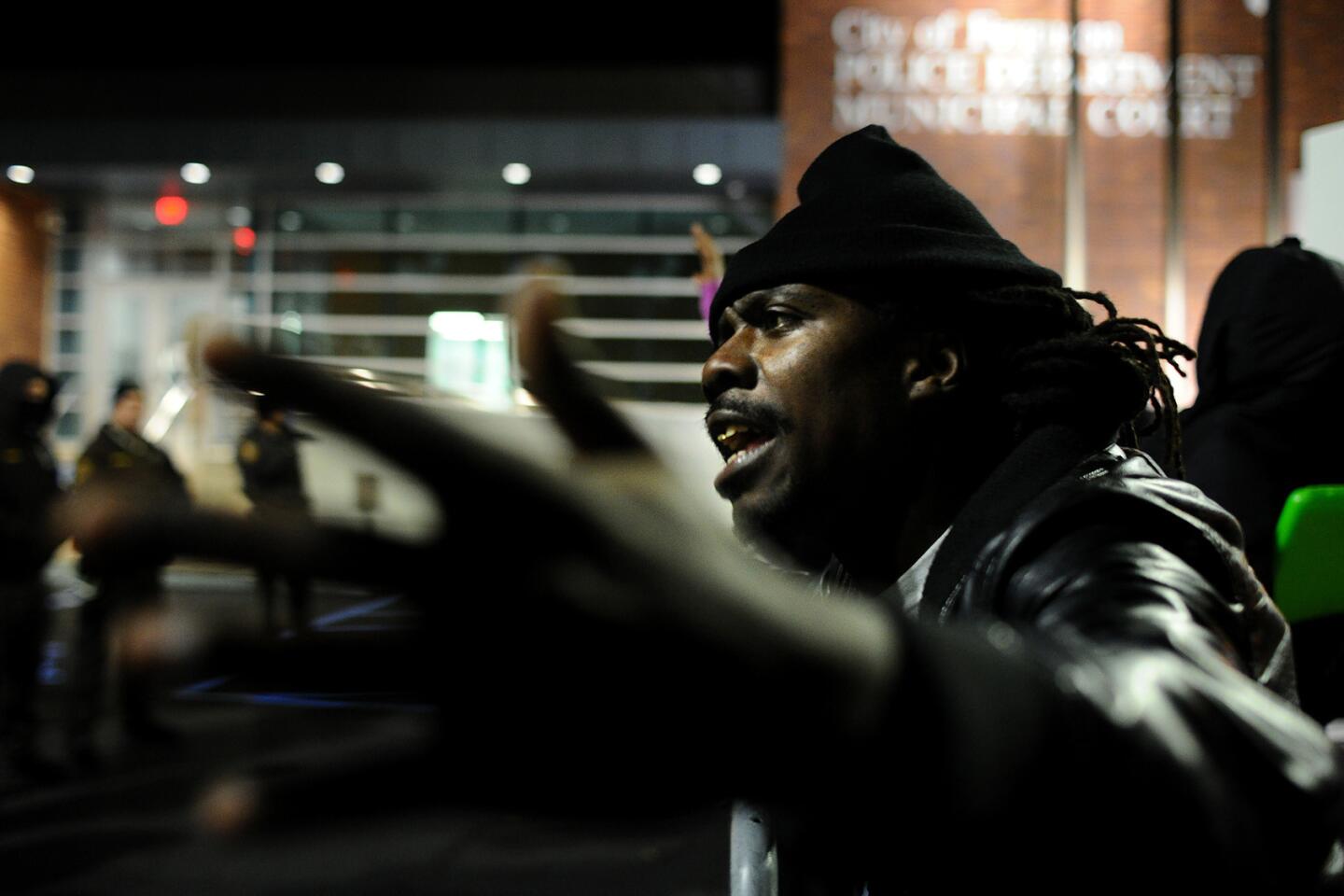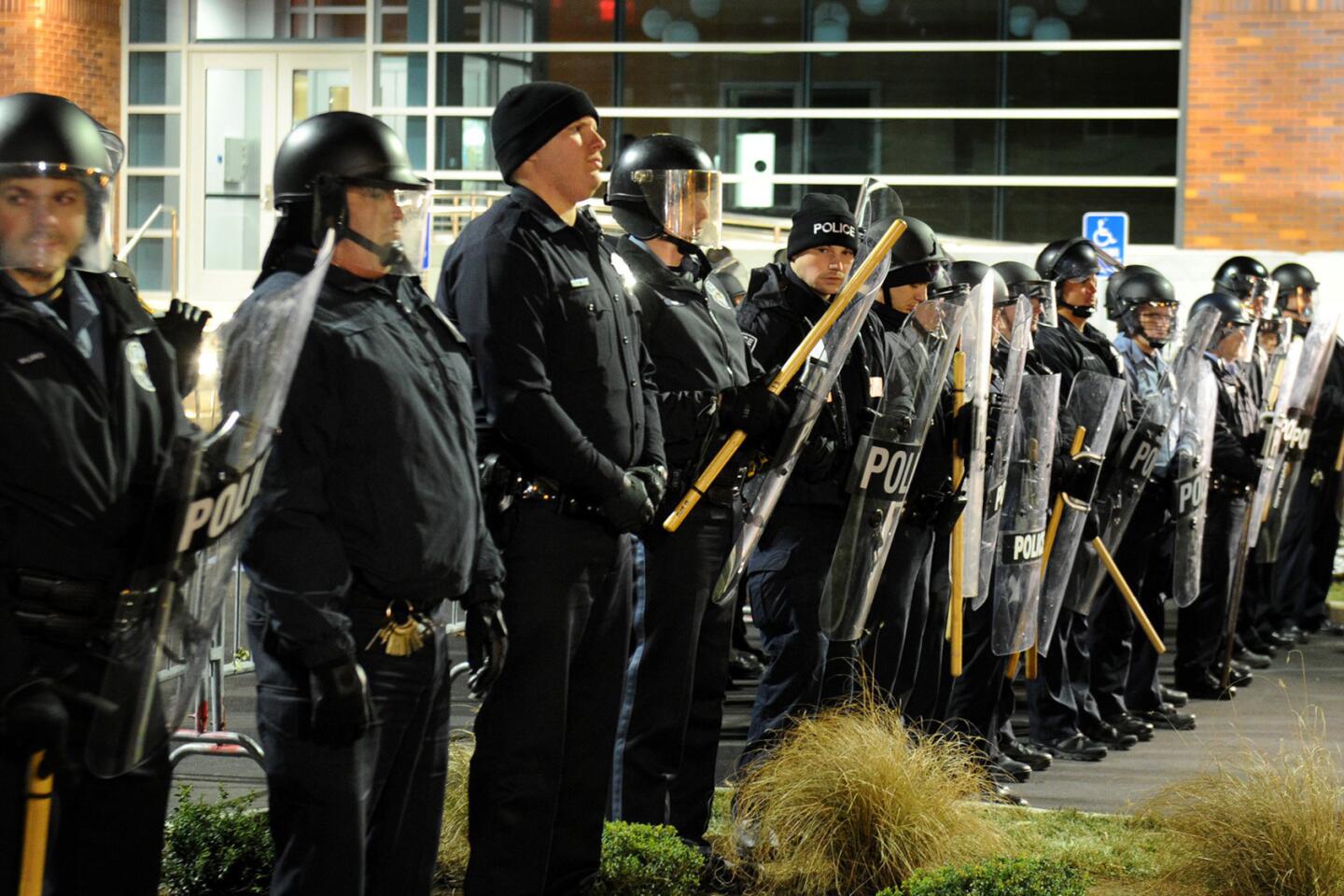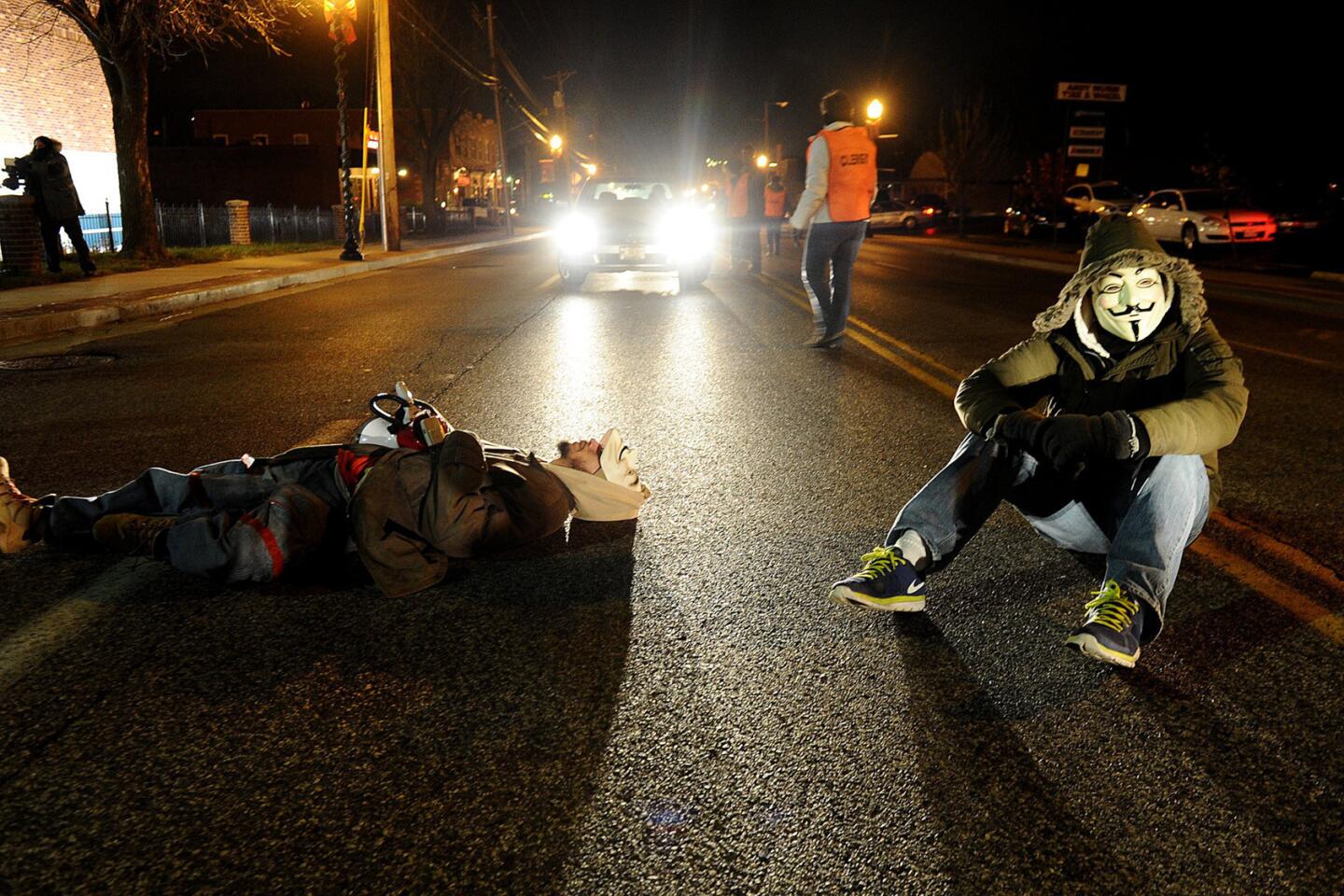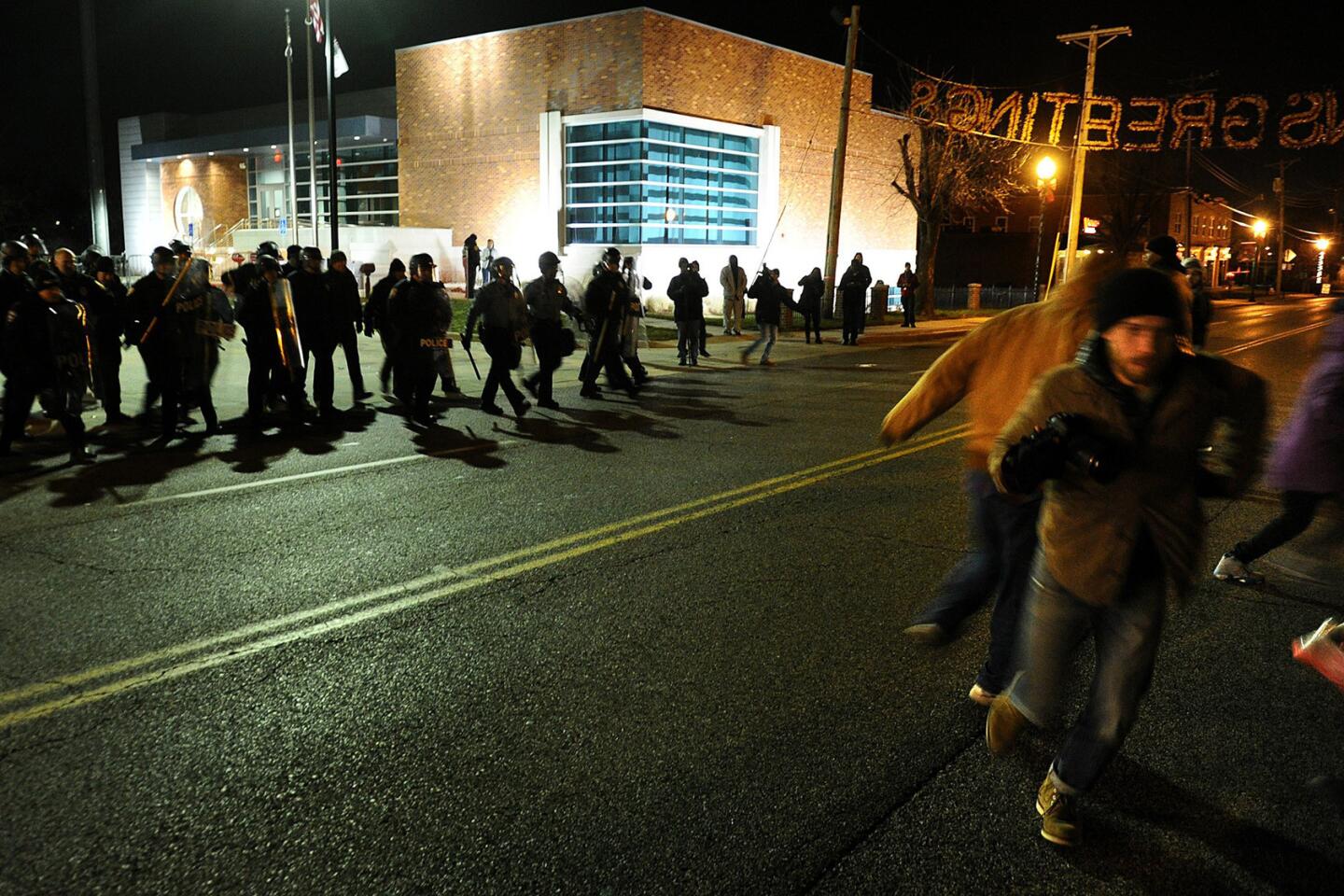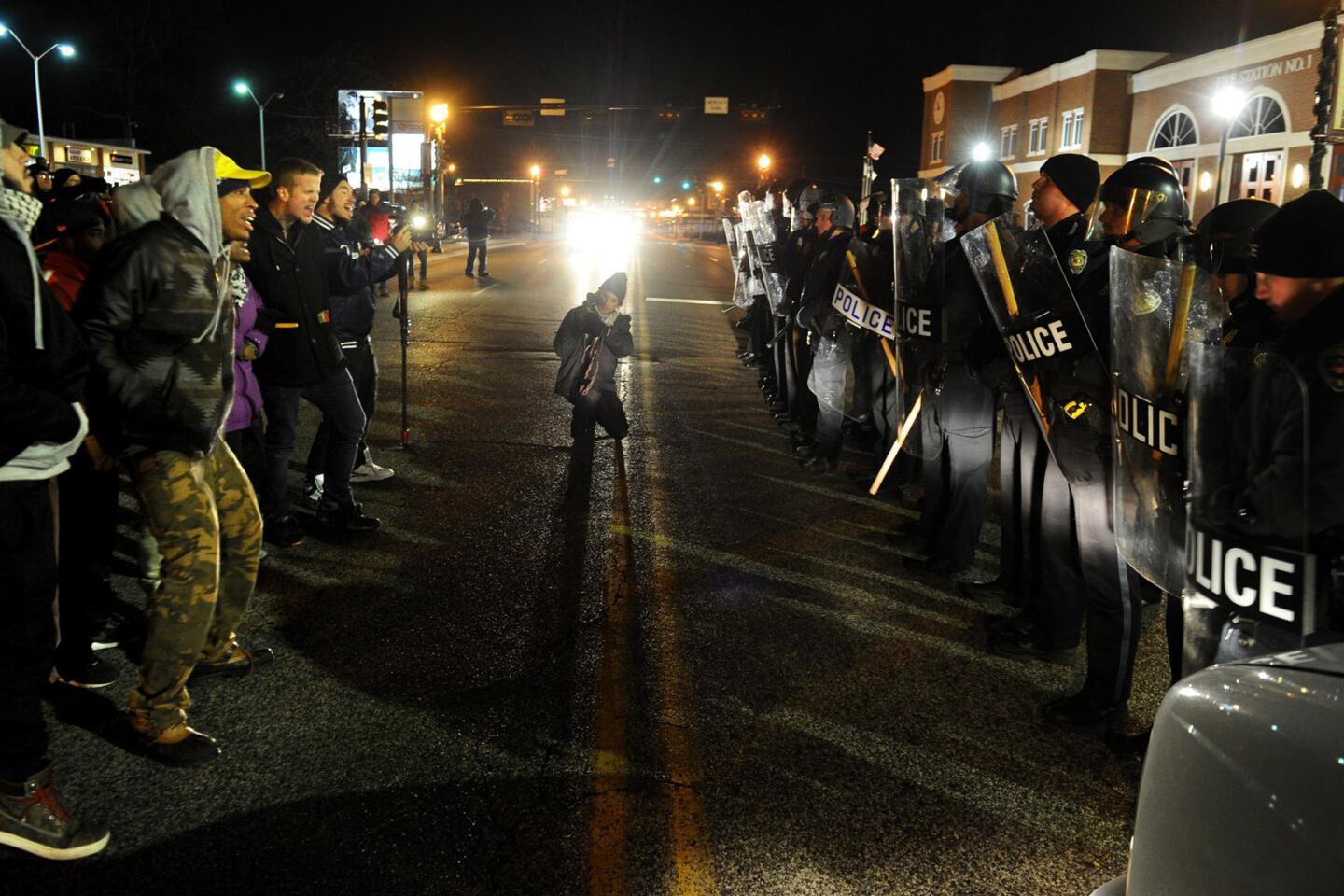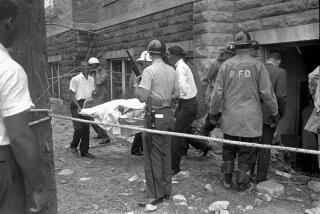St. Louis area prays and waits as grand jury mulls Michael Brown case
- Share via
Reporting from Florissant, Mo. — First, the pastor asked congregants to pray for the parents of Michael Brown, who was fatally shot over the summer about three miles away. They murmured yes.
Then she asked the several dozen mostly black parishioners at Christ the King United Church of Christ on Sunday to pray for the families of the other black men in the region who had been shot by police officers. Some of them murmured yes.
Next, the Rev. Traci Blackmon asked her congregation a question not often heard on the turbulent streets of neighboring Ferguson, which remains tense with fear, anger and uncertainty as the conclusion of a grand jury investigation into Brown’s Aug. 9 death looms ever closer -- perhaps as soon as Monday.
“Will you pray for Officer Darren Wilson?” Blackmon asked.
Hearing the name of Brown’s shooter, the congregants remained silent.
Blackmon, who on the previous night had led a prayer vigil for those calling for Wilson’s arrest, implored her flock again:
“Will you pray for his family? Because their lives will never be the same.”
Finally, one woman answered: “Yes.”
As St. Louis swirled with uncertainty, Christ the King United Church of Christ was an oasis of warmth and calm, albeit one not far removed from the pressures that have gripped the region.
Blackmon said she had been asked whether she planned to cancel church if unrest breaks out. “I’m going to worship — and I’m going to work,” she said, telling her listeners to do the same.
The 12-member grand jury investigating the killing of Brown, who was 18 and unarmed, was expected to reconvene Monday to resume its secret deliberations.
The St. Louis County prosecutor’s office has promised to make the evidence and testimony public if Wilson is not indicted. But on Sunday, circuit court officials clarified that a judge would have to approve the release first to ensure that confidentiality rules were not broken.
Such an approval would entail a review of the evidence, thought to be voluminous -- suggesting that the information probably would not be released immediately after the grand jury’s decision.
Also Sunday, CNN reported that Wilson had been meeting in secret with TV anchors from several networks to negotiate a potential interview, which would be his first since the shooting. CNN’s Anderson Cooper and Don Lemon said on Twitter that they had met with Wilson but had not reached an agreement with him.
“Darren Wilson chose not to do an interview with me,” Cooper tweeted. “I continue to hope to interview anyone with information about this tragedy.”
Lemon said, also on Twitter, “We’ve interviewed the Brown family, Dorian Johnson & all witnesses. Of course we’d want to interview Wilson.”
Lemon added, “FYI #CNN does not pay for interviews.”
On the streets of Ferguson, Wilson’s freedom has continued to drive demonstrations, resulting in several arrests on charges of unlawful assembly over the weekend.
But inside Christ the King United Church of Christ, Wilson’s status was theologically irrelevant. The grand jury will decide only whether Wilson will face a criminal trial, Blackmon reminded her congregation.
“Other than that, everything is basically the same,” Blackmon said. “Michael Brown will still be dead after this decision.”
There will still be underfunded schools, economic deprivation, racial profiling and high rates of imprisonment for black men, she said. “The grand jury decision is not our pivot point, church!”
As with other social-justice movements, clergy have played an active role in Ferguson, sometimes counseling young demonstrators or occasionally facing arrest. The Rev. Osagyefo Sekou, of Jamaica Plain, Mass., traveled to Ferguson to join the protests, calling it “the same role Martin Luther King Jr. played ... To put our bodies on the line the way Jesus did.”
Mia Henderson, 29, of the St. Louis suburb of University City, said she joined Christ the King United Church of Christ a year and a half ago because Blackmon was committed to social causes.
After the Ferguson unrest, Henderson said, “I found a lot of comfort in God, knowing the God I serve is a God of justice and social justice. I really believe Jesus was the ultimate social-justice advocate.”
Henderson called Blackmon’s call for prayers for Wilson “the right message. What’s right is not always the easy thing. I’m glad we have people like her who remind us that frustration can’t be what leads us.”
Rosetta James of Florissant — who, at 76, is old enough to remember when most of the white congregants left the church when its first black pastor arrived — said she was praying for the protesters to pursue change, but “we also pray for the police.”
“We all pray to the same God,” James said, adding: “Police are praying too.”
Blackmon asked congregants to pray for the police, for Missouri Gov. Jay Nixon, and for themselves. “Because none of us will ever be the same.”
Twitter: @mattdpearce
More to Read
Sign up for Essential California
The most important California stories and recommendations in your inbox every morning.
You may occasionally receive promotional content from the Los Angeles Times.
